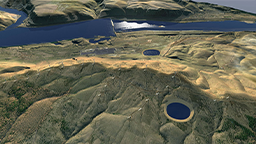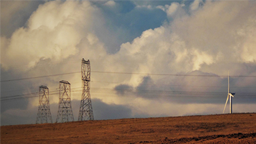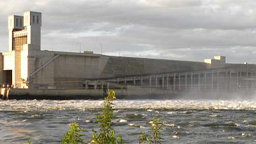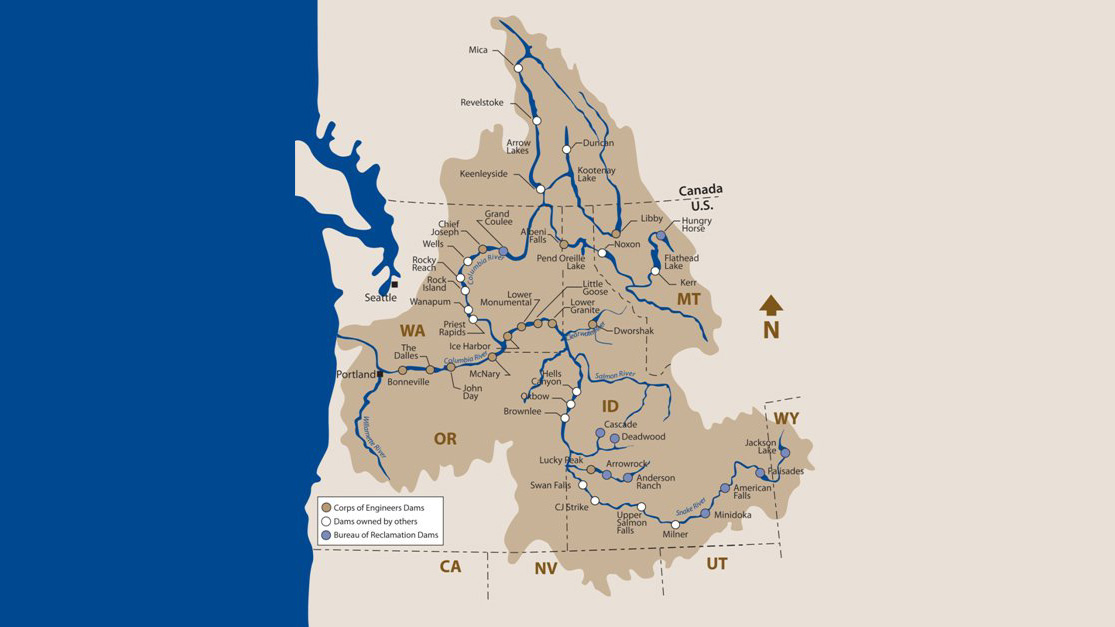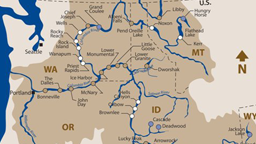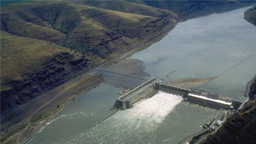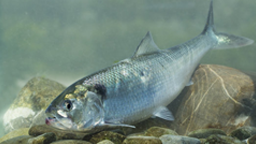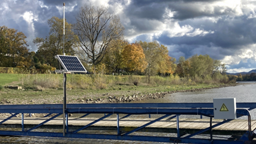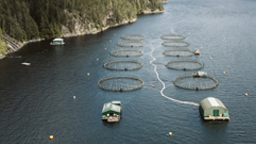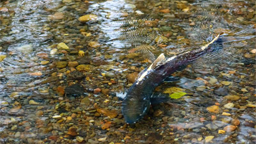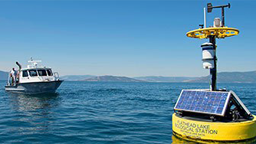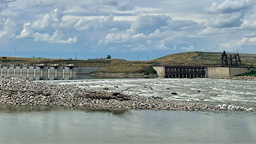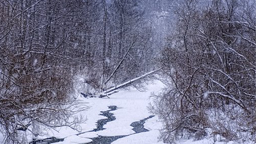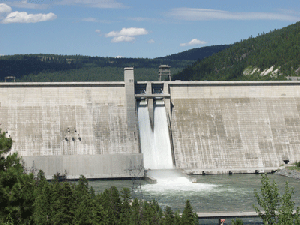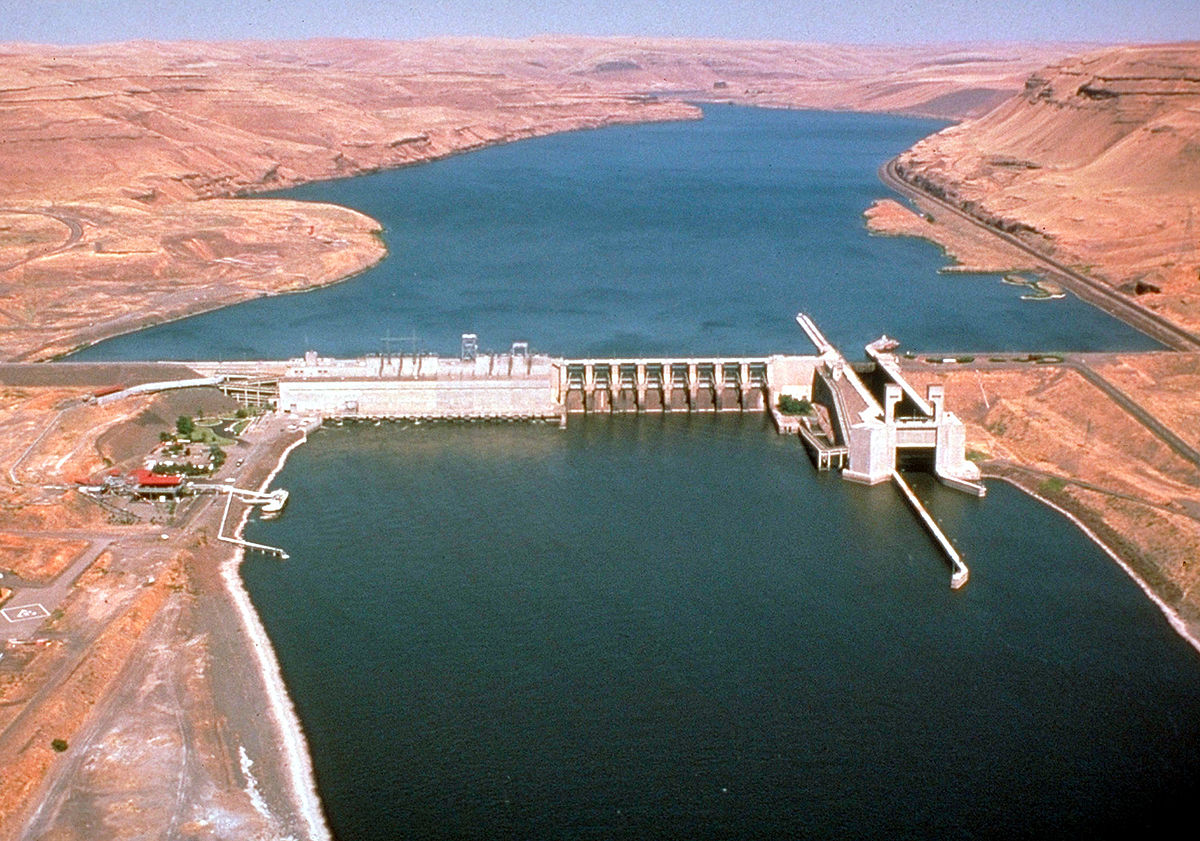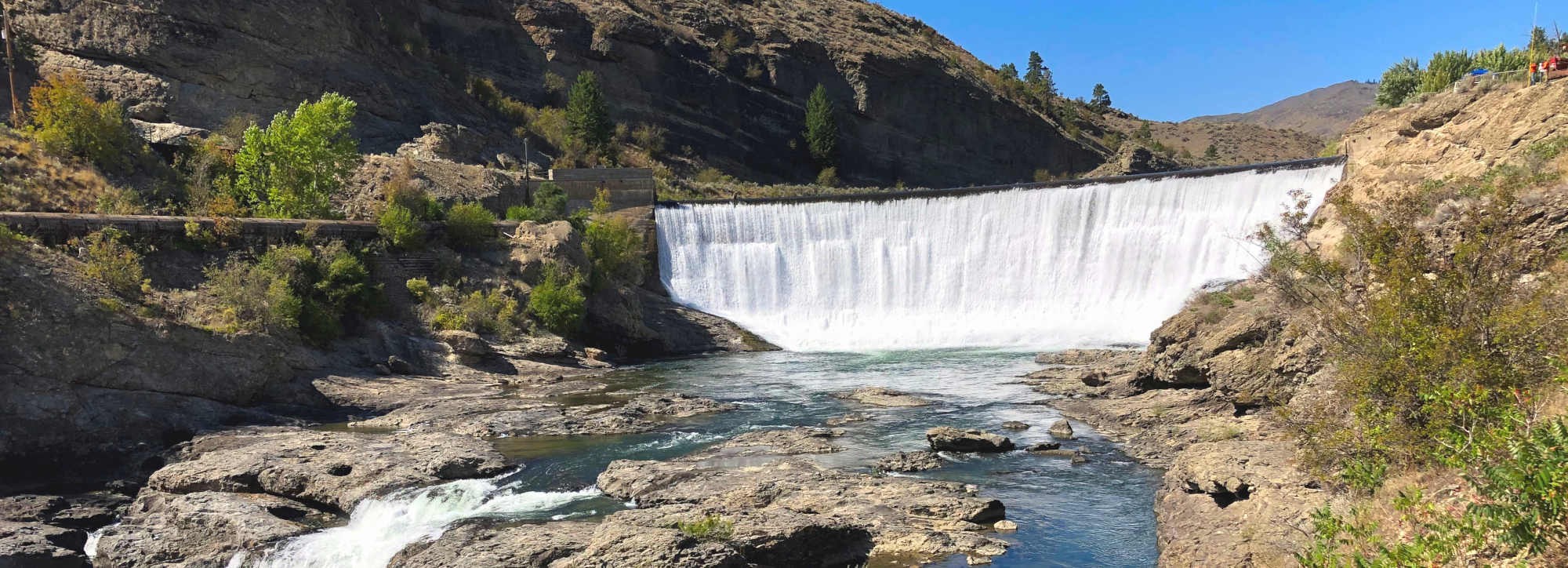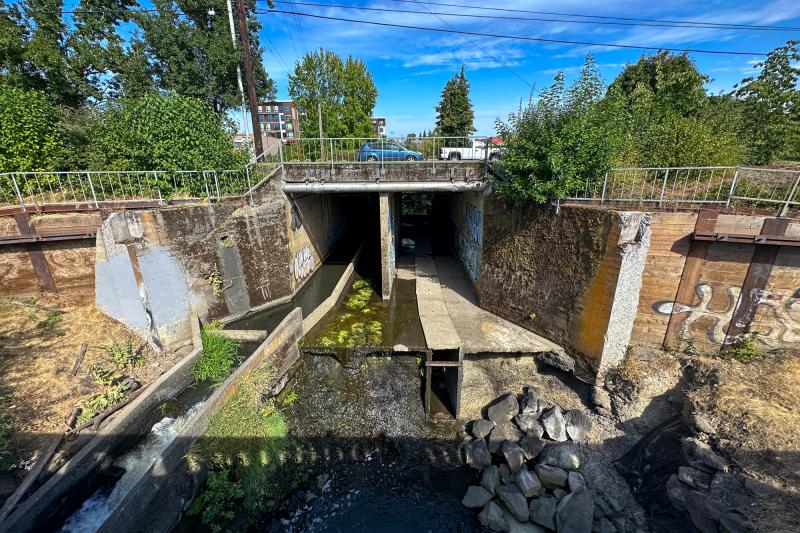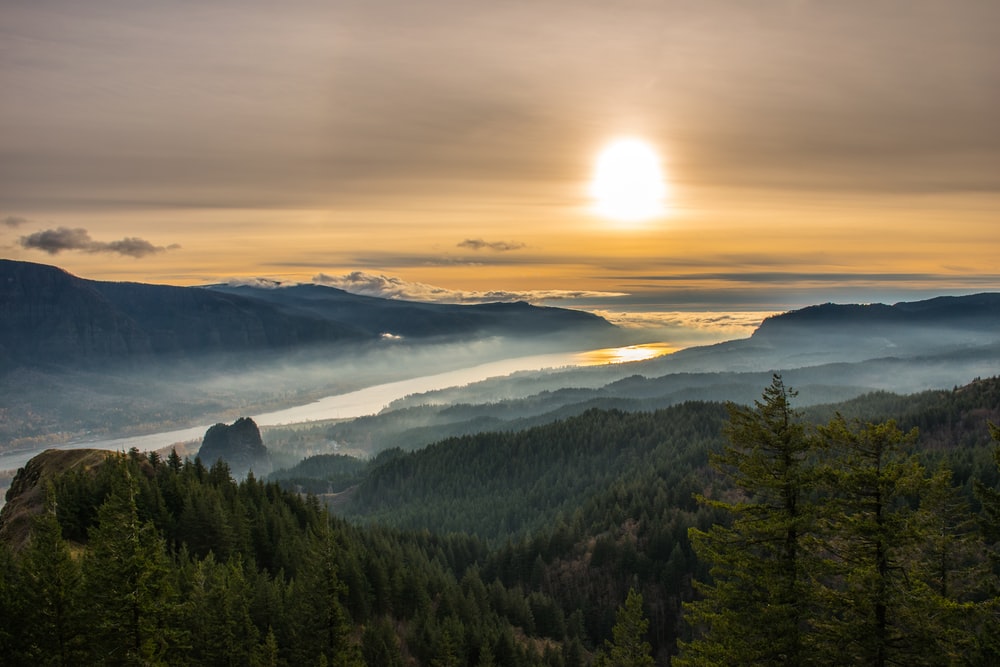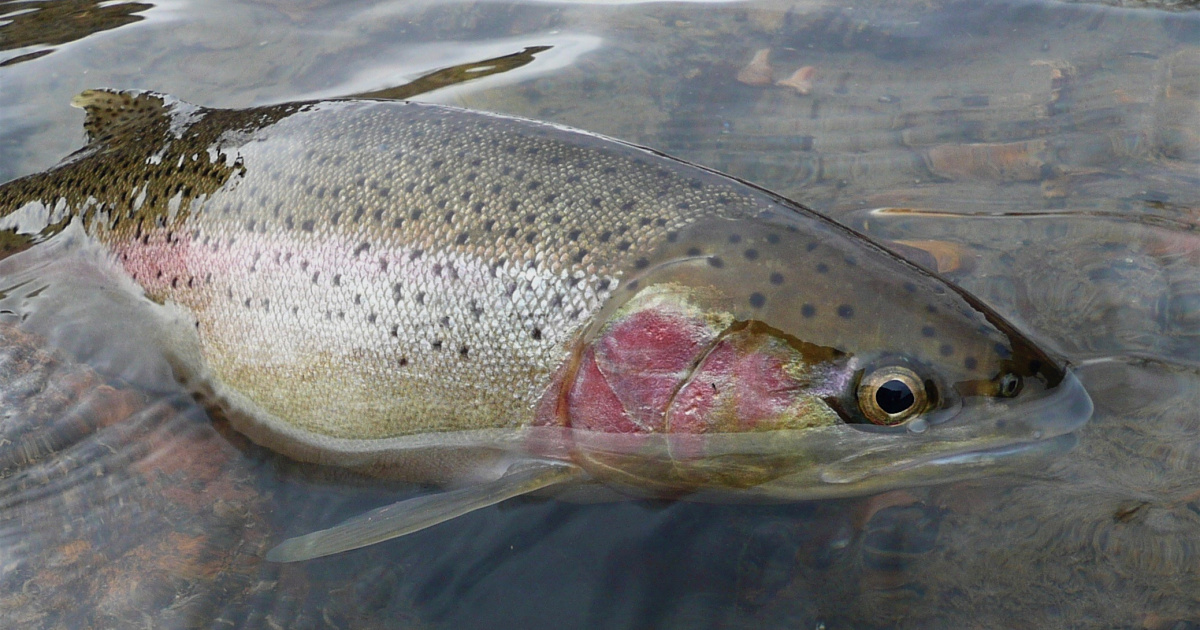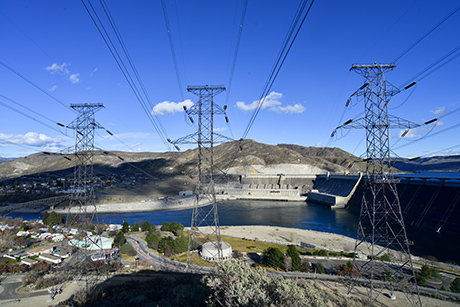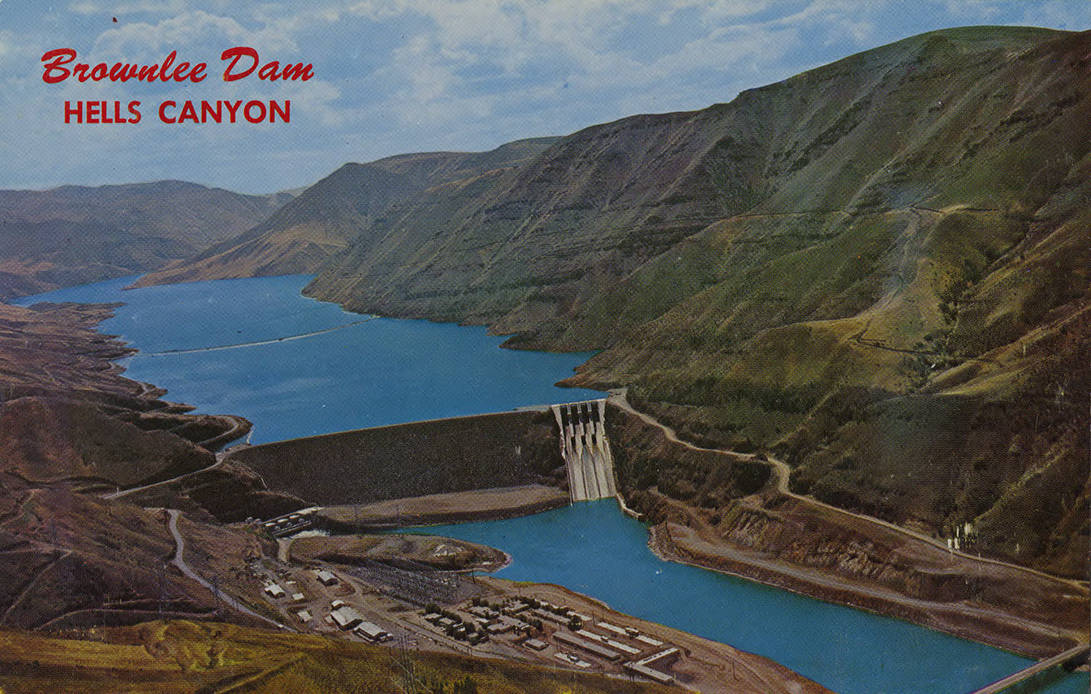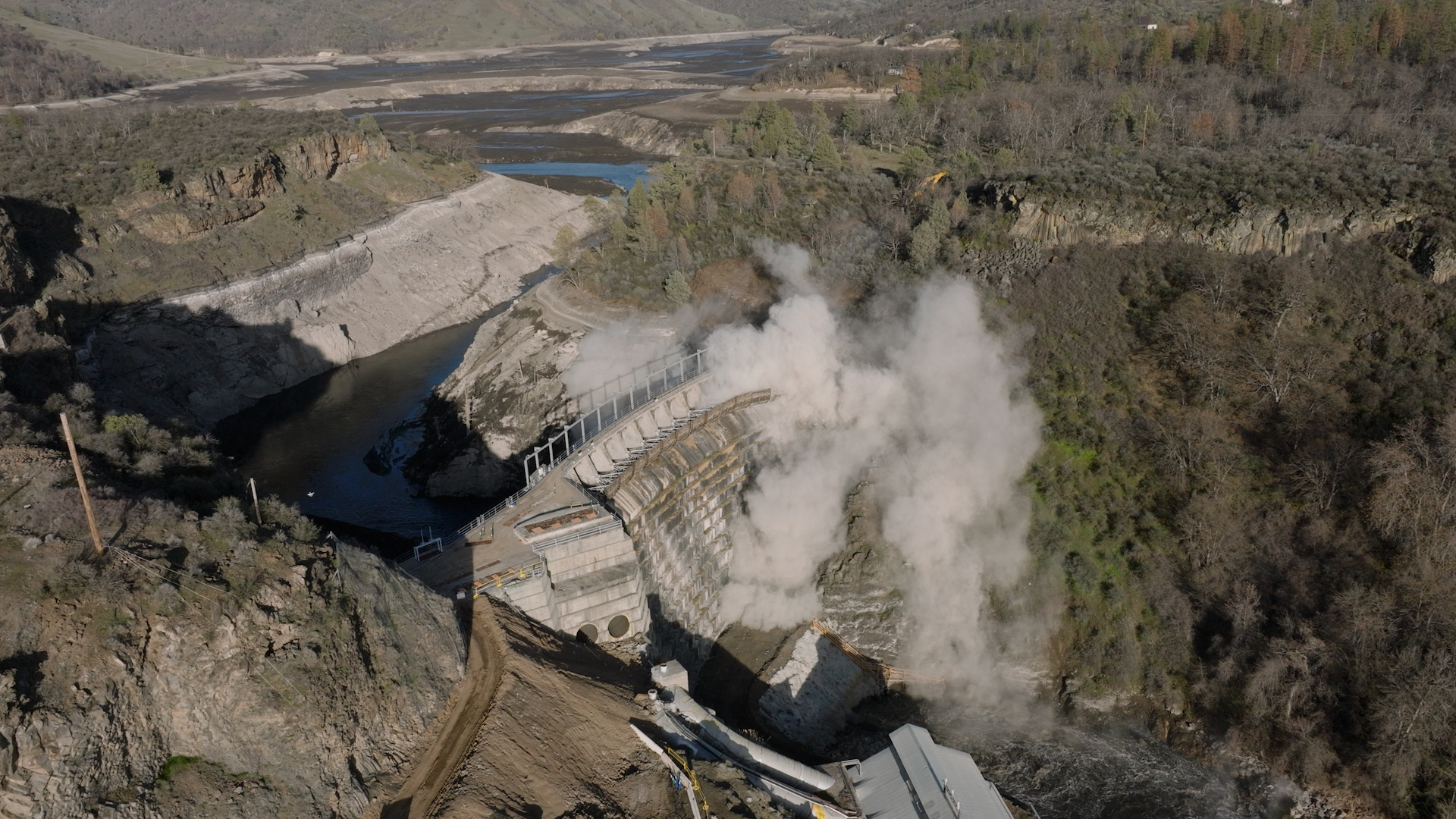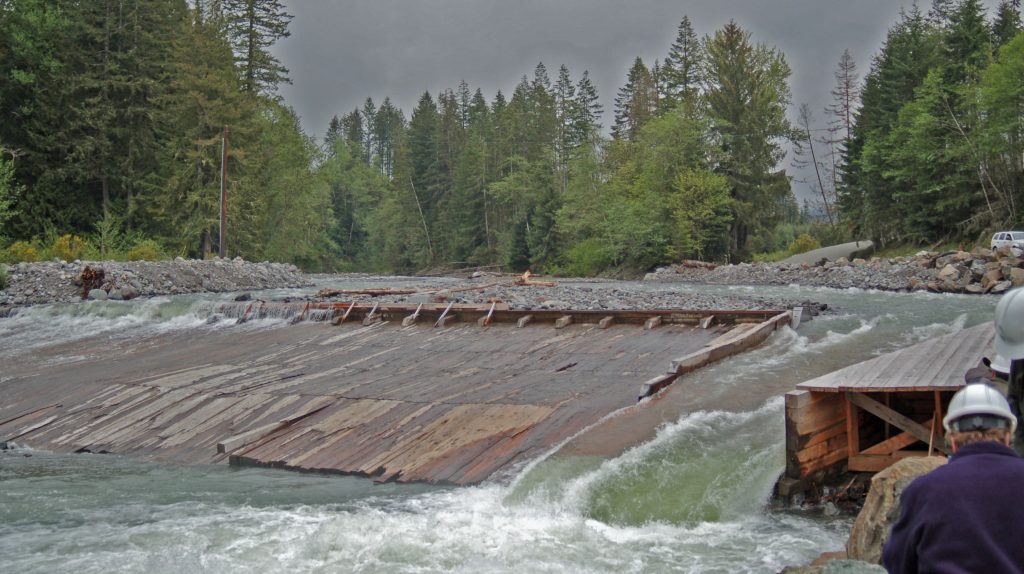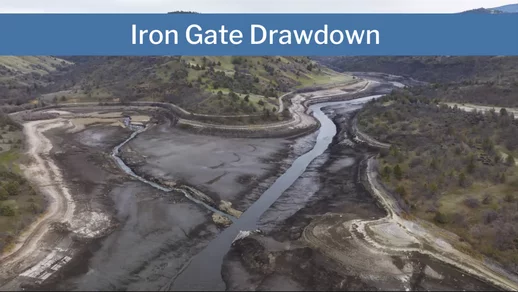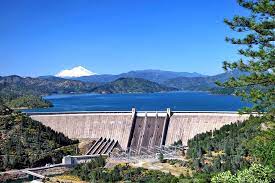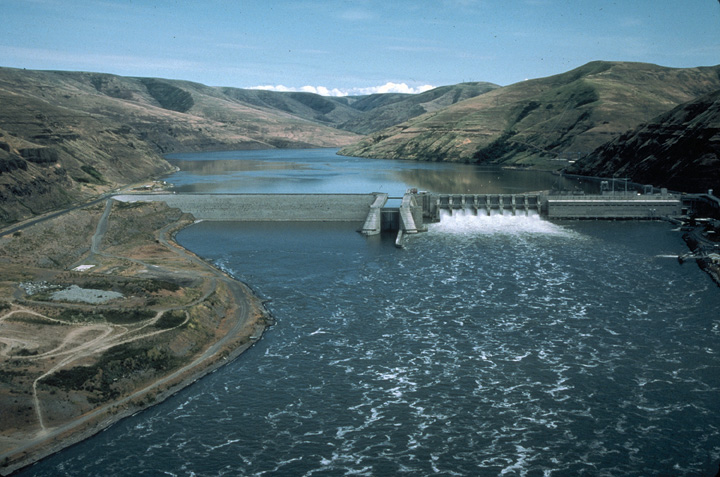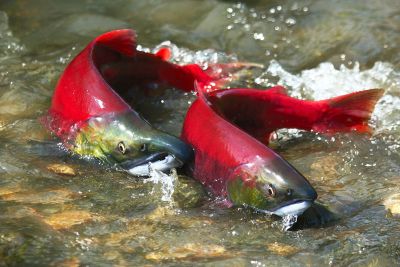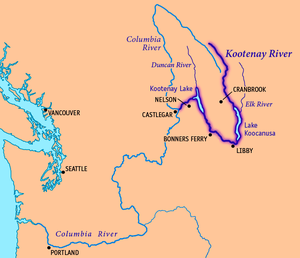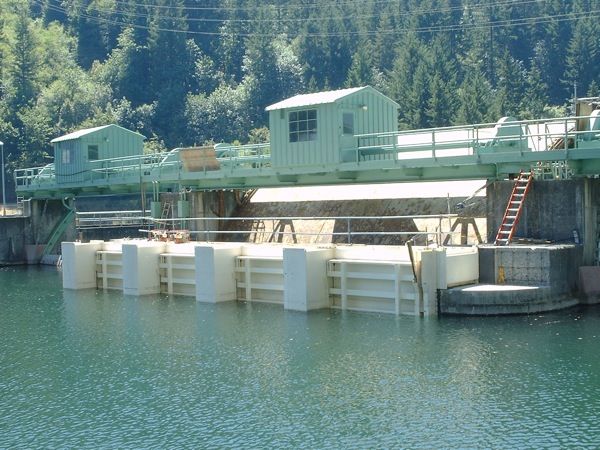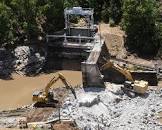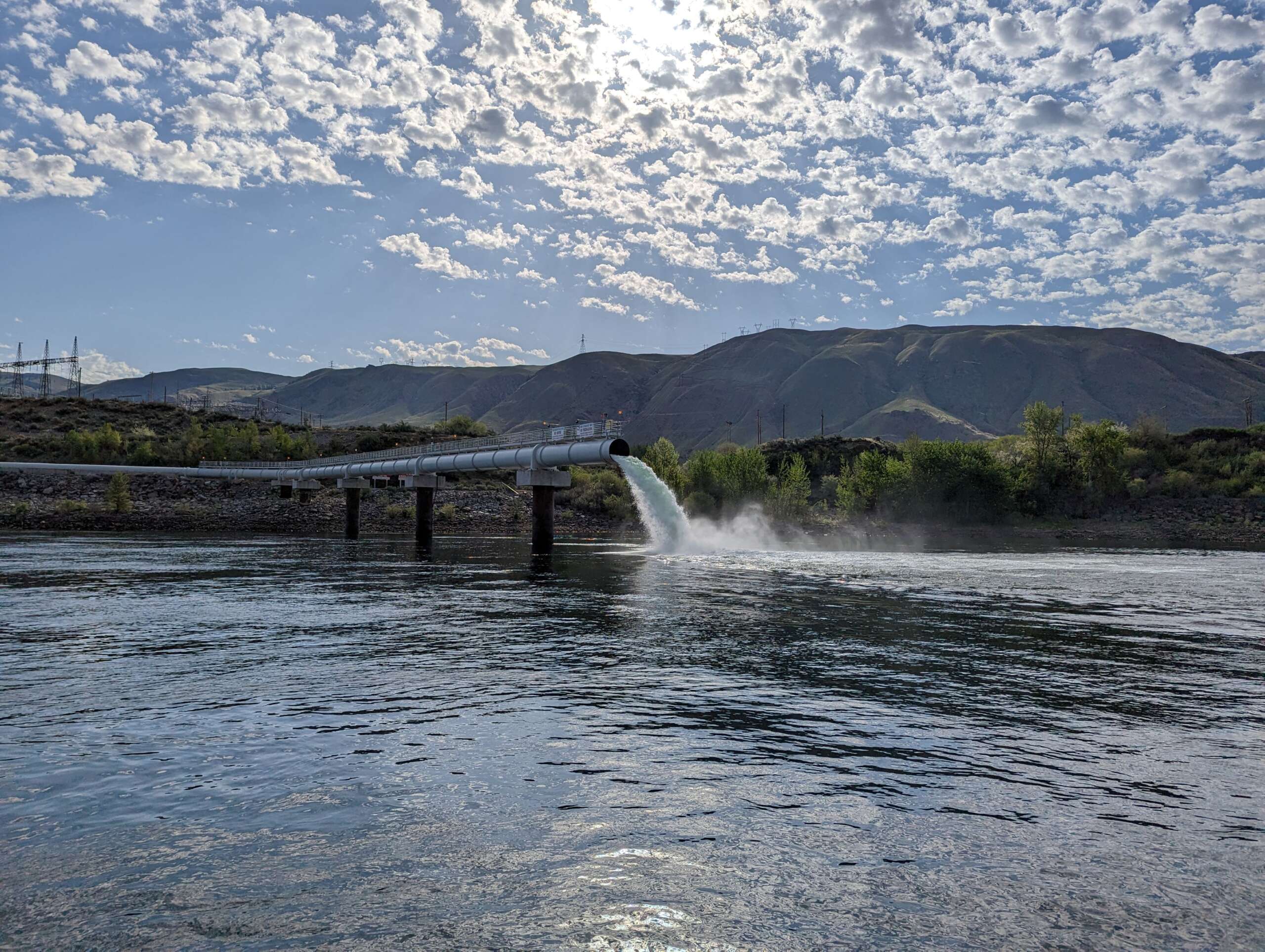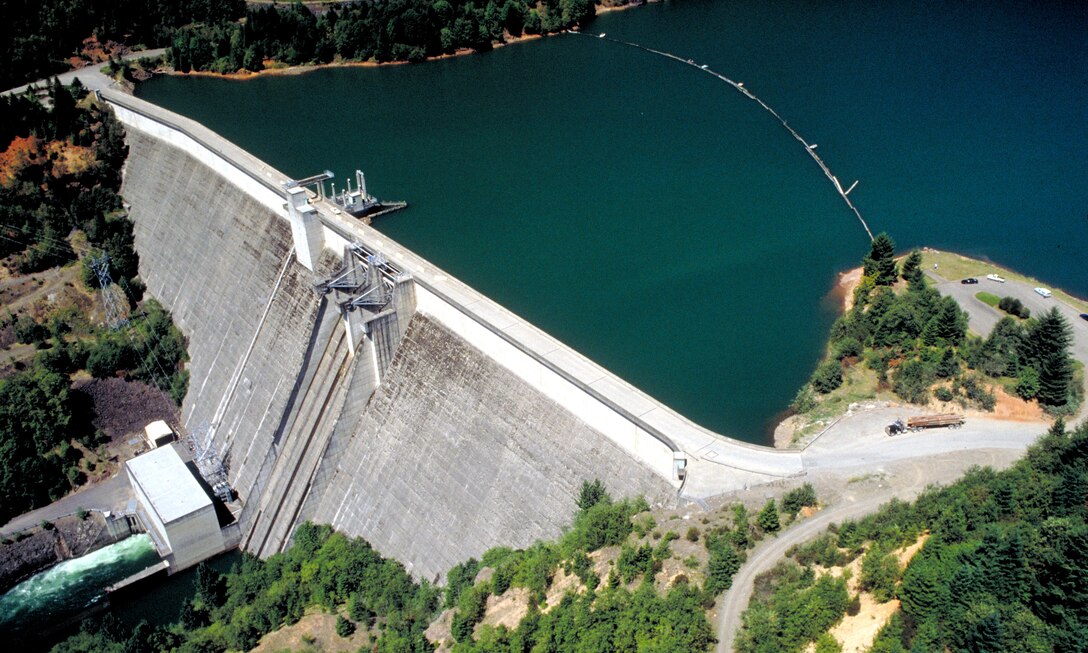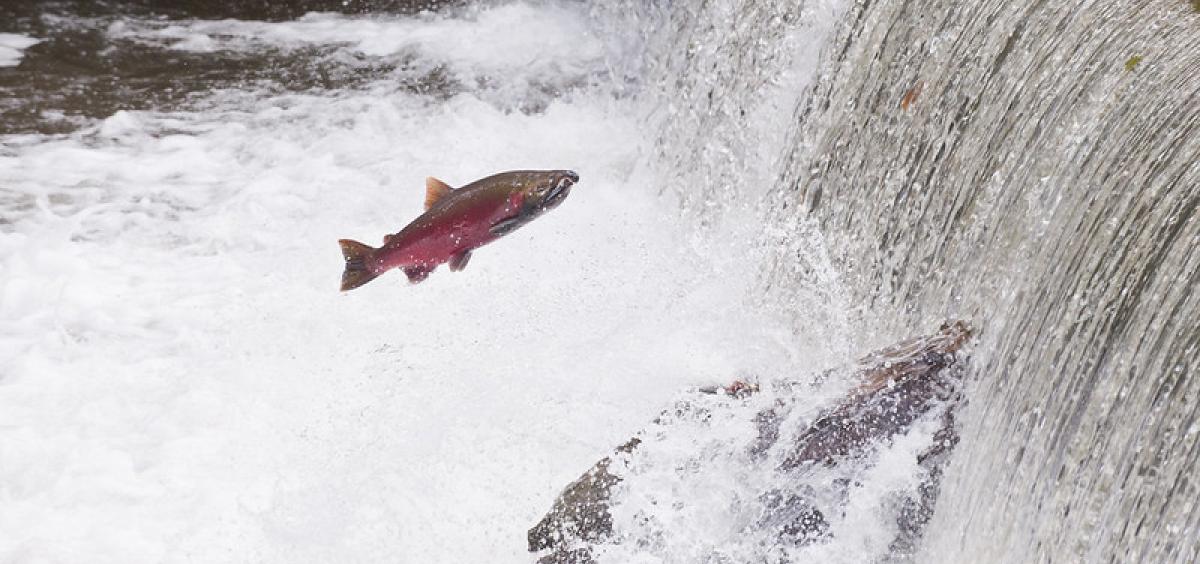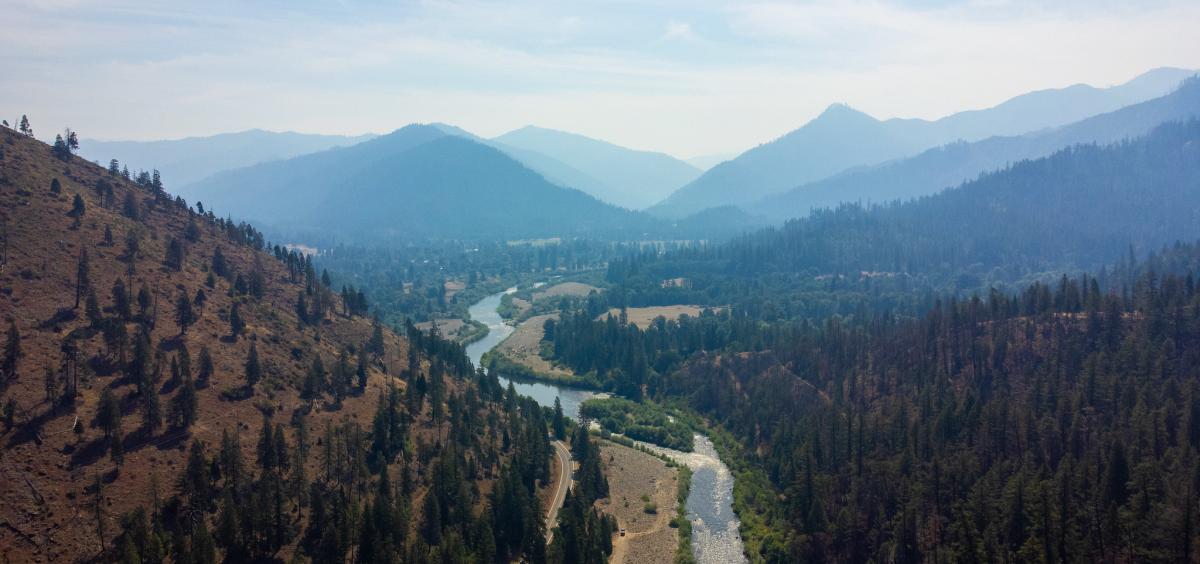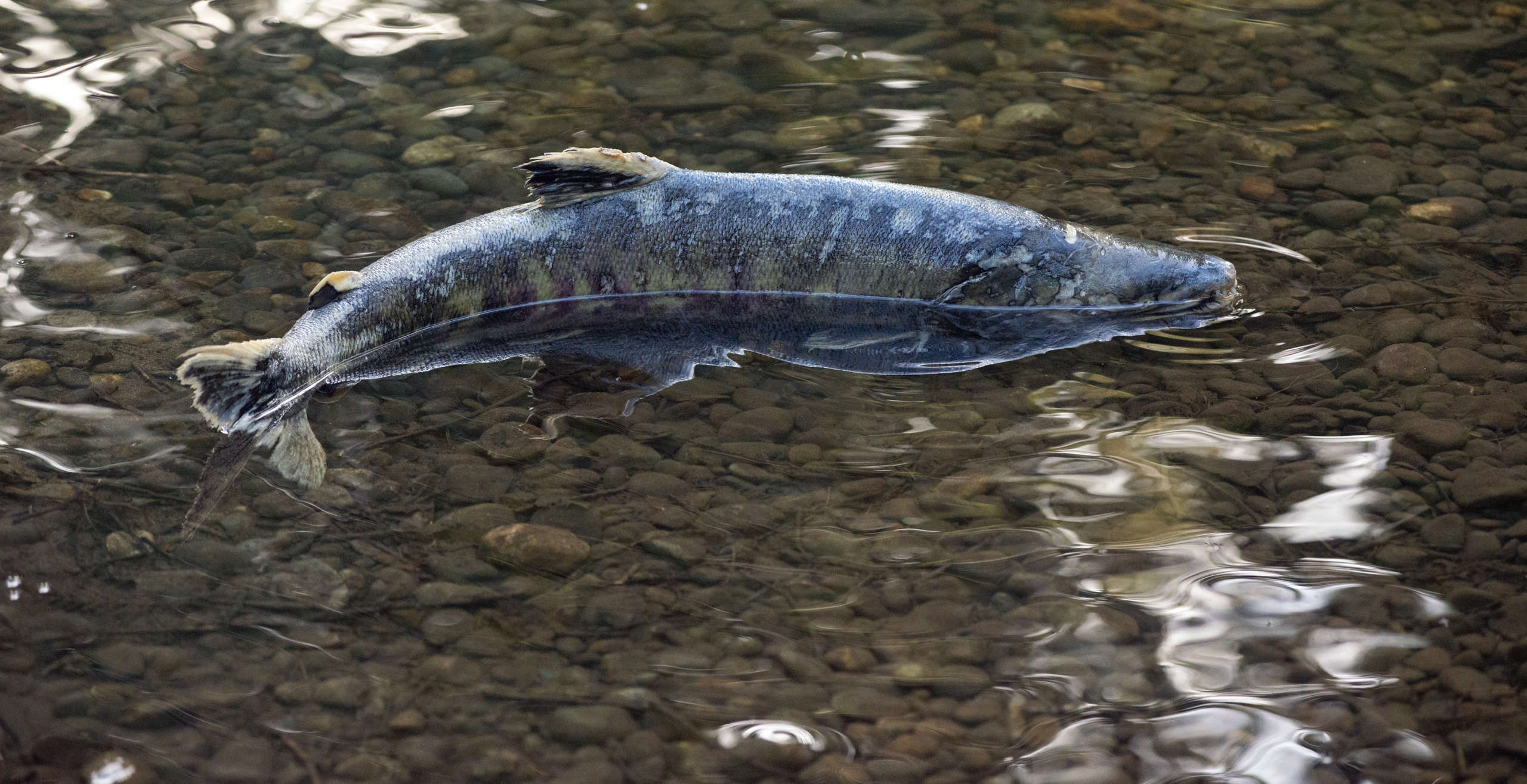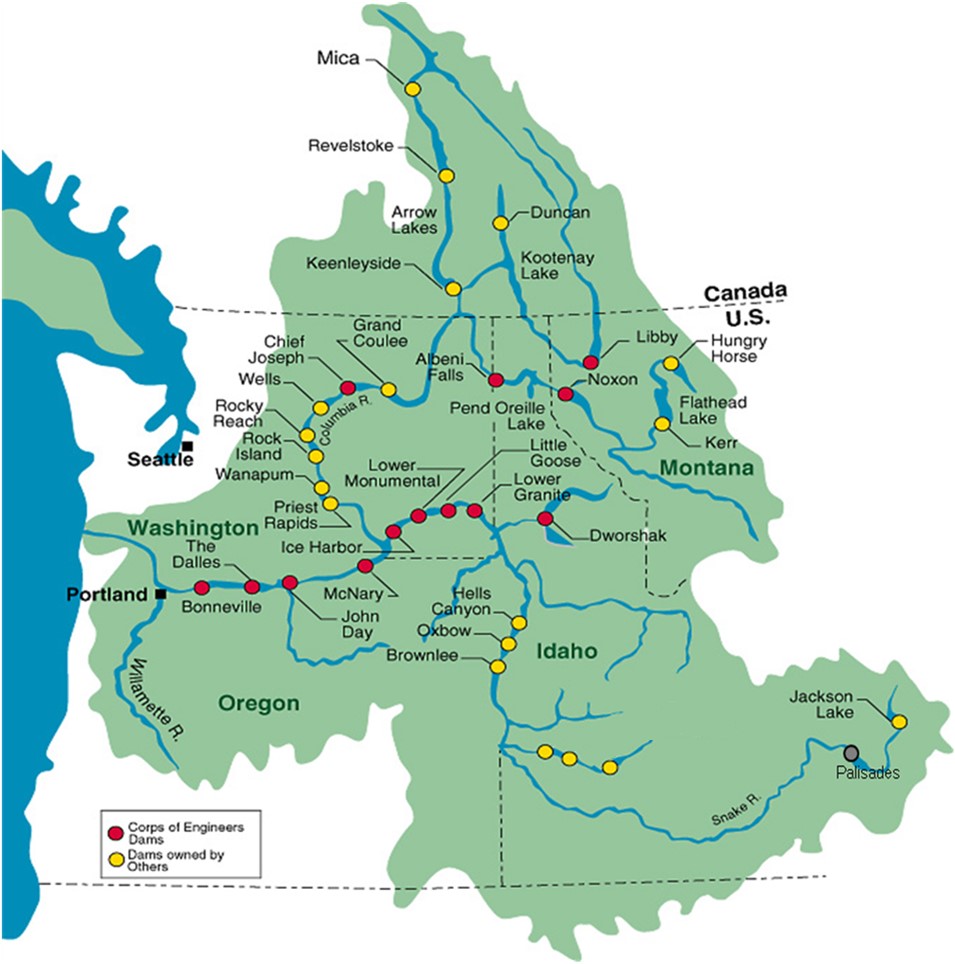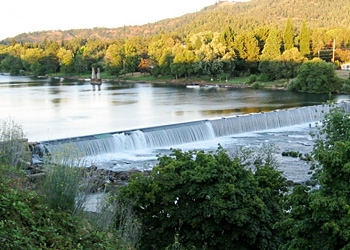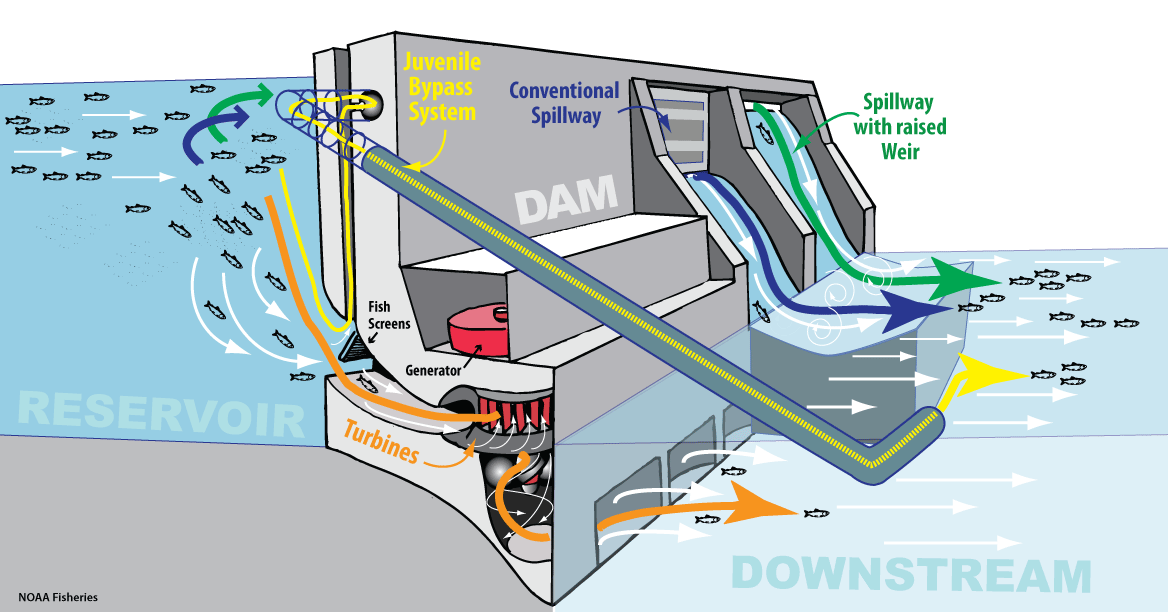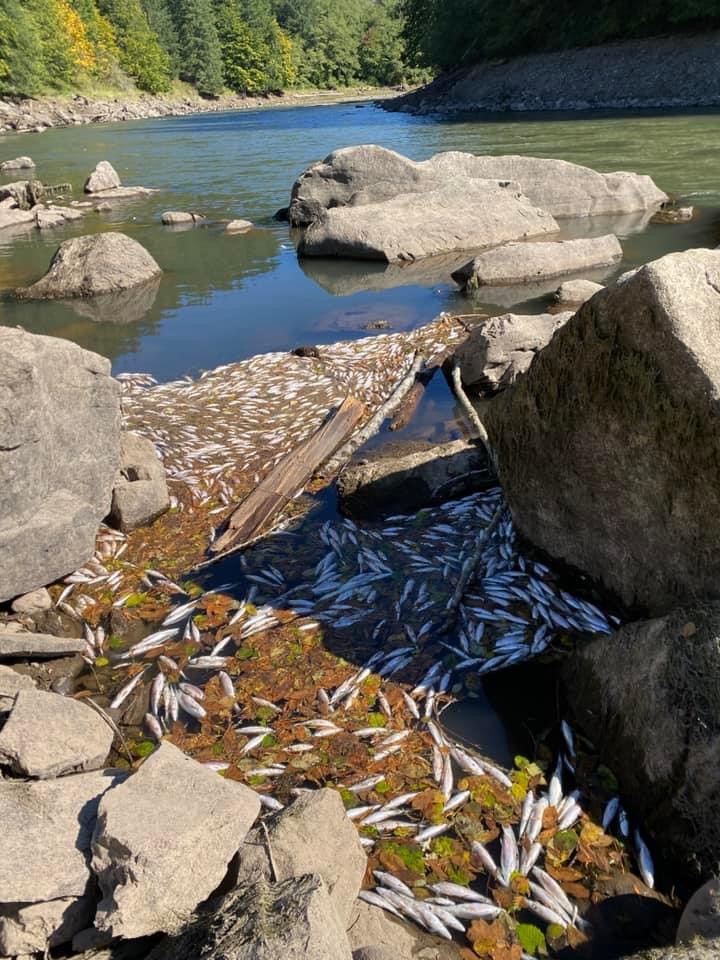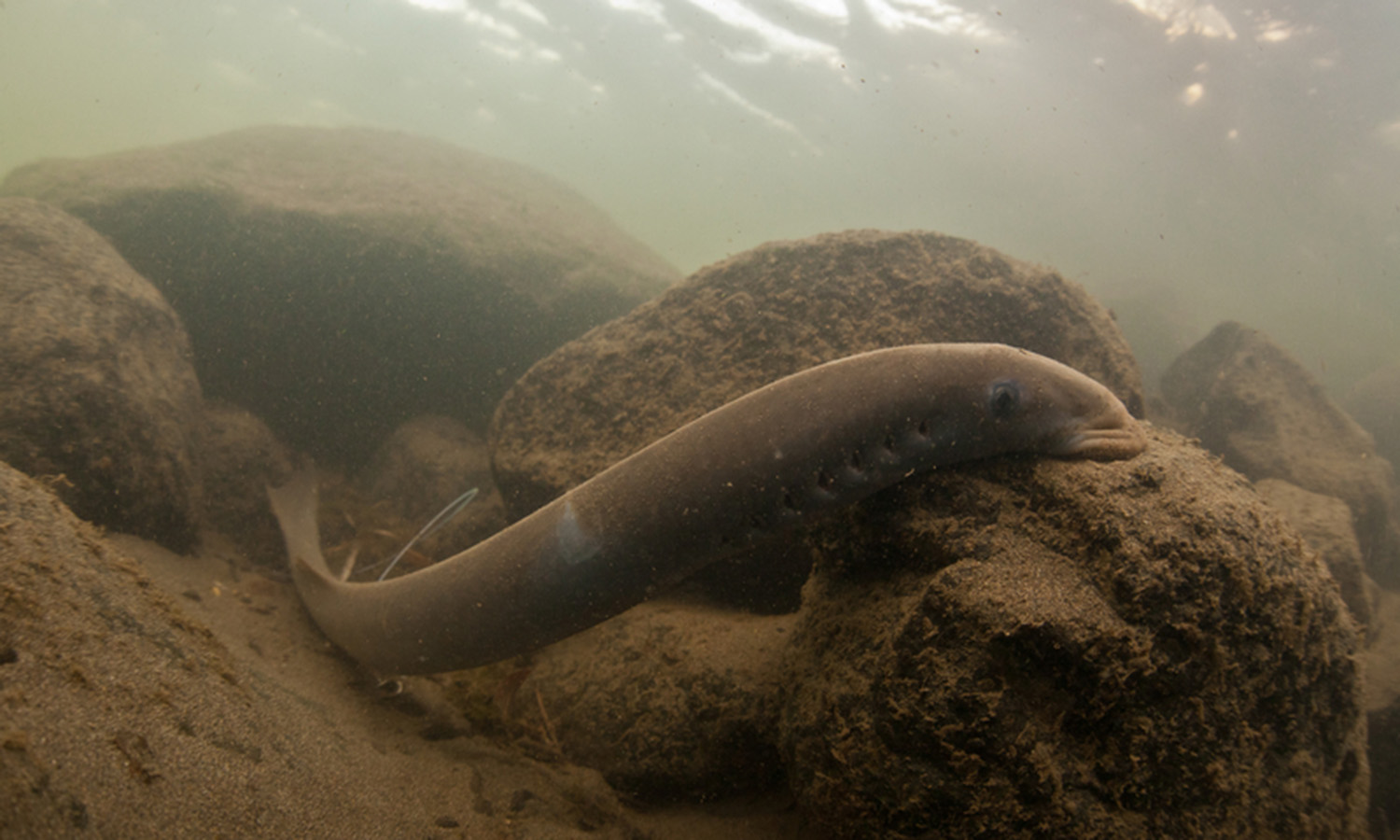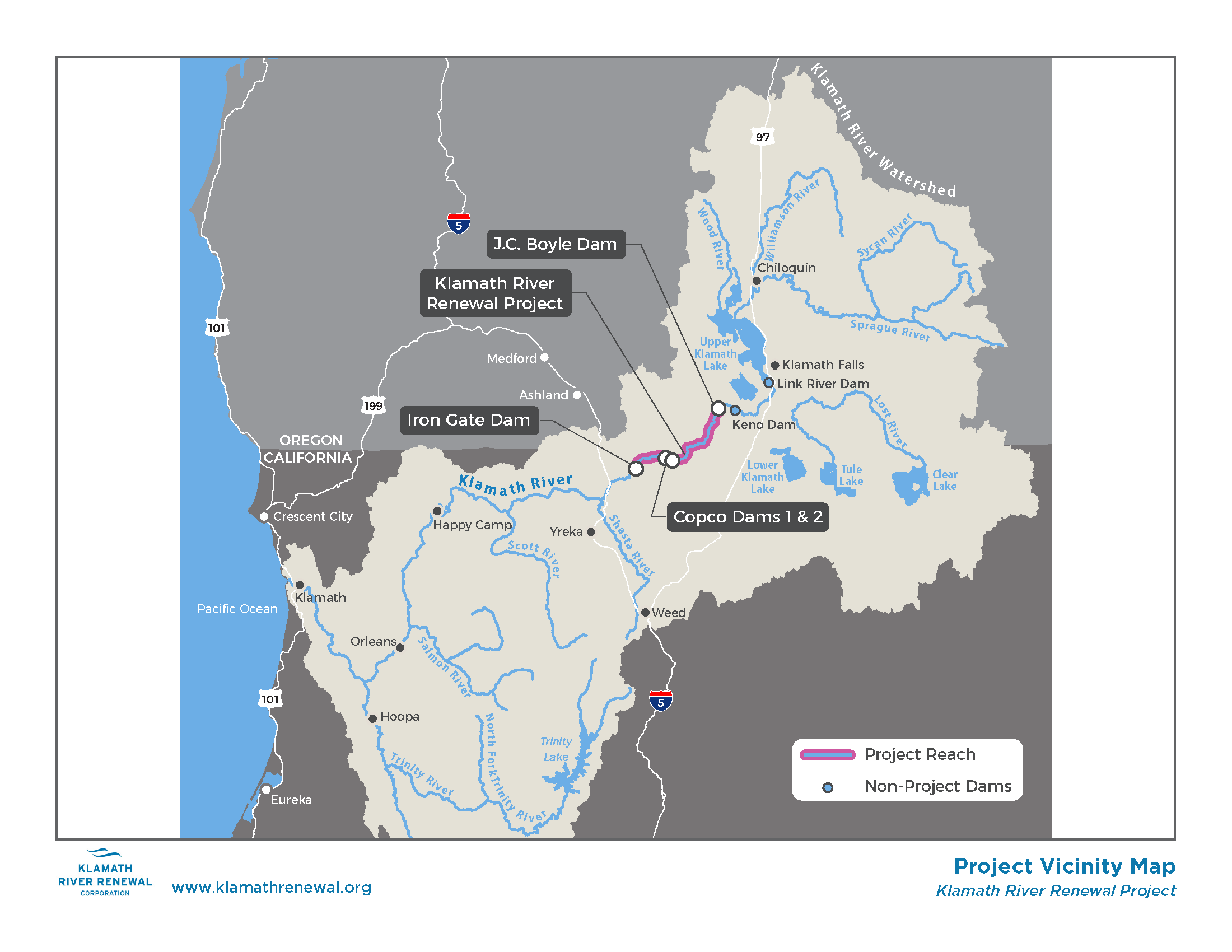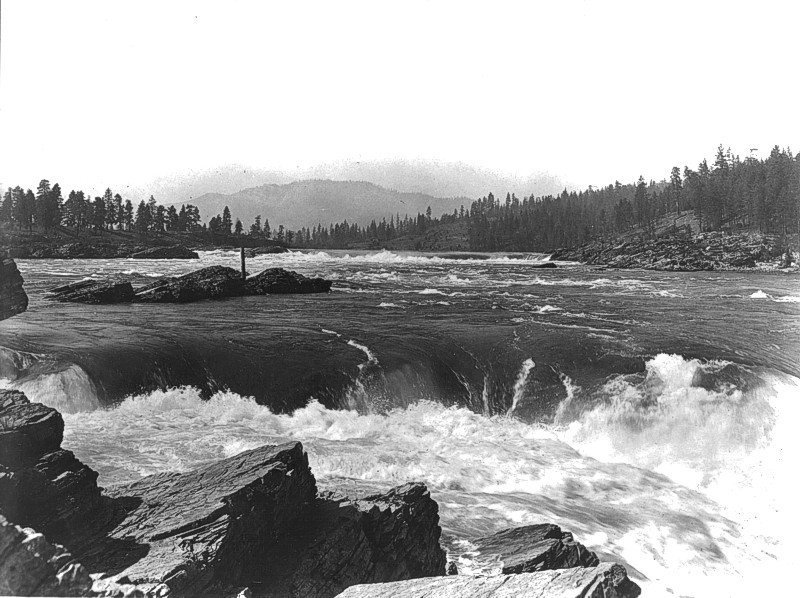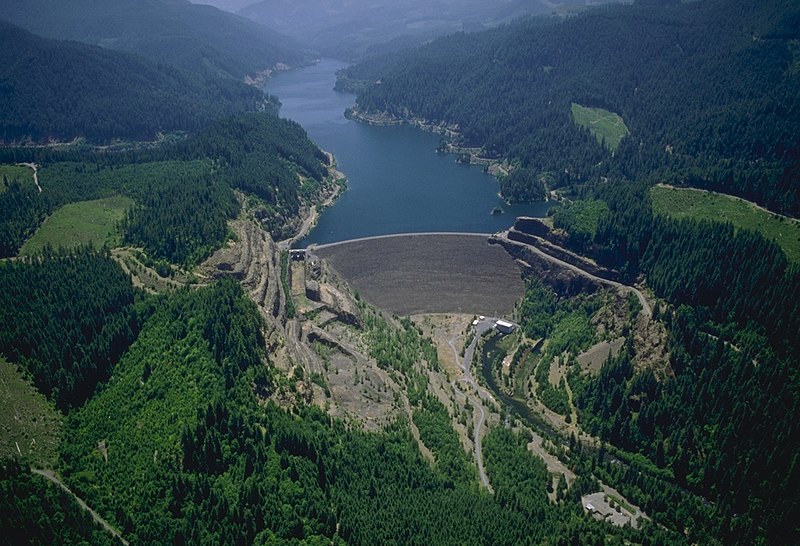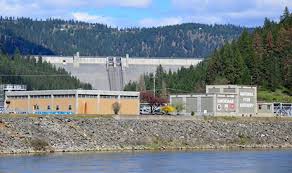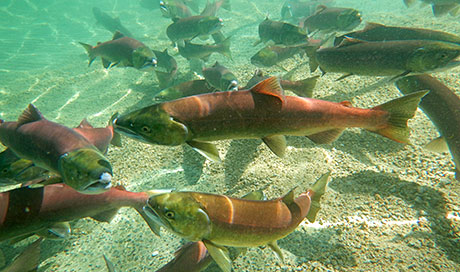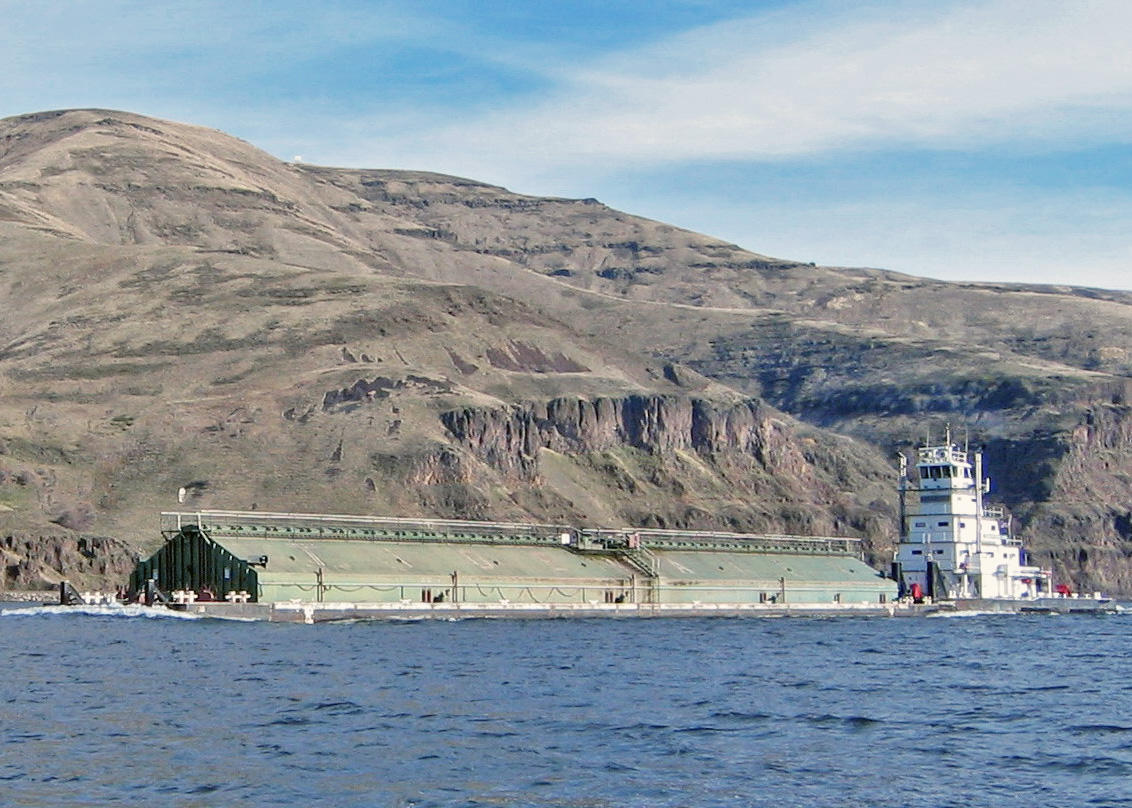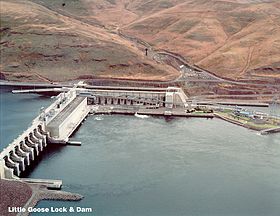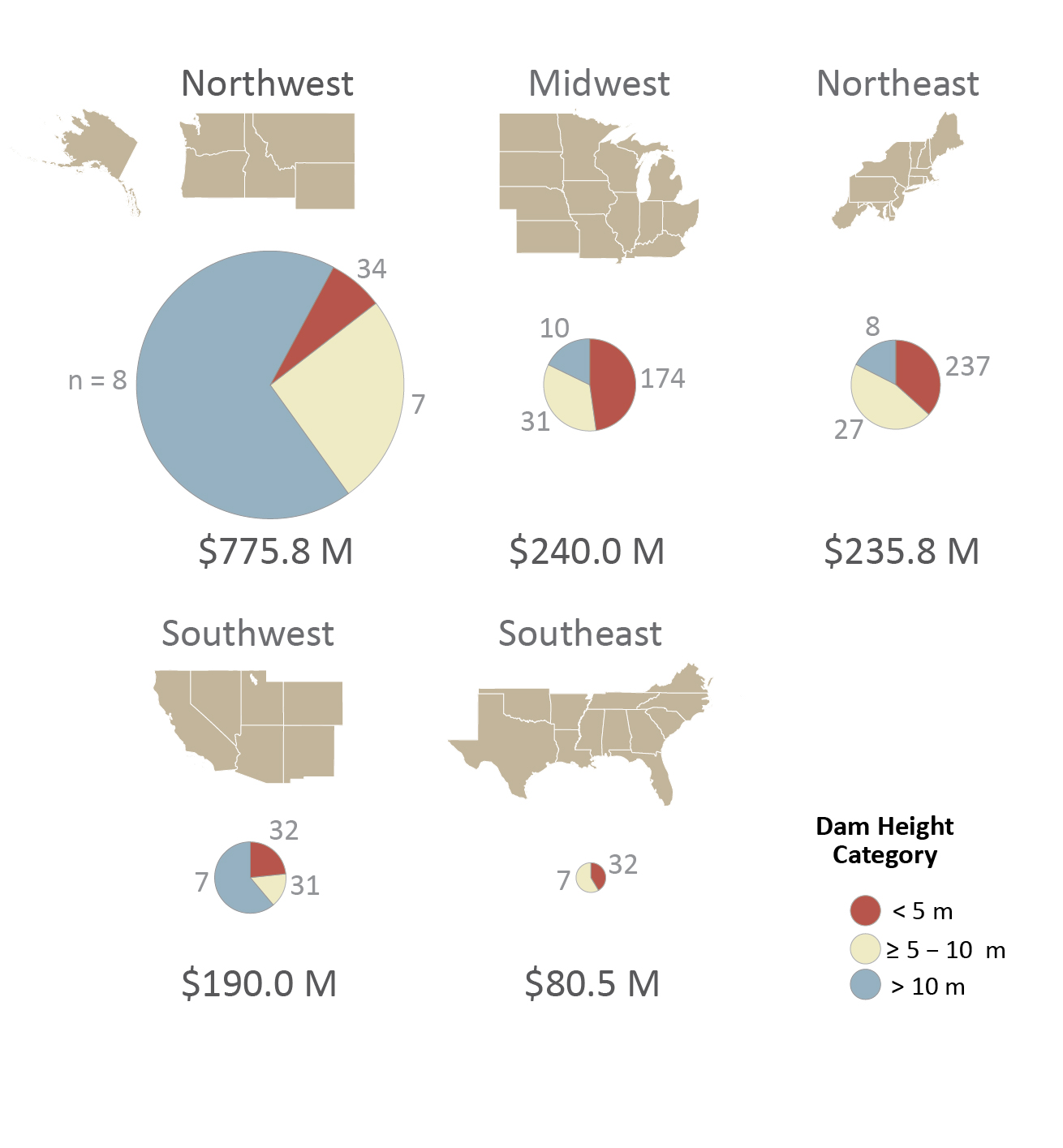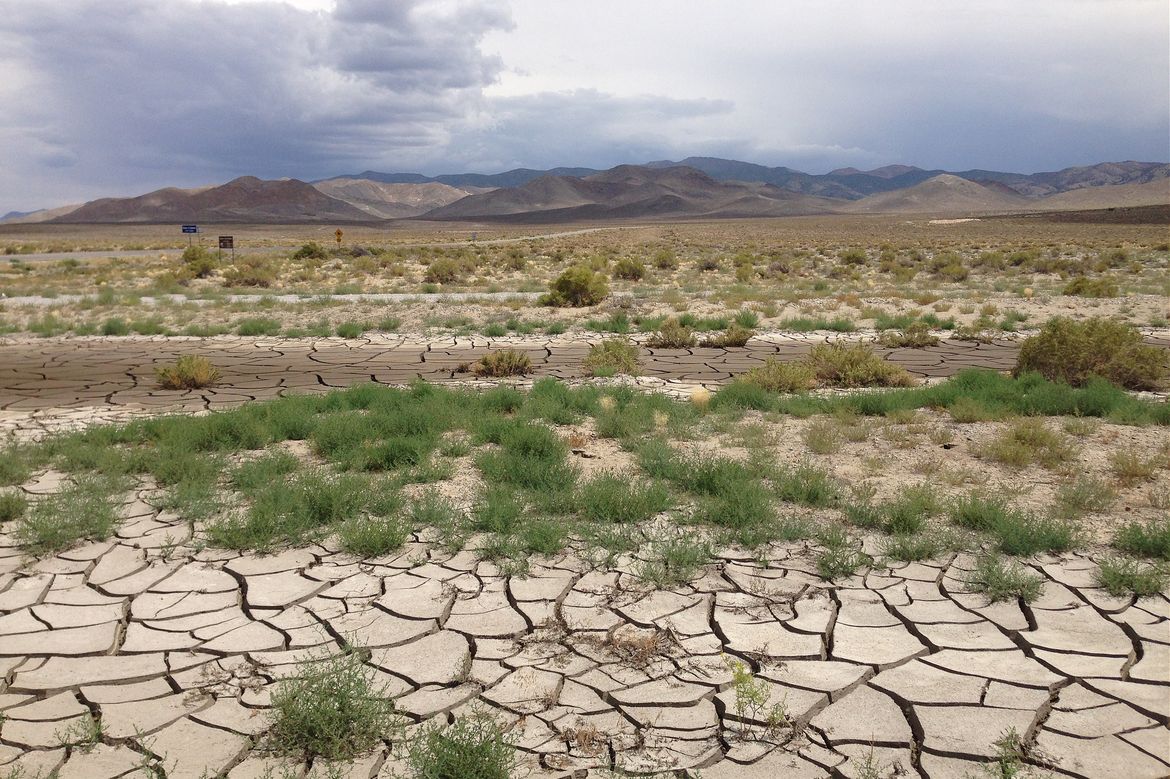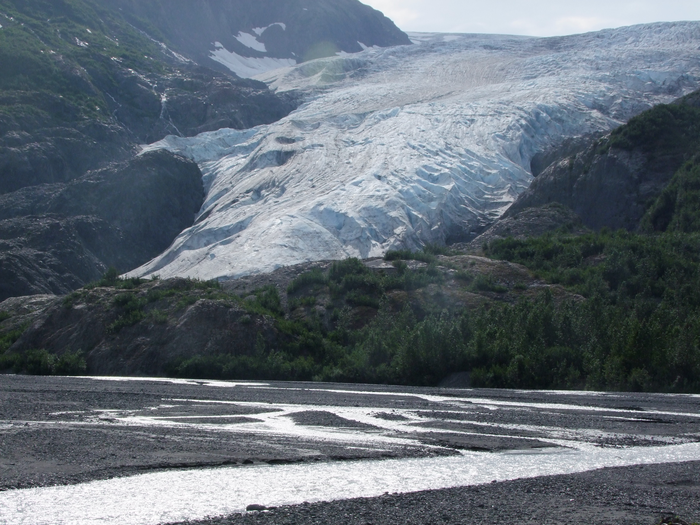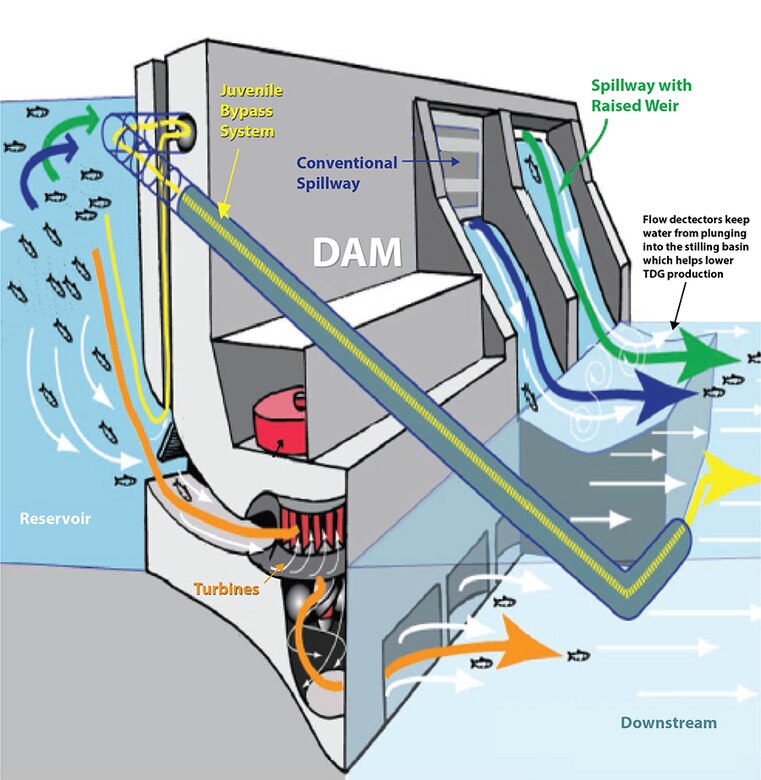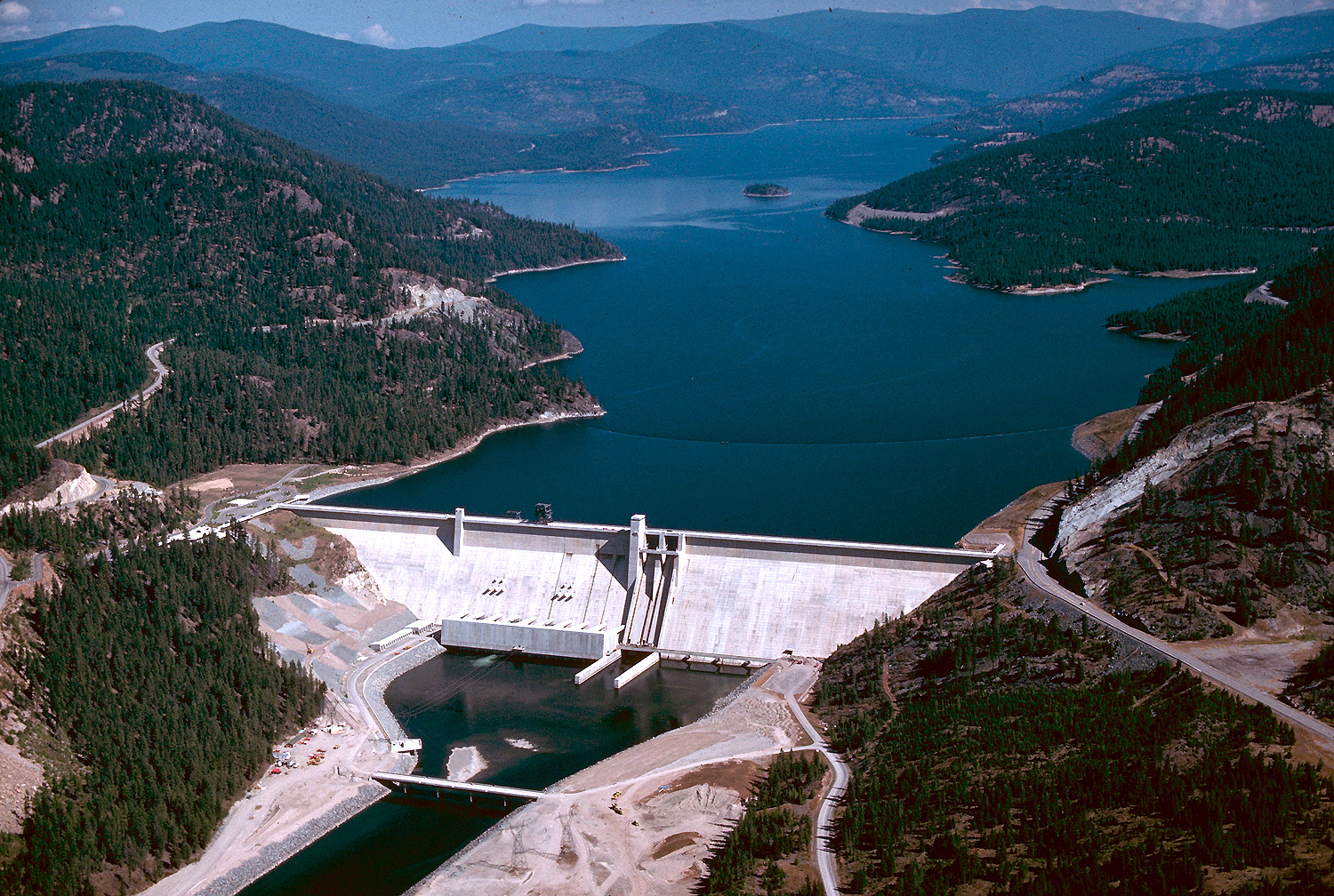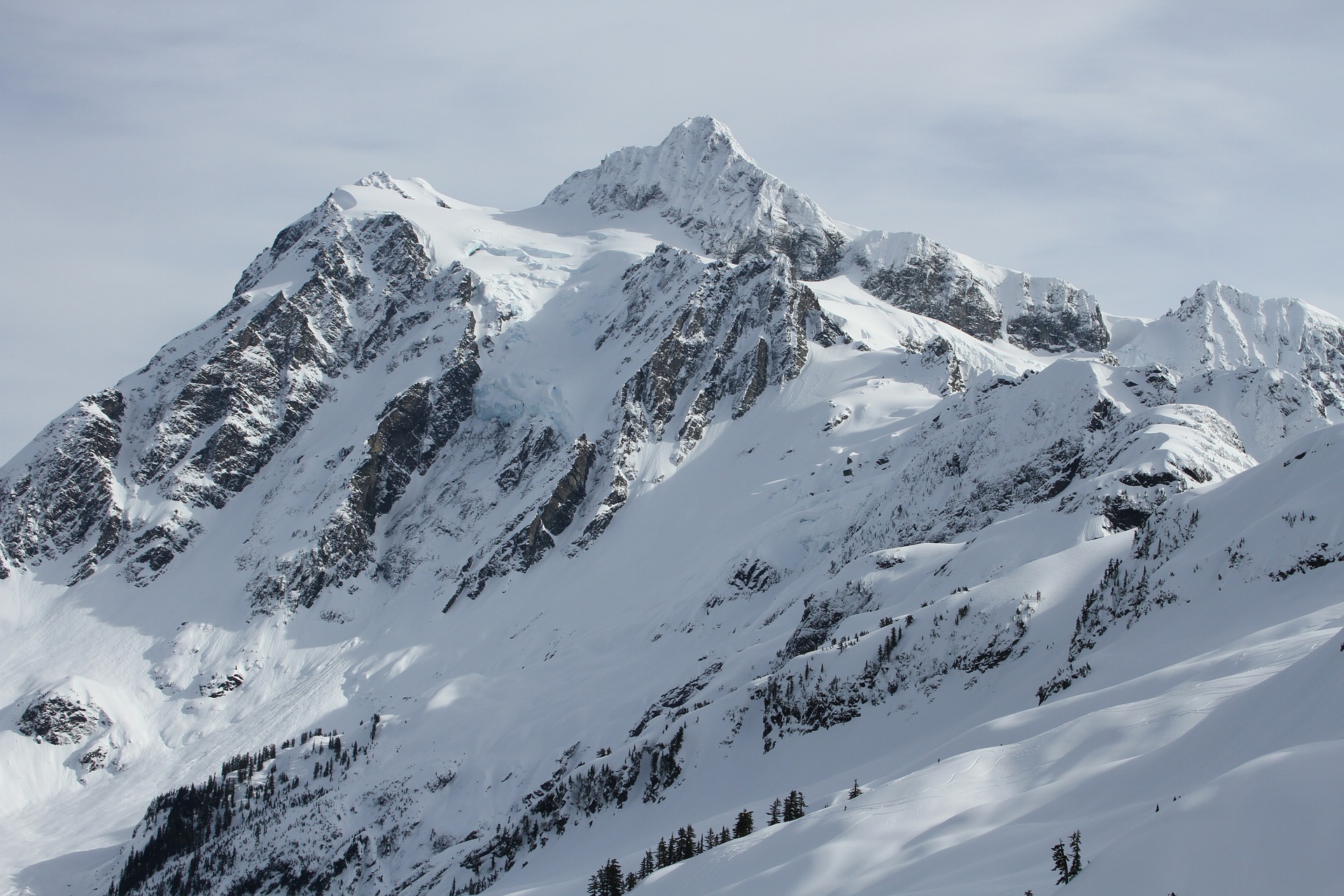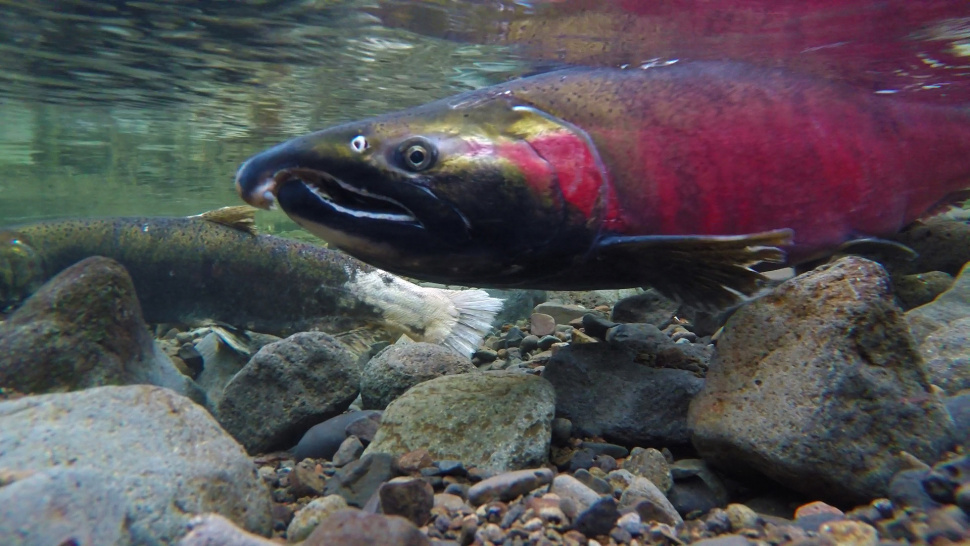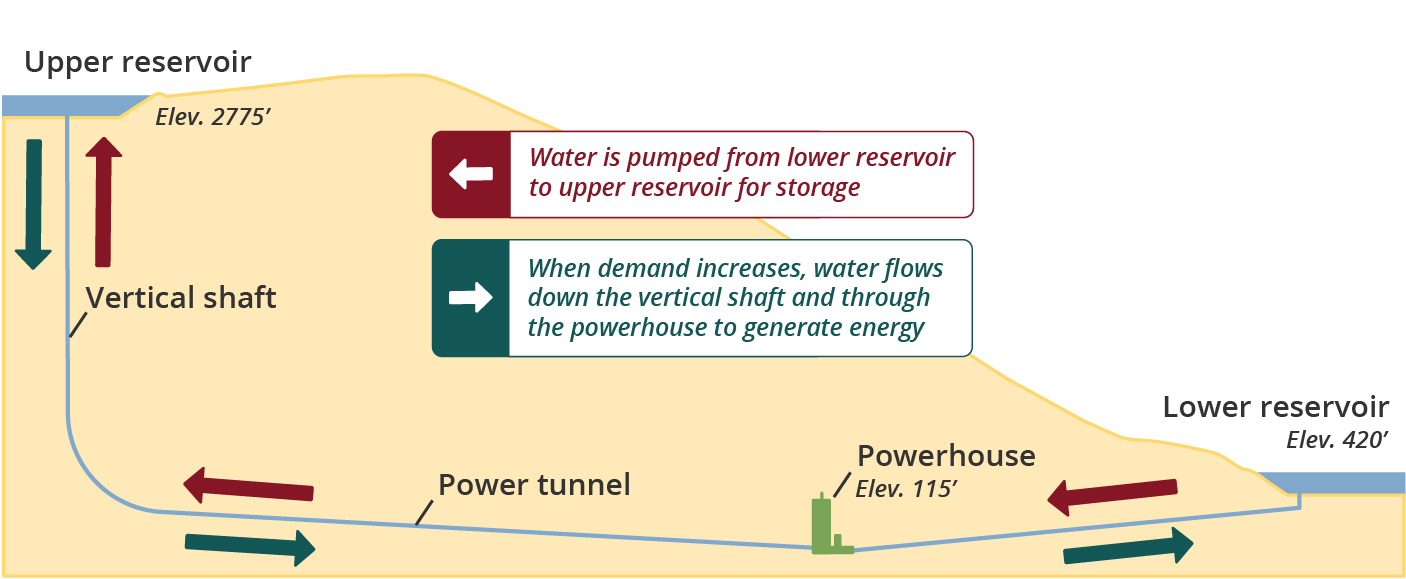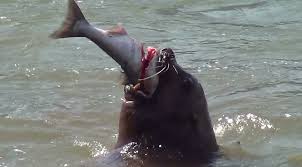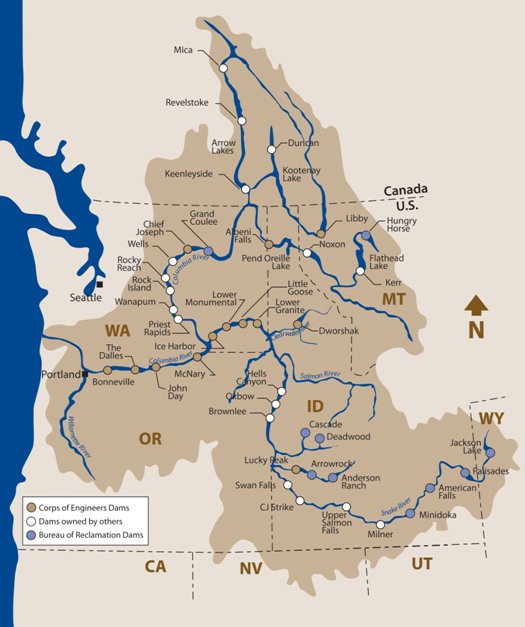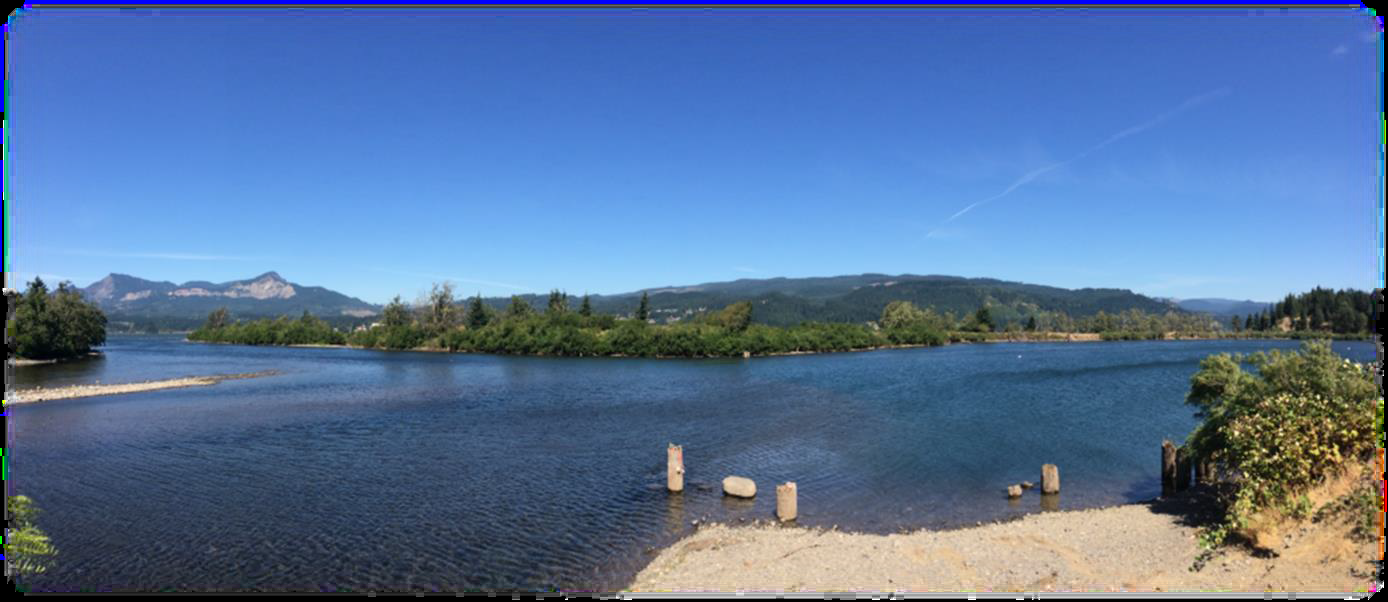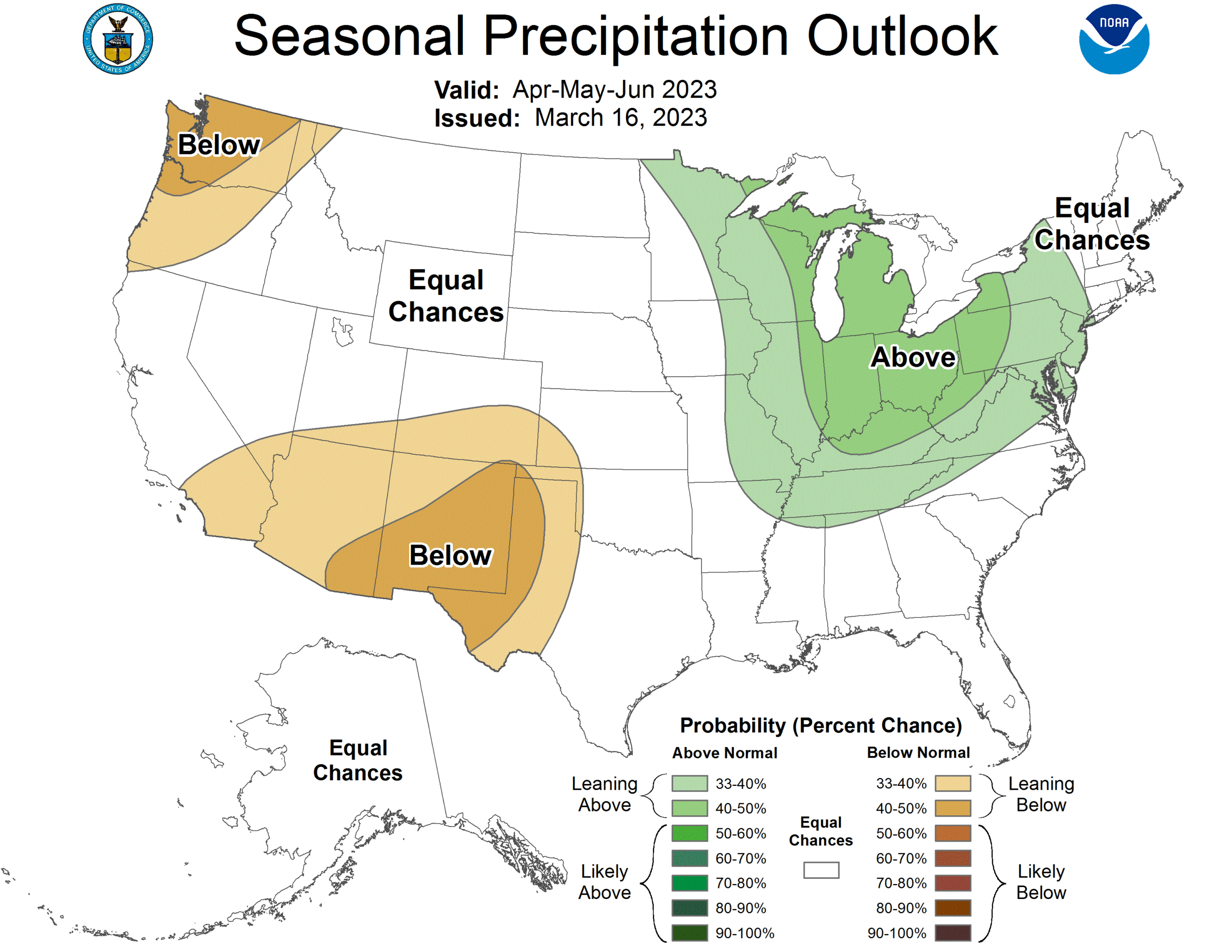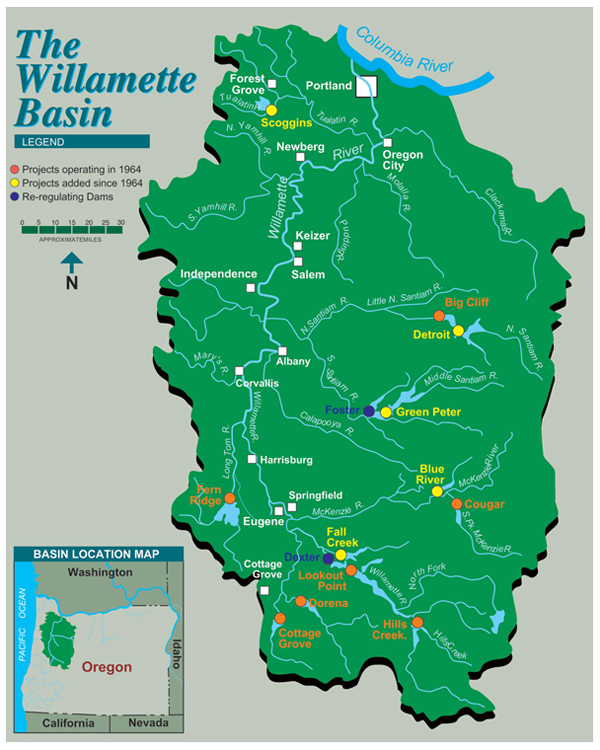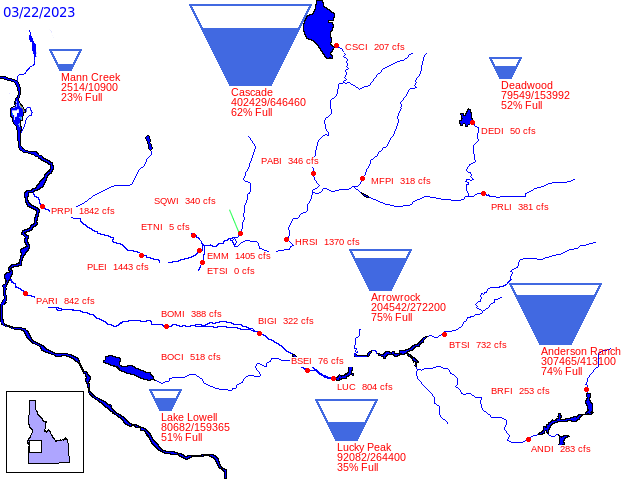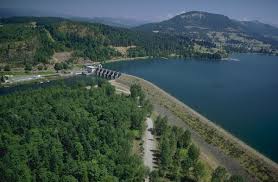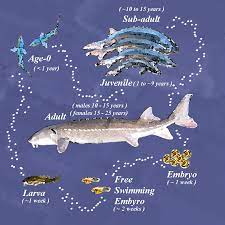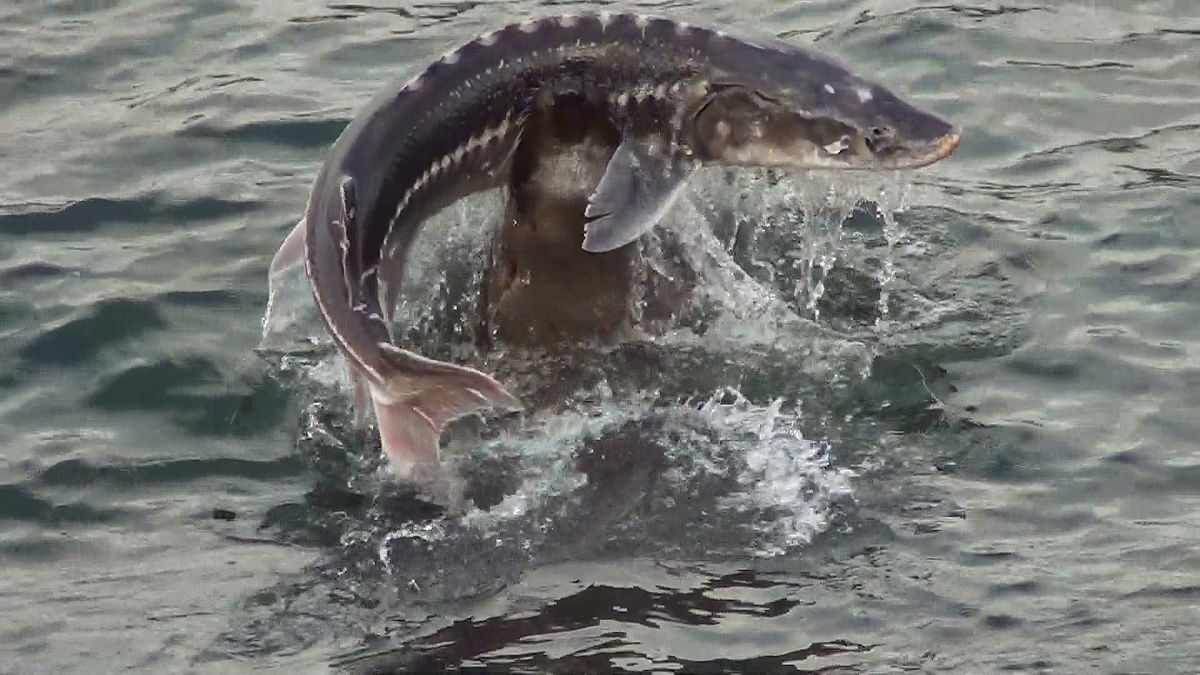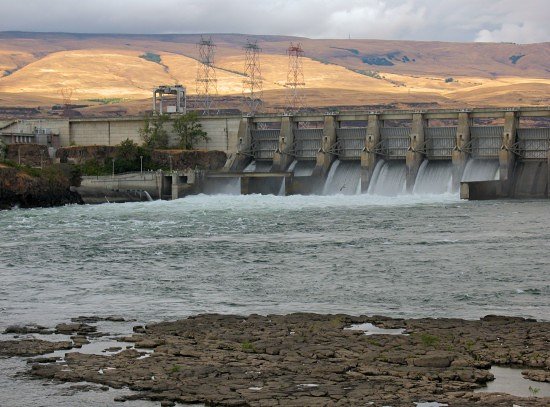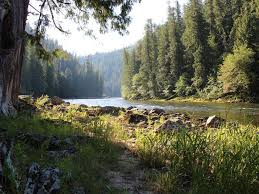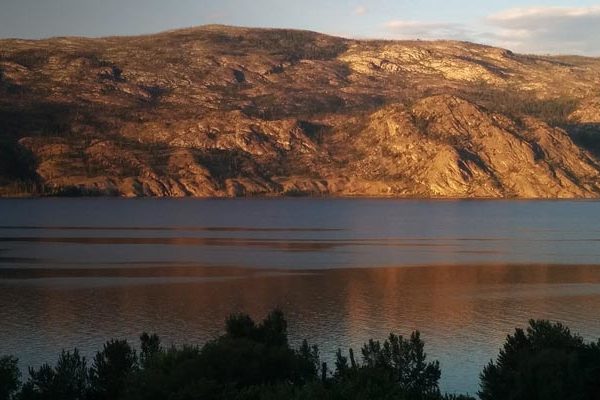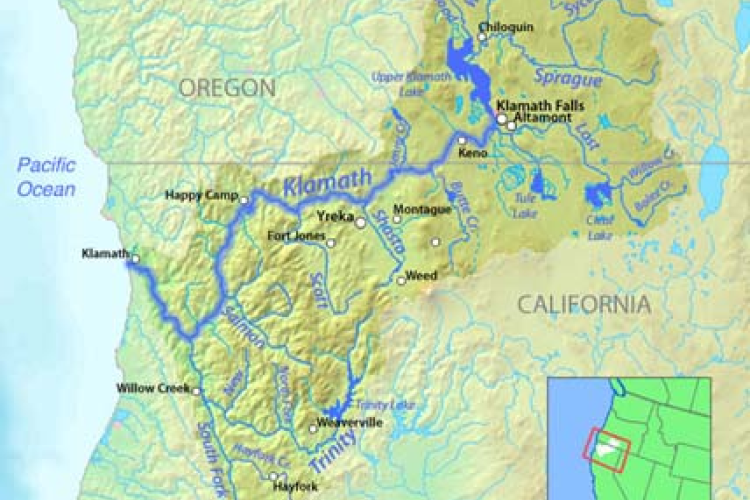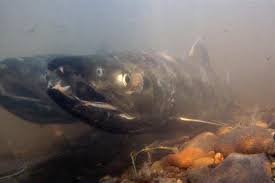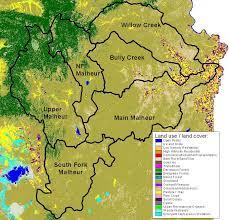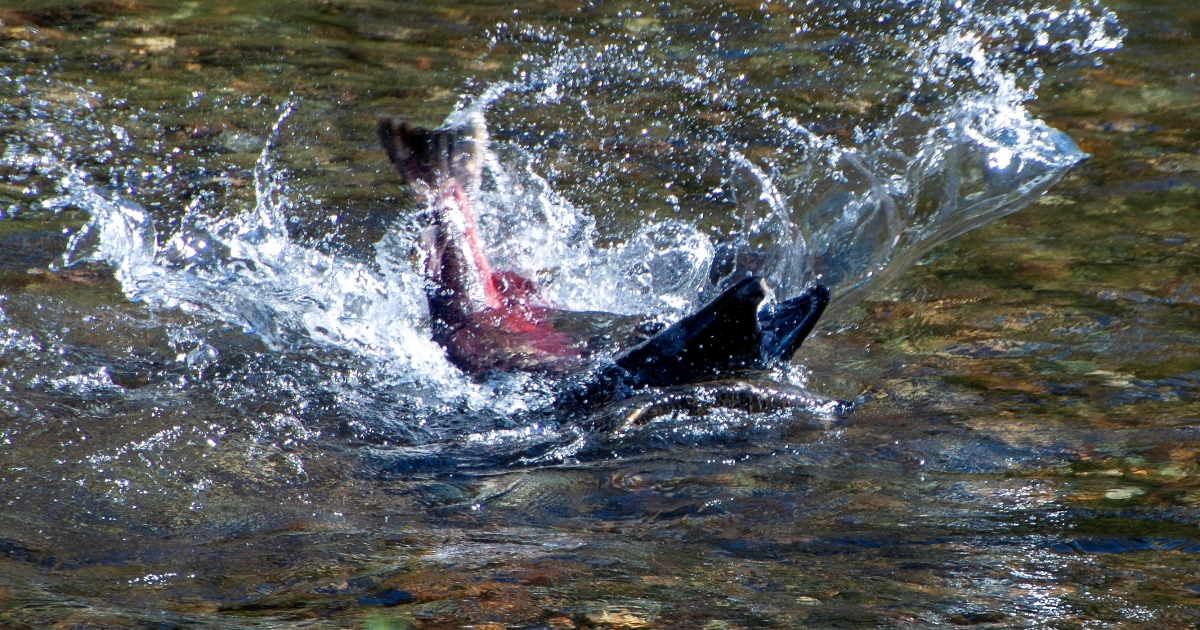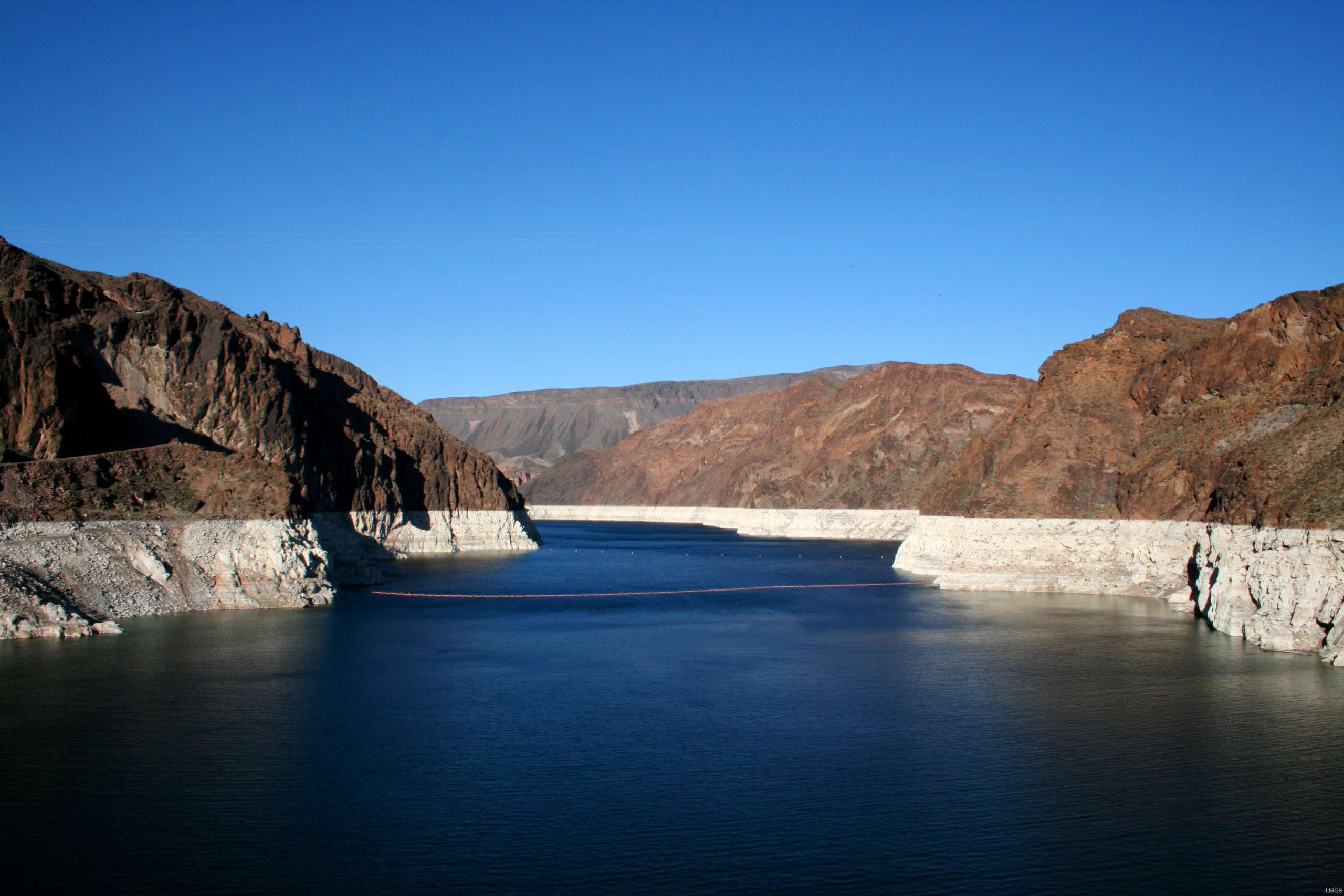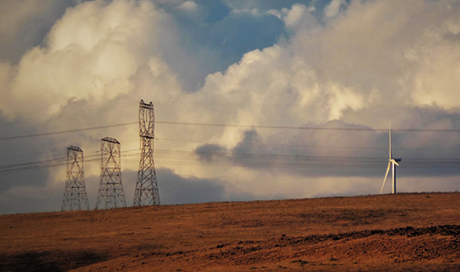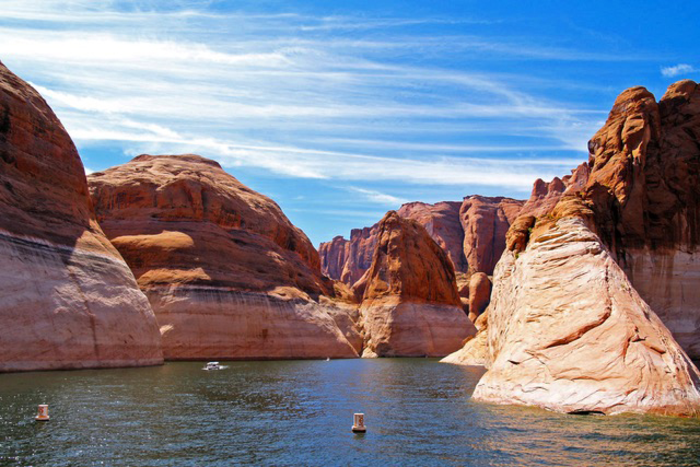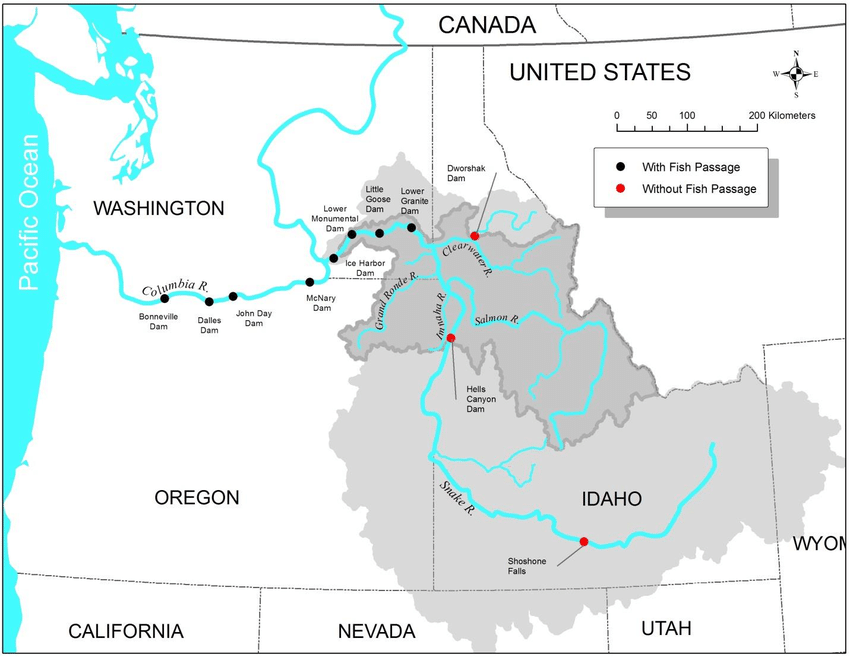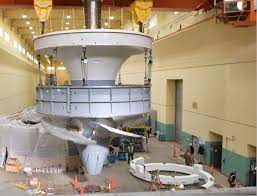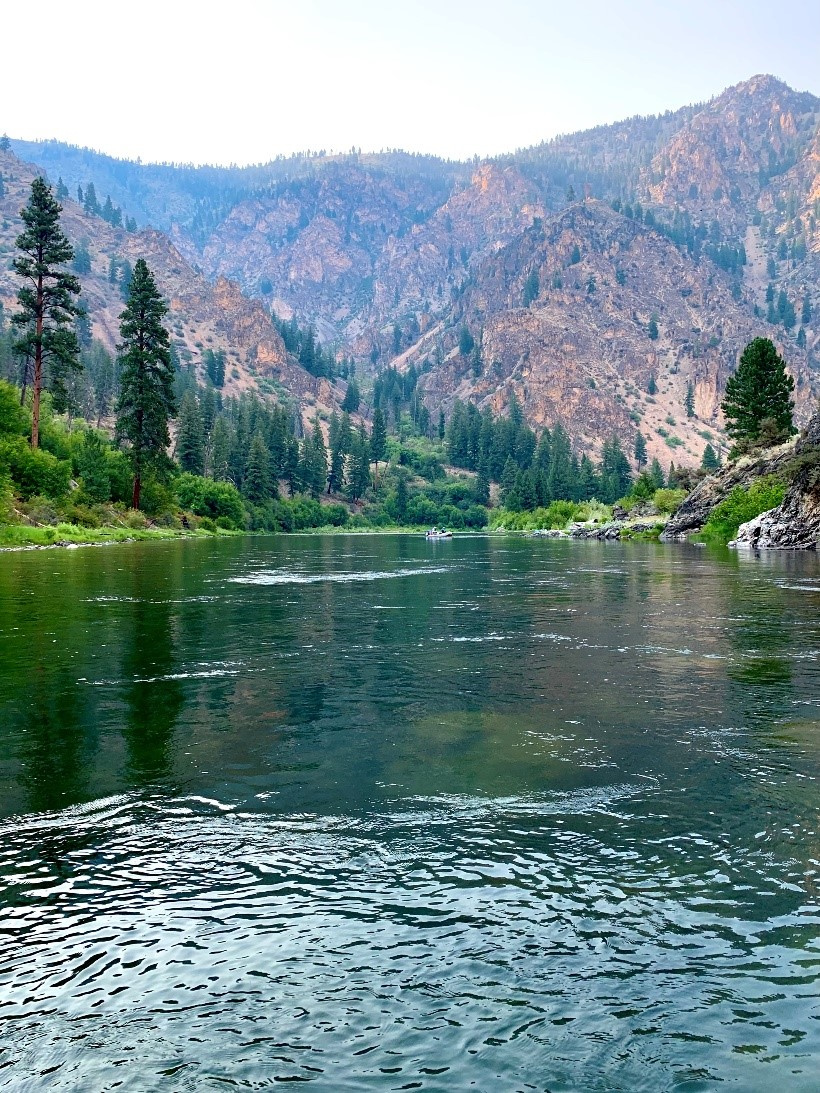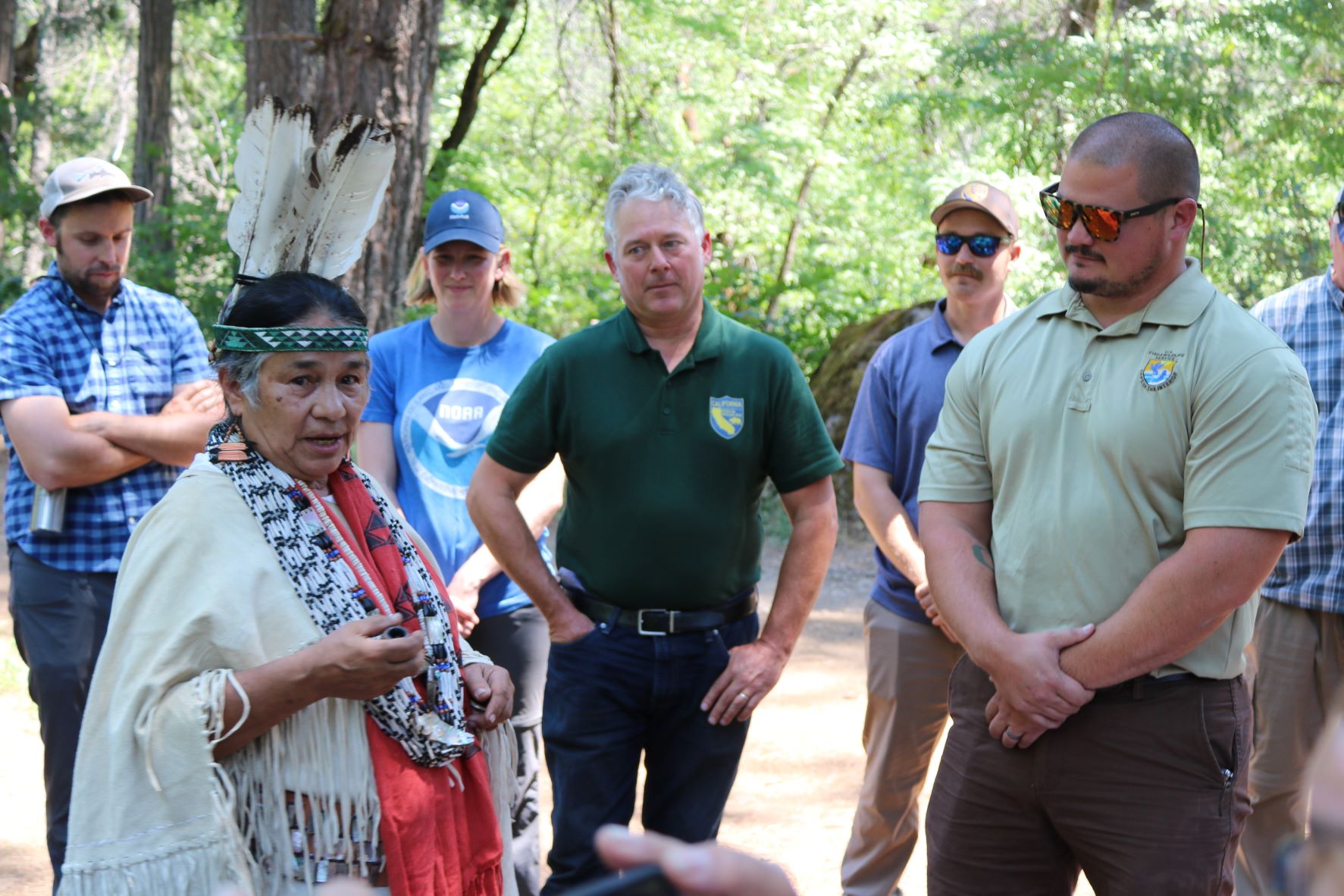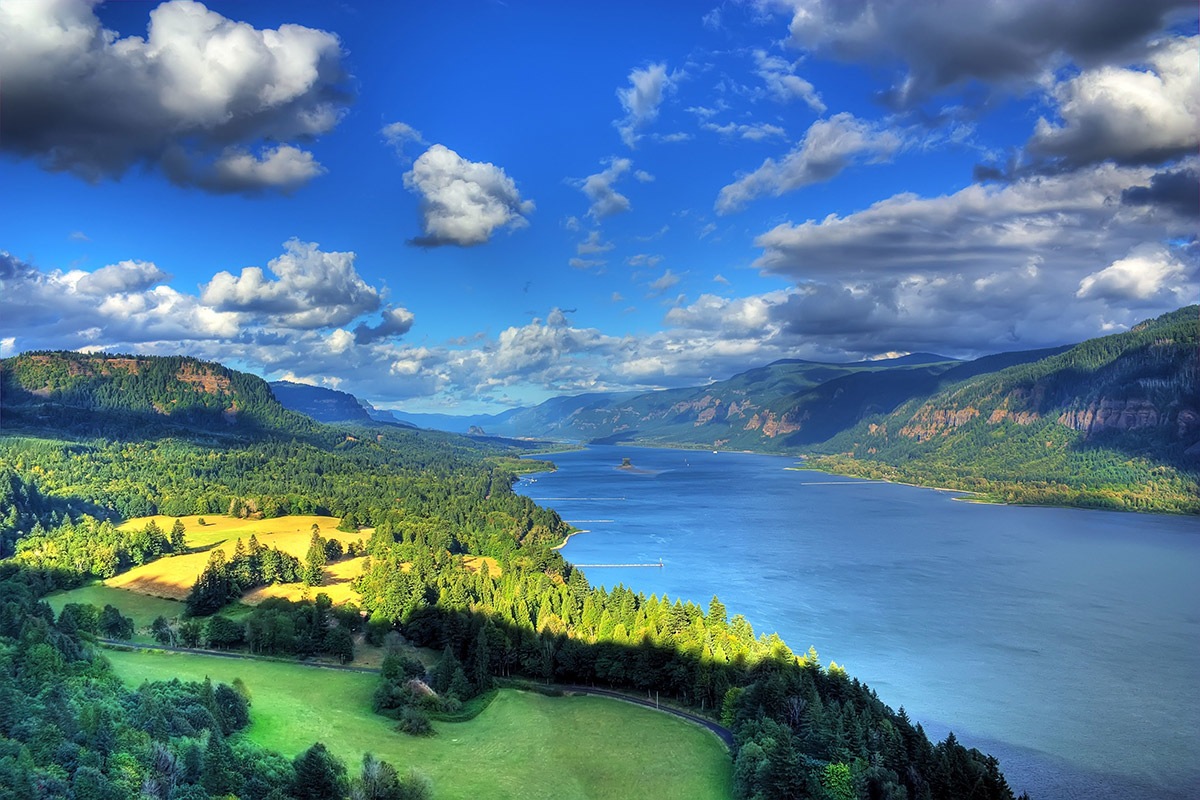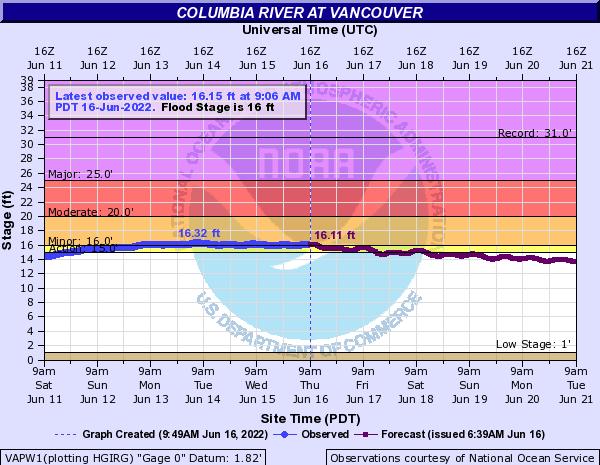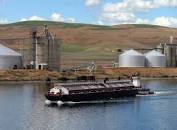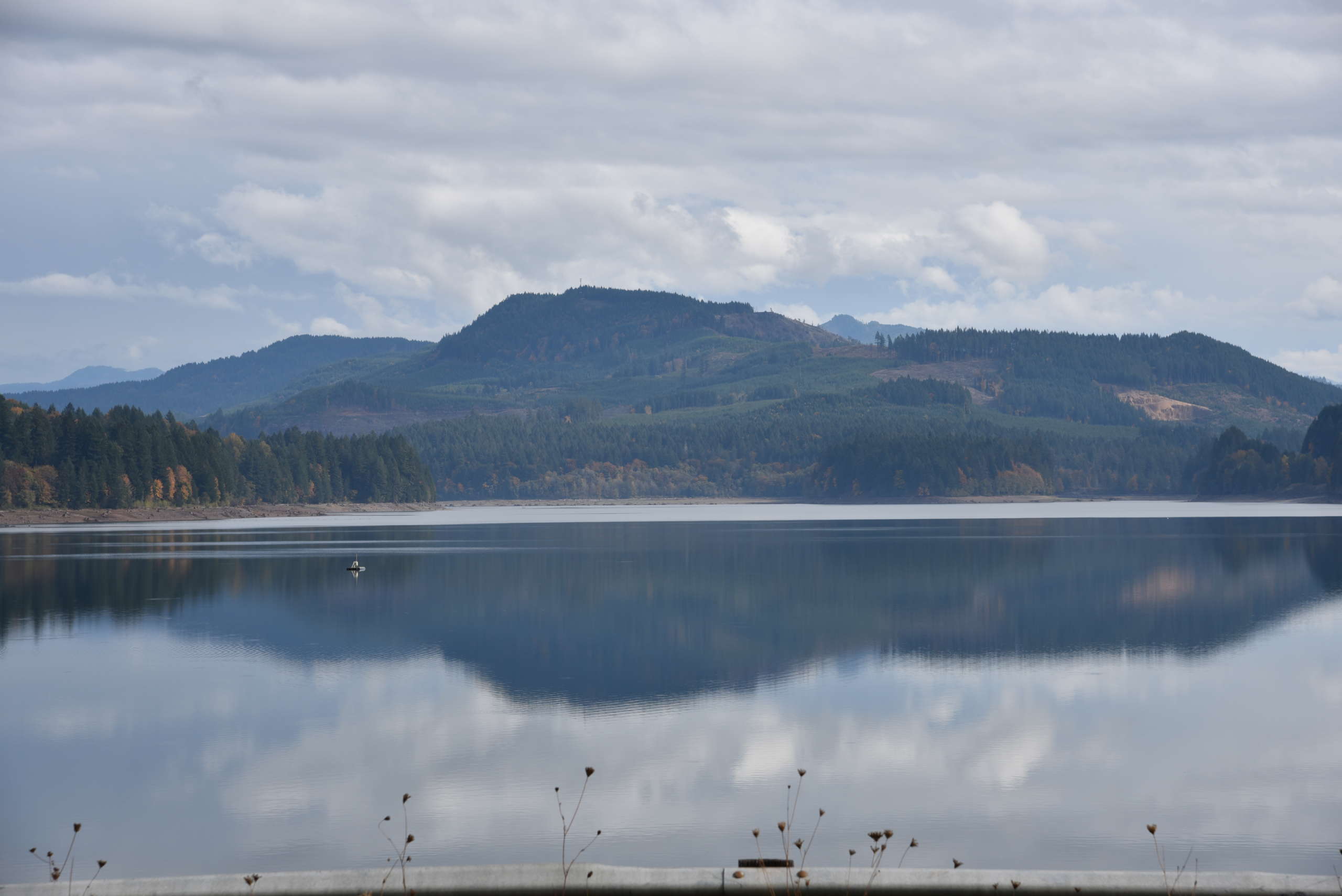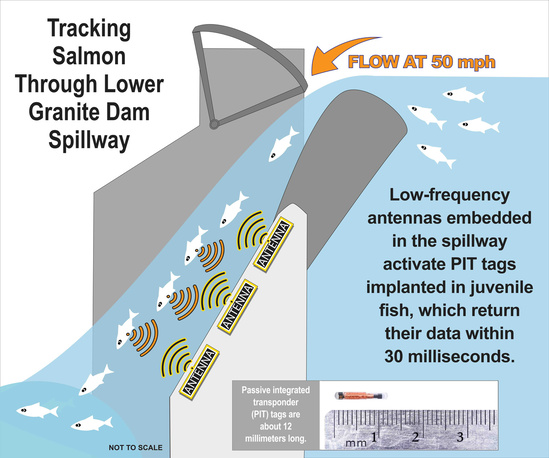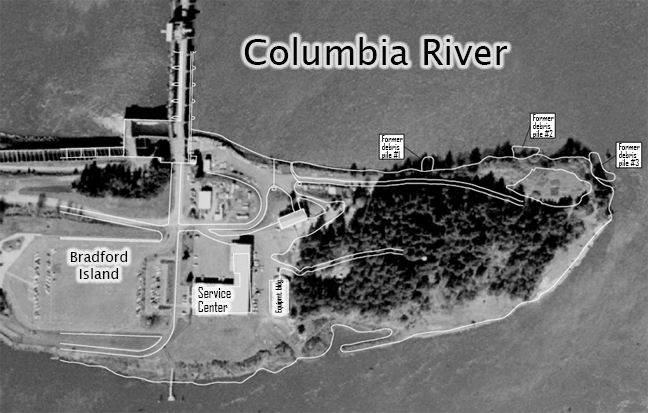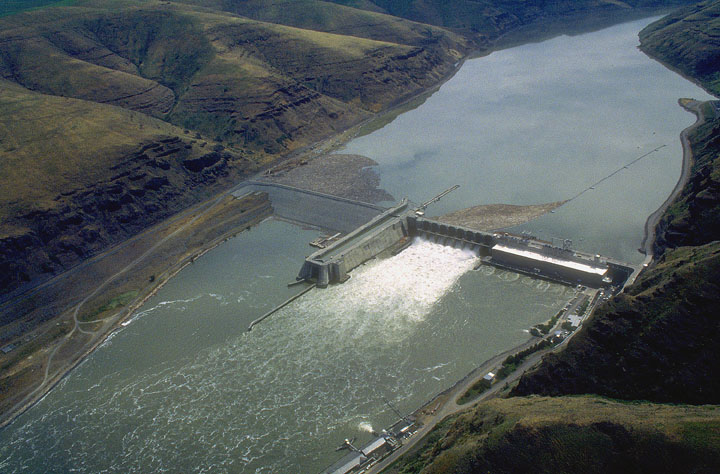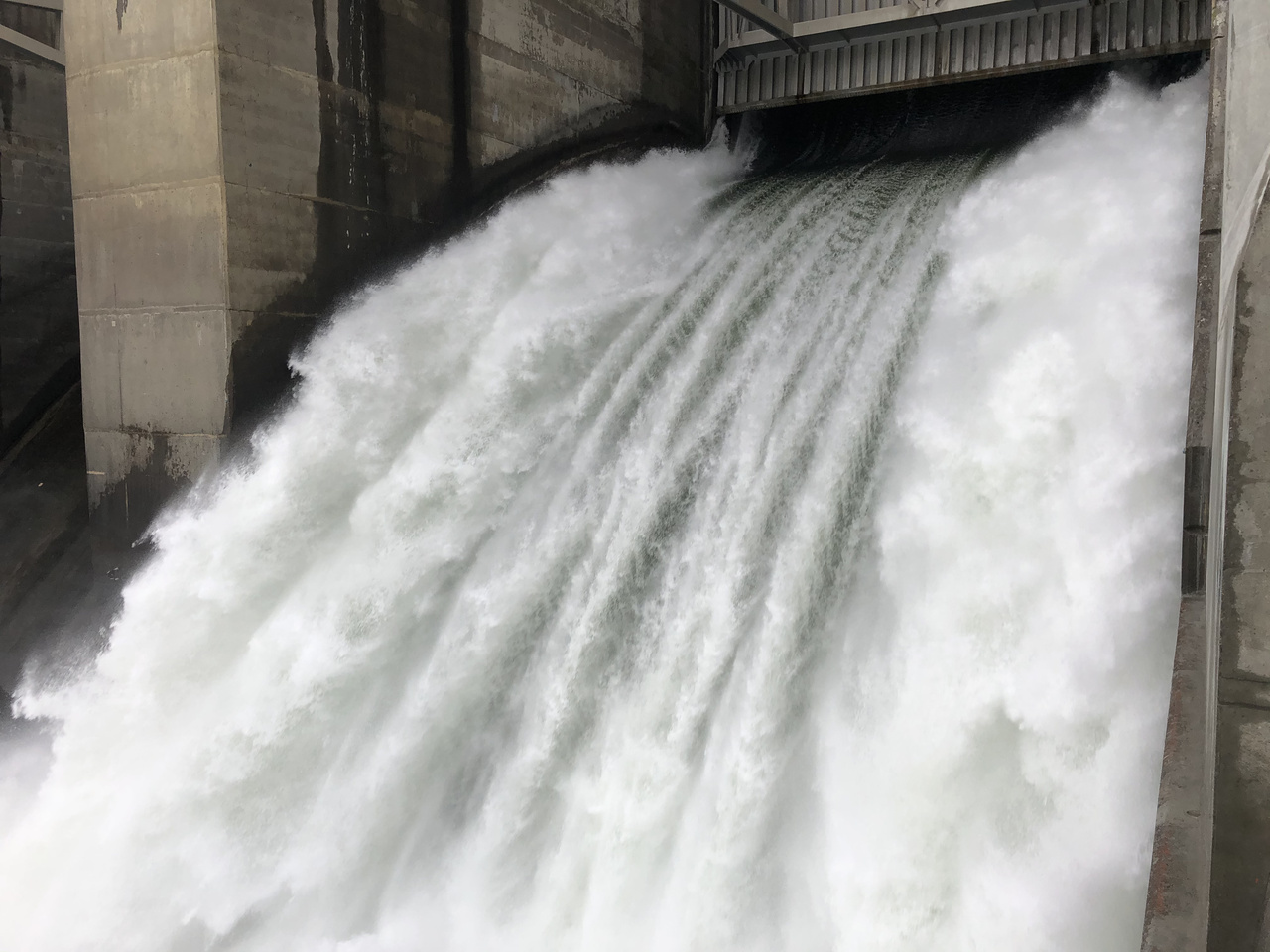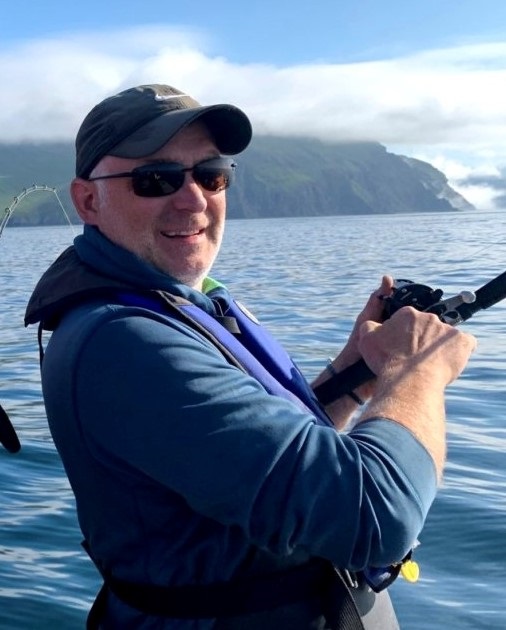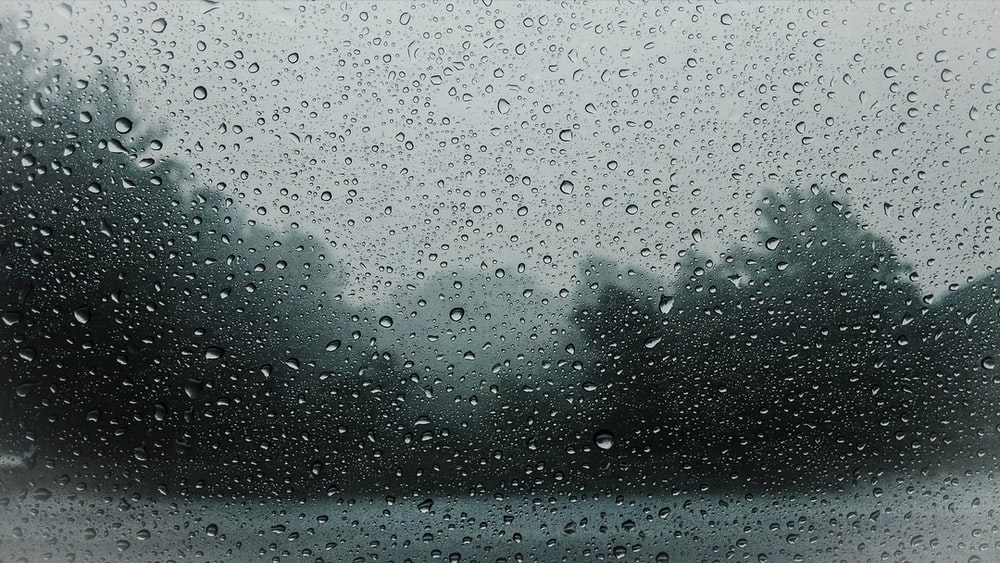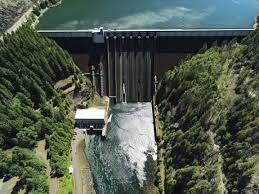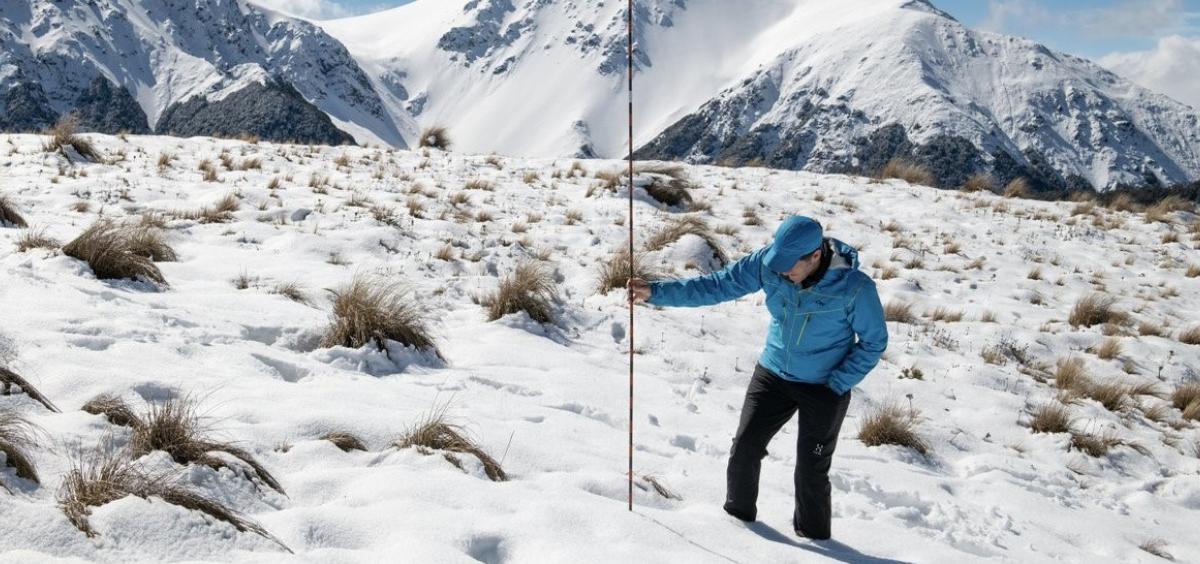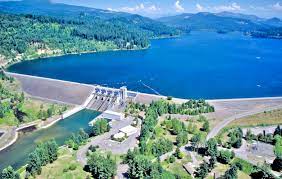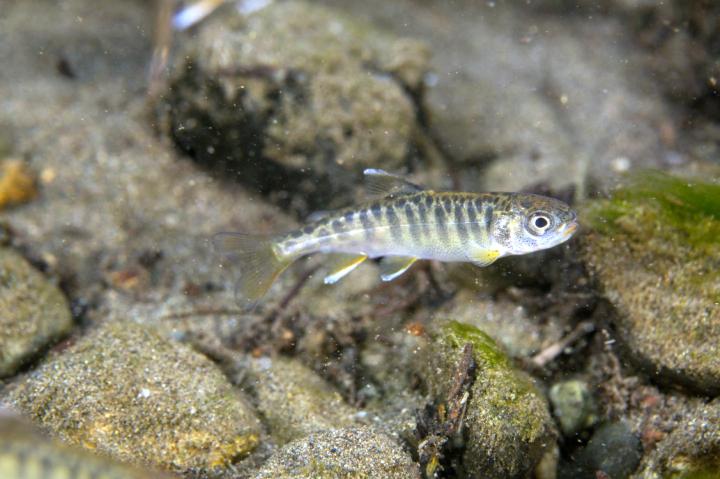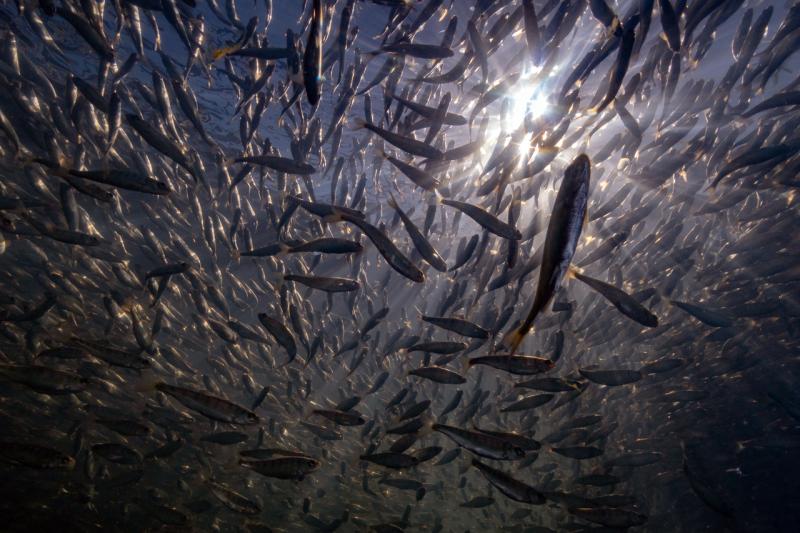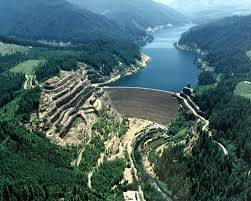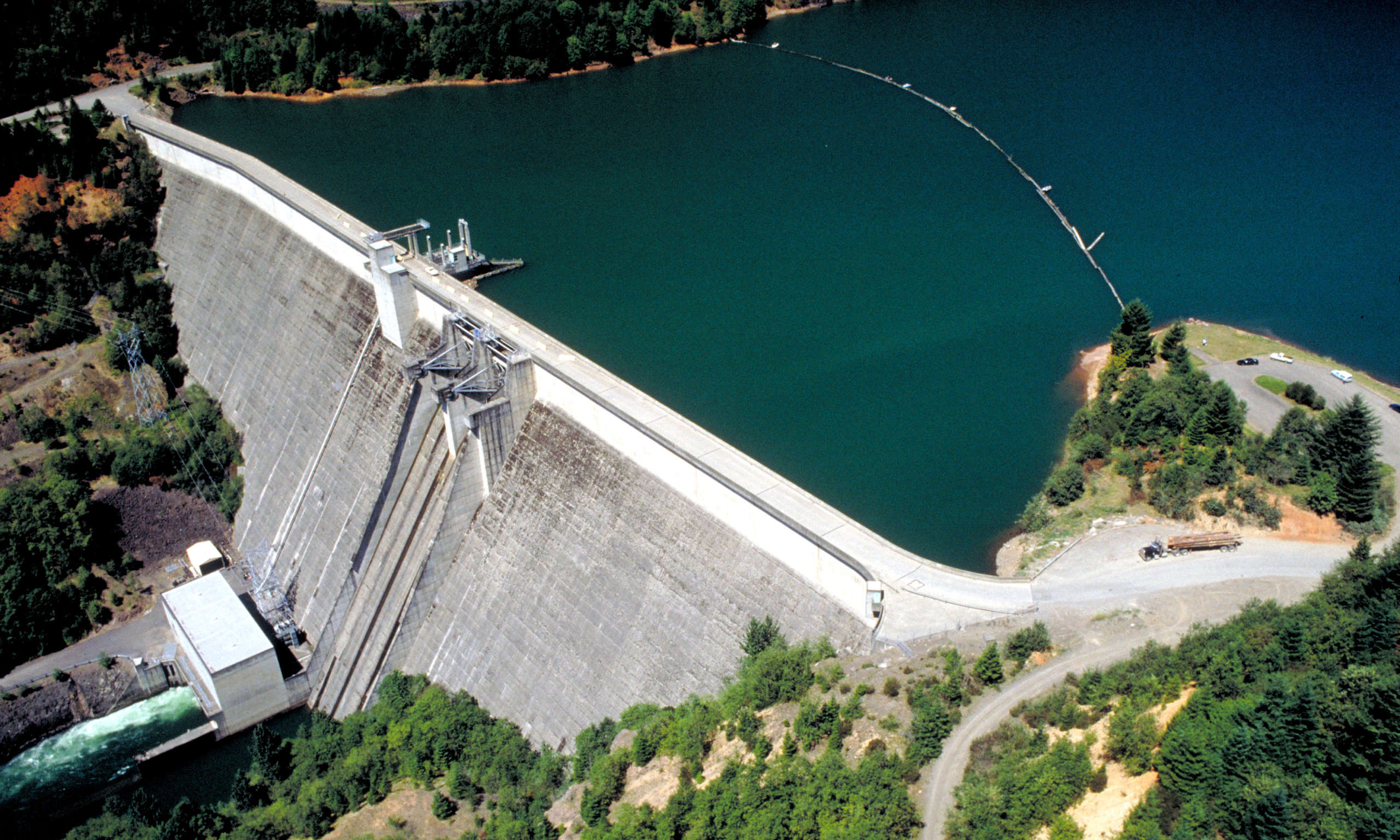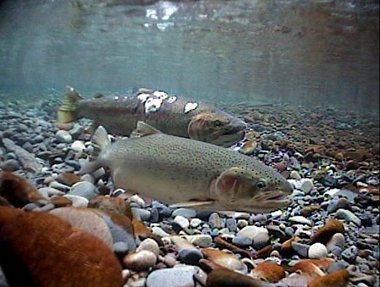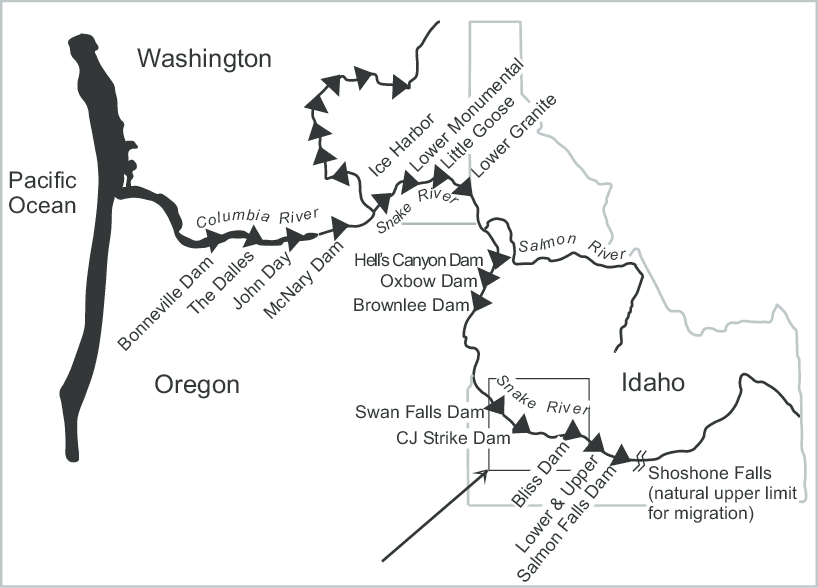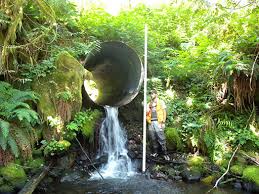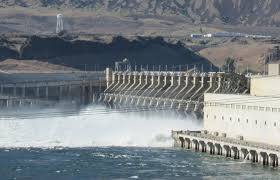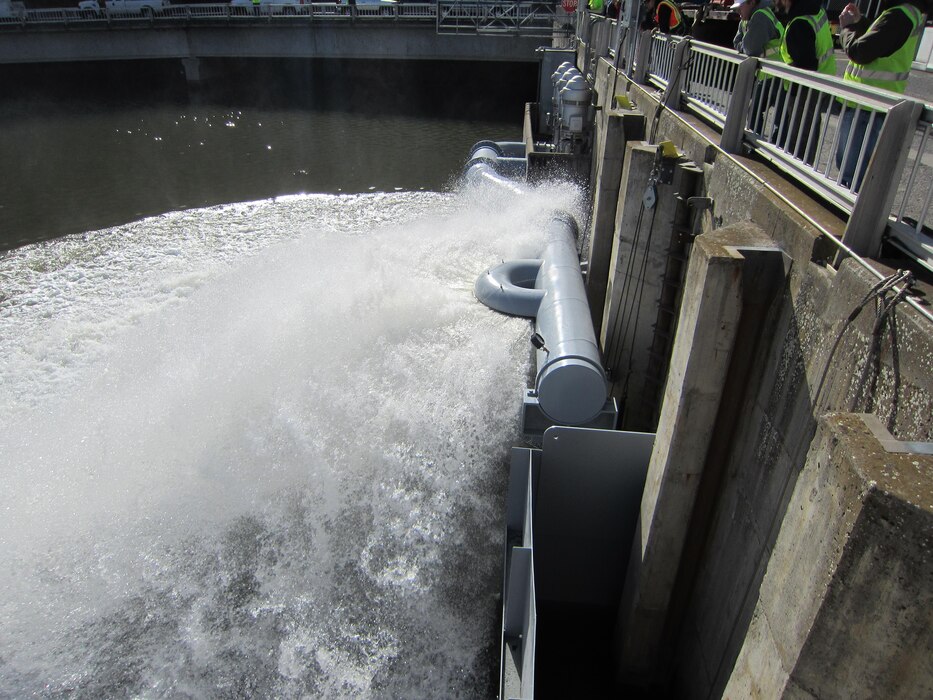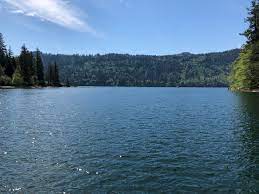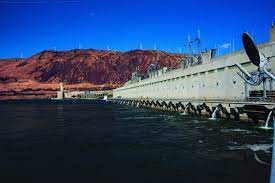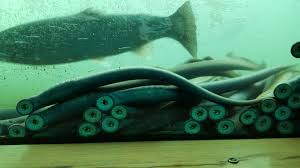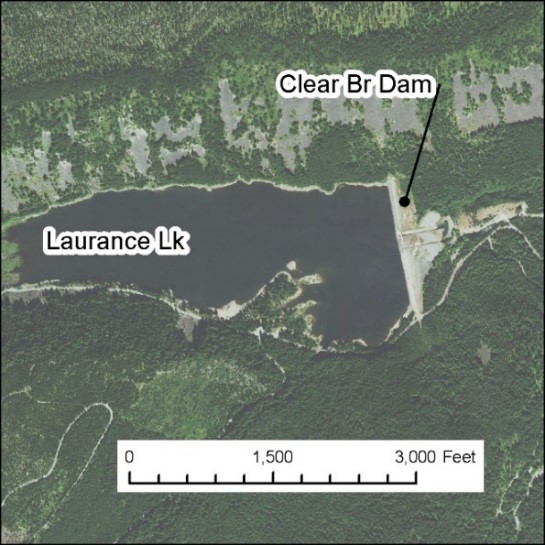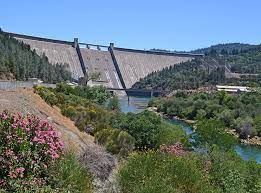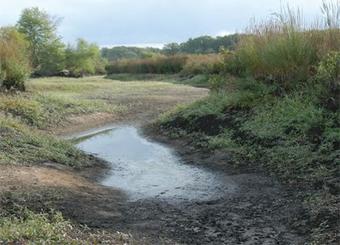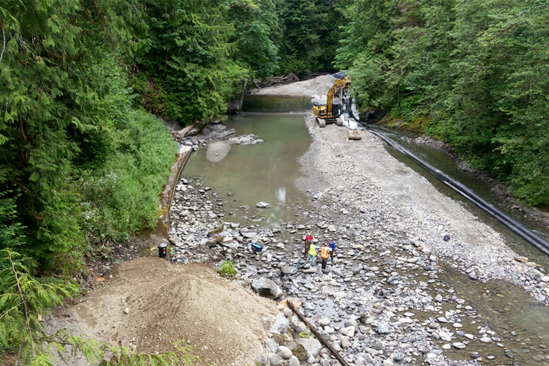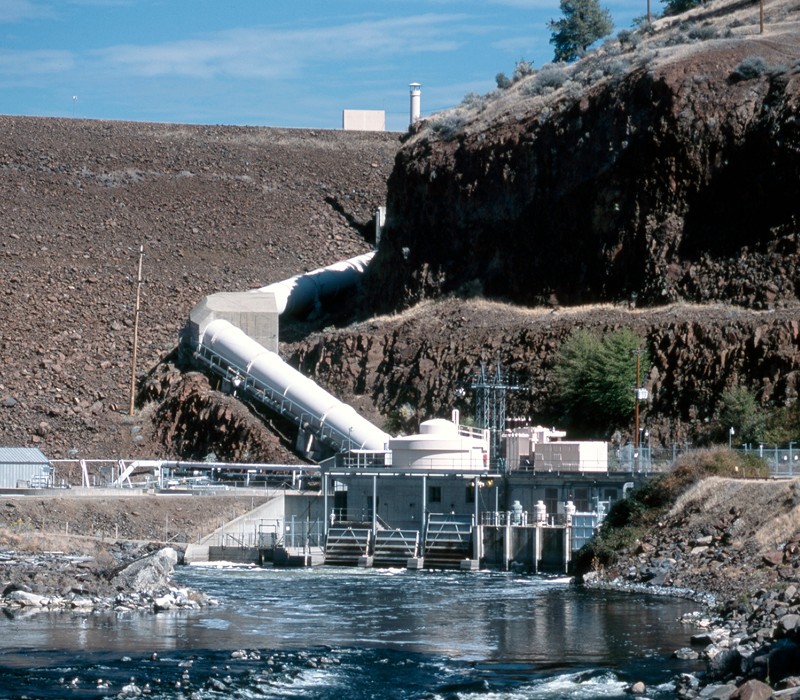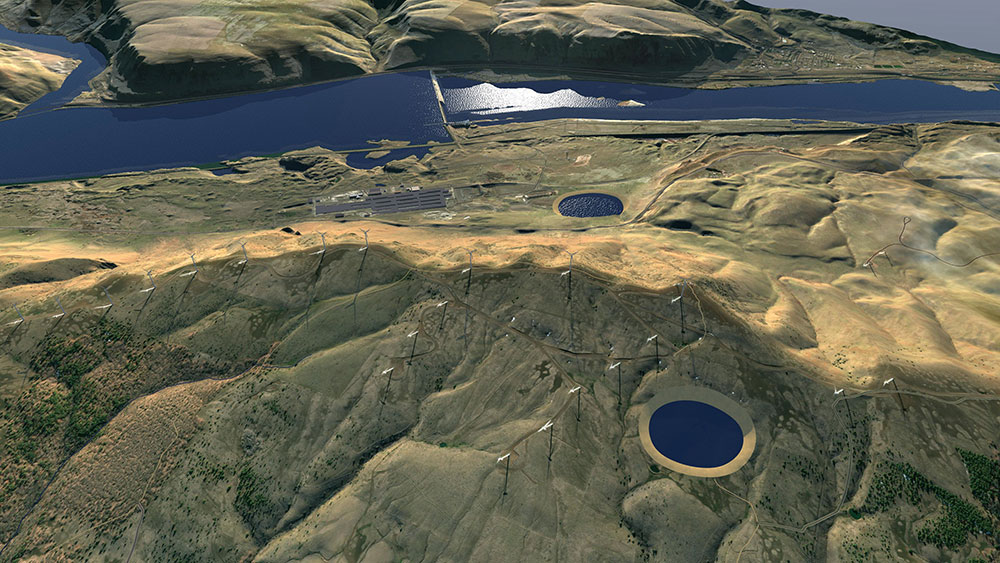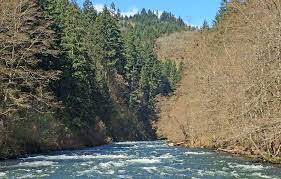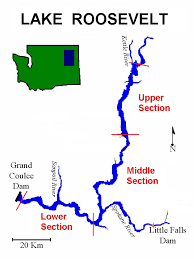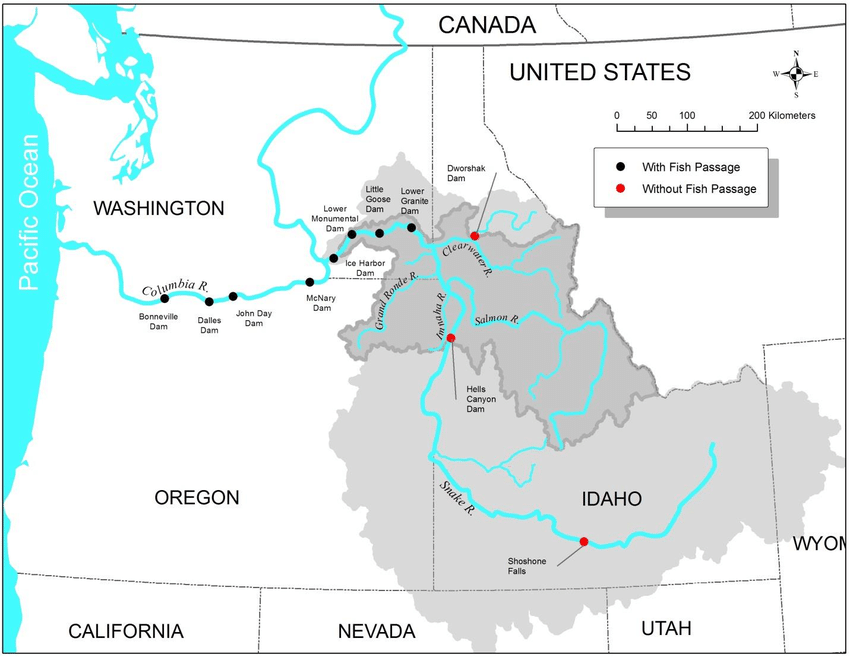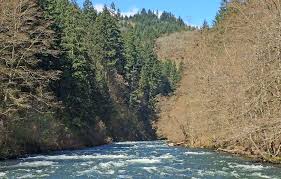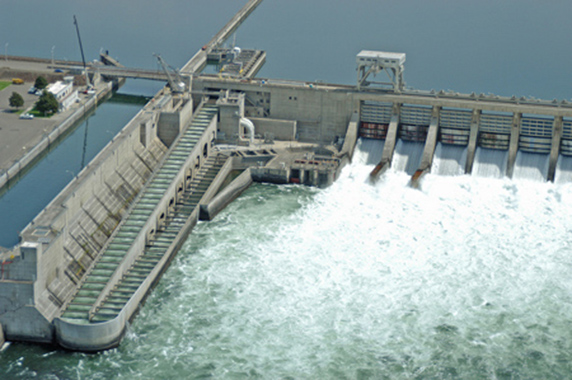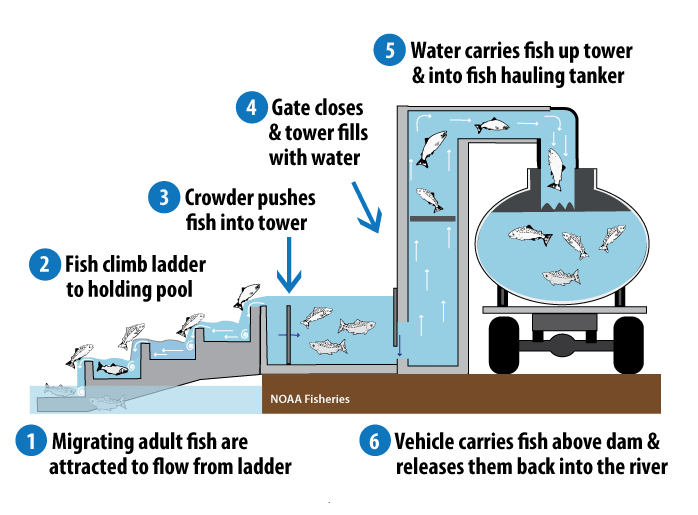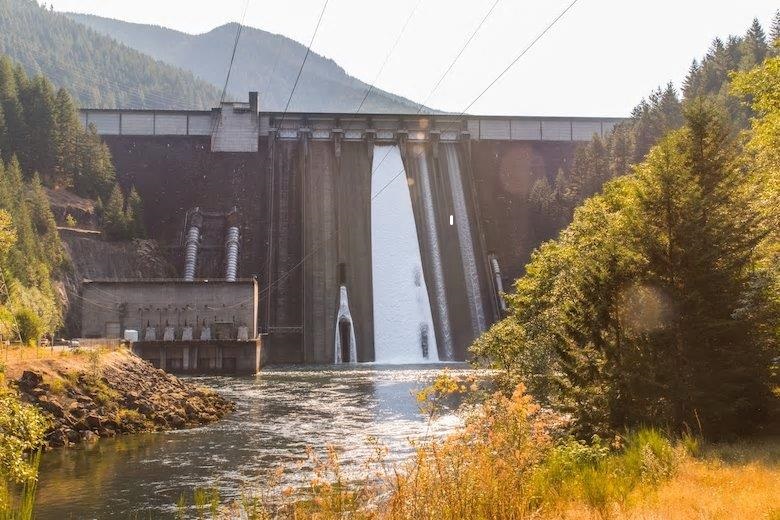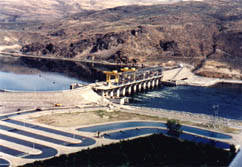Yakama Nation Tells FERC If Pumped Storage Project Approved Near John Day Dam, Mitigation Cost No Less Than $40 Million Required
November 25th, 2024
In a letter to the Federal Energy Regulatory Commission, the Confederated Tribes and Bands of the Yakama Nation suggest that if a pumped storage project near the Columbia River’s John Day Dam moves forward, the Yakama Nation should receive no less than $40 million in mitigation for damage to tribal resources. The money would be used for the preservation and management of sacred and sensitive properties to the Yakama Nation.
Bonneville Power Announces 13 More Transmission Projects For Expected Future Load Growth, Estimated Cost $3 Billion
October 18th, 2024
The Bonneville Power Administration has identified 13 more transmission substation and line projects necessary to reinforce the Pacific Northwest’s electric grid.
Hydropower Industry Sues Biden Administration Over ESA Administrative Rule Changes, Says Excess Of Authority
September 13th, 2024
The hydropower industry has filed a lawsuit in U.S. district court that challenges administrative changes to the federal Endangered Species Act made by Biden Administration agencies this spring that the industry says were made in “excess of the Services’ statutory jurisdiction and authority.”
Guest Column: Canada-U.S. ‘Agreement-In-Principle’ Sets Stage For More Balanced Columbia River Treaty
August 9th, 2024
On July 11, 2024, Canada and the U.S. reached a milestone in the process of modernizing the Columbia River Treaty – an agreement-in-principle (AIP) that sets the stage for an improved treaty that supports people and ecosystems on both sides of the border.
U.S., Canada Reach ‘Agreement-In-Principle’ For Modernized Columbia River Treaty; Assures Pre-Planned Flood Control, Rebalances Power Benefits
July 12th, 2024
The governments of Canada and the United States announced Thursday they have reached an agreement-in-principle to modernize the Columbia River Treaty.
Administration Report Describes Harm Of Dams To Columbia Basin Tribes, White House Sets Up Task Force To Coordinate Basin Salmon Recovery
June 21st, 2024
The Biden Administration this week released a controversial “Tribal Circumstances Analysis” acknowledging the harm 11 Columbia and Snake river dams have inflicted and continue to inflict on Columbia Basin Native American Tribes.
WA Fish/Wildlife Commission Gets The Skinny On Columbia River Shad; ‘We Don’t Even Know If Shad Obstacle To Salmon Recovery Or Not’
June 21st, 2024
More than 1.6 million American shad have been counted at Bonneville Dam this year as of June 17 and a few of the non-native fish have even been counted as high in the river basin as Lower Granite Dam, the uppermost of the four lower Snake River dams, and Priest Rapids Dam in the mid-Columbia. For more than a decade they have outnumbered all other anadromous fish entering the river combined.
Basin Summer Water Supply? Record Low Snowpacks In The North, Above Normal Southern Idaho, Dalles Dam Runoff 77 Percent Of Average
June 21st, 2024
Across most of the Columbia River basin, May brought cooler than normal weather with a mix of precipitation totals. Although providing a respite from this year’s typically lower than normal precipitation and higher than normal temperatures, water supply forecasts continue their downward trend into the summer months, according to the NOAA Northwest River Forecast Center June briefing.
Canada Says Will Ban British Columbia Open Net-Pen Salmon Aquaculture By 2029, Developing Transition Plan For ‘Closed Containment’
June 21st, 2024
Aimed at protecting wild Pacific salmon, Diane Lebouthillier, Minister of Fisheries, Oceans and the Canadian Coast Guard, announced this week that the Canadian Government will ban open net-pen salmon aquaculture in British Columbia coastal waters by June 30, 2029.
Infrastructure Law Funding Restores Habitat On Section Of Oregon’s McKenzie River, Redds Showing Up
June 21st, 2024
NOAA’s Office of Habitat Conservation says the agency and its partners are increasing numbers of threatened Upper Willamette River Chinook salmon by restoring habitat in Oregon’s McKenzie River watershed.
Mountain Watersheds To Ocean Depths: Flathead Lake Biological Station Gets $9.5 Million To Study Ocean Climate Change
June 21st, 2024
A new research project led by the University of Montana’s Flathead Lake Biological Station expands the impact of the station’s renowned expertise from mountain watersheds to ocean depths.
Upper Snake Flow Augmentation For ESA-Listed Juvenile Salmon Migration At Three-Year High
June 7th, 2024
Although water supplies throughout the Columbia River basin are generally in the 75- to 80-percent of normal range, the U.S. Bureau of Reclamation is saying that flow augmentation water out of the upper Snake River this year will amount to 471,000-acre feet of water.
Dropping Water Supply Forecast Signals Drought Conditions Over Much Of Columbia Basin; Grand Coulee Sixth Lowest On Record
May 17th, 2024
Water supply forecasts across the Columbia River basin dropped again this month with very low forecasts in the upper basins of Idaho, Montana and British Columbia, signaling drought conditions in those areas.
Plan Approved For Pulses Out Of Libby Dam To Encourage ESA-Listed Kootenai River Sturgeon To Move Upstream, Spawn
May 17th, 2024
Due to a low May water supply forecast that is 5.129 million-acre feet (April – August), 84 percent of average, the U.S. Fish and Wildlife Service’s biological opinion for Kootenai River sturgeon allows a volume of 0.8 MAF to be used for augmenting spring sturgeon flows. Volume forecasts of 4.8 to 6 MAF puts this year’s operations into a Tier 2 category. A water supply forecast of less than 4.8 MAF would be Tier 1 and would allow no augmentation for sturgeon.
Lower Snake Dam Breaching: NW House Republicans Introduce Package Of Bills To ‘Protect These Critical Pieces Of Infrastructure’
May 17th, 2024
U.S. Rep. Dan Newhouse, R-WA, and other Northwest House Republicans have introduced a package of seven bills that, if signed into law, would make breaching of the four Lower Snake River Dams nearly impossible, develop alternatives to fish and wildlife funding to mitigate costs to Bonneville Power Administration ratepayers, and order the Army Corps of Engineers to acquire acoustic sound technology to deter pinniped salmon predators above and below the Bonneville Dam.
Funding Package For Removing Dams, Culverts Includes $5 Million For Removing NE Washington’s Enloe Dam, Could Open 1,500 Miles Of Salmon Habitat
May 3rd, 2024
Nearly $5 million to move forward on the removal of northeast Washington’s Enloe Dam is included in the U.S. Fish and Wildlife Service announcement that 29 states will receive just over $70 million to support 43 projects that will address outdated or obsolete dams, culverts, levees and other barriers fragmenting the nation’s rivers and streams. Another $8 million will go to projects in Idaho, Montana, Oregon and Washington.
Fish-Blocking Dam On Willamette River Tributary Built In 1858 Being Removed; New Habitat For Salmon, Steelhead
May 3rd, 2024
American Rivers is leading a project team to remove the Kellogg Dam at the mouth of the Kellogg Creek, a tributary of the Lower Willamette River. The work will help threatened Upper Willamette River Chinook and steelhead, Lower Columbia River coho, and Pacific lamprey to access upstream spawning and rearing habitat for juveniles.
Status Report: Though Some SW Washington Steelhead, Salmon Populations Under ESA Show Improved Numbers Since Listing, None Anywhere Near Recovery
April 18th, 2024
The status of southwest Washington salmon and steelhead listed under the federal Endangered Species Act is generally stable, although none of these fish populations are close to meeting recovery goals, says a recent report by the Lower Columbia Fish Recovery Board and the Washington Department of Fish and Wildlife.
Imperiled Steelhead Migrating Up Columbia/Snake River Show Lowest Survival Bonneville Dam To McNary Dam, Miss Survival Targets
April 18th, 2024
Asotin Creek adult summer steelhead survival is at its lowest in the Bonneville Dam pool as the fish migrate upstream to the Snake River tributary, according to a presentation last week that focused on survival of steelhead listed as threatened under the federal Endangered Species Act. Temperature and harvest (catch and release mortalities) are cited as the main reasons for steelhead struggles in the Bonneville Pool.
With A Forecasted Lower Water Year For Lower Columbia River During Juvenile Fish Migration, Additional Flow Aug From Lake Roosevelt Approved
April 18th, 2024
With lower-than-average water flow in the lower Columbia River expected during the spring juvenile salmon and steelhead outmigration, fishery managers at the interagency Technical Management Team last week asked for additional flow augmentation from Lake Roosevelt, the reservoir backed up behind Grand Coulee Dam on the upper river, to aid fish migration.
Sea Lion Trapping Begins; 2023 Pinniped Report Notes Predation Impacts To ESA Steelhead Twice As Severe Compared To Spring Chinook
April 5th, 2024
As states and tribes begin trapping and euthanizing sea lions in the Columbia River near Bonneville Dam this week, the U.S. Army Corps of Engineers released its 2023 report on last year’s pinniped abundance and predation of salmon and steelhead. The report covers the period July 2022 through May 2023 and shows that the 104 sea lions observed during the 2023 reporting period is the highest since 2018, when the number was 134.
Corps Says Report On Greenhouse Gases From Lower Snake Reservoirs Misleading; ‘Relatively Clean Reservoirs In Columbia/Snake River’
April 5th, 2024
The U.S. Army Corps of Engineers says that a report by a new group that recently asserted the four lower Snake River dams are a major source of greenhouse gases, particularly methane gas, largely used emission figures from dams and reservoirs outside of the Columbia and Snake river basins.
During Extended Outage Corps Completes Major Work On Aging McNary, Lower Snake Dams’ Locks To Reduce Risk Of ‘Asset Failure’, Navigation Reopened
April 5th, 2024
The U.S. Army Corps of Engineers, Walla Walla District, reopened navigation locks on the Columbia and Snake rivers on March 29 after an eleven-week outage. This extended outage allowed the district to perform routine maintenance and to replace aged equipment to reduce the risk of asset failure.
Dam-Sheds: Tribes Report Calculates Loss Of Spring/Summer Chinook On Upper Snake River Due To Dams At 1.4 Million Fish
March 22nd, 2024
An estimated 1.4 million spring/summer Chinook salmon were lost after multiple dams were constructed on the upper Snake River, according to a loss assessment recently completed by the Upper Snake River Tribes Foundation.
Work Progresses On Removing Second Of Four Dams On Klamath River; Copco No. 1 Should Be Gone By End Of Summer
March 22nd, 2024
Following a successful test blast, the Klamath River Renewal Corporation will proceed with the removal of the Copco No. 1 Dam, the second dam to be removed as a part of the Klamath dam removal project. The Copco No. 1 Dam, constructed in 1918 for the sole purpose of hydroelectric power generation, has blocked fish passage for over 100 years and is expected to be fully removed by the end of August.
New Report By Group Favoring Breaching says Lower Snake Dams, Reservoirs Major Source Of Greenhouse Gases
March 22nd, 2024
A new report says that the four lower Snake River dams are not as environmentally friendly as dam advocates tout.
Due To New Agreement On Columbia/Snake River Salmon Recovery, Spill For Fish At Federal Dams Starts A Month Earlier
March 7th, 2024
Spilling instead of passing water through turbines at some Columbia/ Snake River dams to aid safe passage for juvenile salmon and steelhead began March 1, one month earlier than in past years, according to the U.S. Army Corps of Engineers.
Biden Administration, States, Tribes Formally Sign Billion-Dollar Columbia Basin Restoration Initiative To Recover Salmon, Steelhead
March 1st, 2024
The Biden administration, along with the governors of Oregon and Washington and leaders of four lower Columbia River tribes – the six sovereigns – formally signed an agreement last week that commits the federal government to as much as $1 billion to build infrastructure for eventual removal of four lower Snake River dams and to recover salmon and steelhead in the Columbia River basin.
Judge Says Northwest Dam Violating ESA By Harming Listed Salmon, Steelhead Needs To Go; Orders Breaching This Summer
February 23rd, 2024
A federal judge in Seattle last week ordered the owners of the Electron diversion dam on the Puyallup River in Washington to breach the dam by this summer because it violates the federal Endangered Species Act.
Initial Phase Of Klamath River Drawdowns Complete, Reservoirs Drained By Late Spring; Dam Removal Follows
February 23rd, 2024
The initial phase of reservoir drawdowns on the Klamath River – the draining of Iron Gate, Copco, and JC Boyle reservoirs – is now complete. Draining the reservoirs is a critical step on the path to deconstructing the remaining three Klamath River dams that are slated for removal later this year.
NOAA Status Review Says Sacramento Winter-Run Chinook Remain Endangered, Serious Threats From Climate Change, Disease
February 23rd, 2024
Though agencies and partners have pulled together to support the recovery of endangered Sacramento winter-run Chinook salmon in the last few years, NOAA Fisheries says the species is still in trouble, facing threats from climate change and other factors.
Basin Water Supply Dropping With Most Watersheds Well Below Normal, Setting Up Low Expectations For The Year
February 16th, 2024
After nearly a month of cold weather and heavy snow across the Columbia River basin, giving fisheries managers hope that there would be plenty of streamflow this summer for salmon and steelhead, February has been drier and warmer than normal, leaving the basin water supply at just 75 percent of average, as measured at The Dalles Dam.
Salmon Recovery MOU A Secret, Radical Deal? Republicans Say Yes, Administration Officials Say Brings Stability, Helps Fish, Contains Costs
February 2nd, 2024
Senior members of the Biden administration and Republican members of Congress painted vastly divergent pictures Tuesday of the agreement that could pause litigation over Snake River dams and salmon for the next decade.
NW GOP House Members Push Legislation To Prohibit Use Of Federal Funds For Implementing Salmon Recovery MOU, Dam Breaching Prep
February 2nd, 2024
U.S. Rep. Dan Newhouse (R-WA) has introduced the Defending Against Manipulative Negotiators Act (DAMN ACT) to prohibit the use of federal funds from being used in breaching or altering the Lower Snake River Dams and to prohibit the implementation of the Columbia Basin Restoration Initiative.
With Higher Spill At Dams, Detecting Survival Of PIT-Tagged Juvenile Salmon, Steelhead Extremely Elusive, Creating Key Data Gap
January 5th, 2024
The precision of estimating salmon and steelhead smolt survival rates through Snake and Columbia river dams during the 2023 spring outmigration is remaining elusive. This is the fifth straight year that high levels of court-ordered spill at Columbia and Snake river dams have impacted detection rates of the tagged juveniles as they migrated downstream through eight dams.
Biden Administration, Two States, Treaty Tribes Reach MOU On Columbia River Basin Salmon Recovery, Litigation Paused For At Least Five Years
December 15th, 2023
The Biden Administration, Columbia River treaty tribes and the states of Oregon and Washington agreed Thursday to work to restore wild salmon populations in the Columbia and Snake river basins and to delay ongoing litigation for five years, with an option for the delay to go as long as 10 years.
Senators Push Biden, Trudeau To Swiftly Complete New Columbia River Treaty Before Canada Flood Control Goes From Certainty To ‘Called-Upon’
December 15th, 2023
U.S. Sen. Maria Cantwell (D-WA), chair of the Senate Committee on Commerce, Science, and Transportation, and U.S. Sen. Jim Risch (R-ID), ranking member of the Senate Foreign Relations Committee, this week sent a letter to President Joe Biden and Canadian Prime Minister Justin Trudeau urging them to finalize an agreement between the U.S. and Canada to modernize and strengthen the treaty.
Burns Paiute Tribe Calls On FERC, Biden Administration To Identify Measures To Return Salmon To Malheur River Basin Upstream Of Hells Canyon Dams
December 13th, 2023
The Burns Paiute Tribe of southeastern Oregon has sent a letter to the Federal Energy Regulatory Commission asking that action be taken to identify measures to return salmon to the Malheur River Basin upstream of Idaho Power’s three-dam Hells Canyon Complex on the Snake River along the Idaho-Oregon border. Idaho Power, in the midst of relicensing those dams, says salmon and steelhead were extirpated before the dams were built and the complex was not central to these losses.
Oregon’s Clackamas River Seeing Impressive Return Of Coho, Wild Spring Chinook, Utility Cites Modernized Fish Passage Systems At Dams
December 13th, 2023
More than 17,000 adult coho salmon and nearly 5,000 wild spring Chinook salmon returned to Portland General Electric’s North Fork Dam on the Clackamas River this fall, according to the utility.
Leaked Court Mediation Document Listing ‘Actions And Commitments’ For Basin Salmon Recovery Draws Objections, Questions
November 30th, 2023
A draft agreement mediated by the Biden Administration outlining investments in Columbia River basin salmon and steelhead recovery that was to remain confidential until mid-December was leaked early this week by Washington and Oregon members of Congress.
Removal Of Klamath River Dam (First Of Four) Restores Flows To Historic Canyon For First Time In 98 Years
November 30th, 2023
Earlier this month, crews put the final touches on the removal of the Copco No. 2 Dam and its diversion infrastructure on the Klamath River.
Chelan PUD Juvenile Salmon Passage Study At Rocky Reach Dam Shows High Survival Numbers; HCPs Call For No Net Impact
November 30th, 2023
More than 93% of young Chinook safely passed Rocky Reach Hydroelectric Project last spring, says Chelan PUD. The results represent the most successful survival study of yearling Chinook in the 21-year history of the Rocky Reach Habitat Conservation Plan.
Some Say Keep Hydro, Others Say Focus On The Fish; Corps Hears Public Views On Whether Willamette Dams Should Keep Producing Power
November 16th, 2023
The public was split at a listening session this week on whether the U.S. Army Corps of Engineers should deauthorize hydroelectric turbines at its projects on the Willamette River, according to a small number of people who testified at the first of the Corps’ three listening sessions this week.
Columbia/Snake Salmon Recovery Lawsuit On Hold Again As Parties Seek Buy-In On ‘Actions And Commitments’ Not Yet Made Public
November 3rd, 2023
Parties to the lawsuit challenging the federal government’s 2020 environmental impact statement and biological opinion for imperiled salmon and steelhead traversing Columbia/Snake River federal dams have developed a package of “actions and commitments” that they will present to regional partners to get buy-in over the next 45 days.
Dams And Disease: Researchers Say Klamath Dam Removals Should Aid Salmon Hit Hard By Deadly Pathogens
November 3rd, 2023
The world’s largest dam removal and restoration project currently underway on the Klamath River in Oregon and California will aid salmon populations that have been devastated by disease and other factors. However, it will not fully alleviate challenges faced by the species, a team of researchers conclude in a just-published paper.
Low Water In Upper Columbia Has River Managers Tweaking Operations To Aid ESA Chum Salmon In Lower River
November 3rd, 2023
Low water in the upper reaches of the Columbia River -- and concerns about releasing water now from Grand Coulee Dam when it might be needed later for refill and to augment river flows -- has caused fisheries and dam operators of the interagency Technical Management Team to change Columbia River chum salmon operations at Bonneville Dam.
Without A New Columbia River Treaty Corps Will Need To Use ‘Real-Time’ Flood Control, Rather Than ‘Assured Storage’ In Canadian Reservoirs
October 13th, 2023
Facing the uncertainty of how it will operate the Columbia River hydroelectric system without the flood risk management controls and water storage space in Canada currently offered by the Columbia River Treaty, the U.S. Army Corps of Engineers says it may need to switch to a “real-time” operation to ensure flood control south of the Canadian border after September 2024 when the Treaty expires.
In Largest Wildlife Damage Claim In Oregon History, ODFW Lawsuit Alleges Water Control District’s Work Killed More Than 500,000 Pacific Lamprey
October 12th, 2023
A claim for $27.6 million in damages was filed in a Douglas County Circuit Court in Oregon claiming that more than half a million juvenile Pacific lamprey died in August during repairs to Winchester Dam, located on Oregon’s North Umpqua River.
Study Looks At What Factors Drive Juvenile Salmon Smolts To Pass Columbia/Snake Dams Through Turbines
October 12th, 2023
High spill volumes to maximum total dissolved oxygen levels in order to reduce passage of juvenile salmon smolts through turbines at federal Columbia and Snake river dams is likely to be most effective at night, during high river flows and when temperatures are colder, according to a recent study. These are times when juveniles are less active and their swimming ability is low.
Court Ordered Drawdown Of Willamette Reservoir To Aid ESA Salmon Leads To Death For Thousands Of Kokanee
October 12th, 2023
A deep reservoir drawdown at Green Peter Dam in the Willamette Valley to improve passage for Chinook salmon and steelhead has killed thousands of kokanee salmon.
Though Far Below Historical Returns, Impressive Numbers This Year For Pacific Lamprey Passing Columbia/Snake River Dams
September 29th, 2023
Pacific lamprey are returning to the Columbia and Snake rivers this year in record numbers, according to the U.S. Army Corps of Engineers and the Nez Perce Tribe.
Biden Administration Memo Orders Federal Agencies To Review All Columbia Basin Salmon Recovery Programs, Identify Needs, Prioritize Actions
September 28th, 2023
In a presidential memorandum released Wednesday, the Biden Administration emphasized salmon and steelhead restoration in the Columbia and Snake river basins and called for an all-hands-on-deck approach to recovery of the fish.
Klamath River Reach Prepped For Post-Dam Removal Flows As Copco No. 2 Dam Being Removed; 3 More Klamath Dams Removed Next Year
September 28th, 2023
The Yurok Tribe and the Klamath River Renewal Corporation (KRRC), in collaboration with the Shasta Indian Nation, started preparing a stretch of the Klamath River to flow freely for the first time in a century.
Biden Administration Says BPA To Provide $200 Million Over 20 Years To Advance Salmon Reintroduction In Upper Columbia River Blocked Areas
September 22nd, 2023
The Biden administration this week announced that the Bonneville Power Administration will provide three Upper Columbia River Tribes $200 million over 20 years for ongoing efforts to reintroduce salmon above Grand Coulee and Chief Joseph dams, which have blocked fish migration since 1942. The Tribes have agreed to a twenty-year pause to existing litigation while these actions are pursued.
Corps Information Sessions To Focus On Basin Power/Flood Control If No Agreement Reached On New Columbia River Treaty With Canada
September 22nd, 2023
The U.S. Army Corps of Engineers will hold four virtual listening-only sessions this month and in October to describe how it will operate the Columbia River system of dams after September 2024 if the Columbia River Treaty negotiations fail to reach an agreement.
Draft 2023 Survival Study Says Substantial Gains In Adult Returns Of Imperiled Salmon, Steelhead Will Require Breaching Lower Snake River Dams
September 15th, 2023
A long-running annual report that evaluates salmon and steelhead survival in the Columbia and Snake rivers again this year concluded that removal of the lower Snake River dams poses less of a risk to recovery than allowing the four dams to remain in place.
As Measures Implemented To Aid ESA Salmonids At Willamette Valley Dams, Corps Studying Whether To End Hydro Production
September 15th, 2023
By legislative requirement, the U.S. Army Corps of Engineers’ Portland District is assessing whether it should continue to produce hydroelectric power at its Willamette Valley project dams.
Nez Perce MOA On Dworshak Water Helps Keep Clearwater, Lower Snake River Cool In September For Migrating, Over-Wintering Salmon, Steelhead
August 23rd, 2023
Throughout the summer, the U.S. Army Corps of Engineers has been using the cool water from deep within the Dworshak Reservoir to maintain a maximum 68-degree Fahrenheit tailwater temperature at Lower Granite Dam on the lower Snake River. Temperatures higher than 68 degrees can be lethal to both adult and juvenile salmonids migrating in the river, including endangered Snake River sockeye salmon arriving in late July and early August.
NOAA Taking Comments On Ongoing Hatchery/Genetic Management Plan That Keeps Snake River Sockeye From Going Extinct
August 23rd, 2023
NOAA Fisheries is asking for comments on its existing plan that allows for take of hatchery and listed wild Snake River sockeye to help in the recovery of the fish, listed as endangered under the federal Endangered Species Act. Comments are due September 7.
PNWA-Funded Study Says Breaching Lower Snake Dams Will Harm Most Vulnerable In 12 Counties; Farm Bankruptcies, Job Losses
August 23rd, 2023
A recent study funded by the Pacific Northwest Waterways Association concludes that breaching the four lower Snake River dams would impact the most vulnerable populations near the dams in Oregon, Washington and Idaho, leading to job losses, impacts to public services and degraded air quality.
Snake River Sockeye Run Winding Down As Fish Head To Stanley Basin; Conversion Rate From Bonneville Dam To Lower Granite Low
August 10th, 2023
This year’s Columbia River sockeye salmon passage is mostly over at Bonneville Dam. Mid-Columbia River sockeye are now moving into tributaries and lakes, while the endangered Snake River sockeye are migrating towards the Stanley Basin in central Idaho, according to Jonathan Ebel of the Idaho Department of Fish and Game.
Citing Sockeye-Killing Warm Water, Groups To File Lawsuit Pushing For Breaching Of Lower Snake Dams
July 27th, 2023
Four conservation groups notified the U.S. Army Corps of Engineers that they intend to sue the agency over the heat pollution created by the four lower Snake River dams. The groups allege the dams overheat the river’s water and those conditions are killing or injuring Snake River sockeye salmon listed as endangered under the federal Endangered Species Act.
Fishery Managers Prepare For Allowing Dworshak’s Cooling Water For Lower Snake To Last Longer; Sockeye Run ‘Not A Pretty Picture’
July 27th, 2023
As the 2023 sockeye salmon run into the Snake River winds down, fishery managers this week proposed allowing temperatures in the Lower Granite Dam tailrace to rise from the biological opinion upper level of 68 degrees Fahrenheit to a maximum 69.5 F in order to increase the chances that cold water will be available from Dworshak Dam through the end of August.
Scientists Develop Tool To Predict Dam Removal Costs; Up To 32,000 U.S. Dams May Be Removed By 2050
July 27th, 2023
Scientists analyzed more than 650 dam removal projects over 55 years in the United States totaling $1.52 billion inflation-adjusted dollars to develop a tool to better estimate the cost of future dam removals.
Droughts In Western States Driving Up Emissions When Utilities Forced To Switch From Hydro To Fossil Fuels, Has Cost Billions Past 20 Years
July 27th, 2023
When drought-stricken rivers and reservoirs run low across the American West, hydropower dries up and utilities fire up hundreds of power plants that burn coal, oil, or natural gas to keep up with demand for electricity. The timing couldn’t be worse, as accompanying heat waves drive up energy use, often to power air conditioners.
Alaska Fastest Warming State; DOE Looking At Whether Pumped Storage Hydropower Will Reduce Emissions By Backing Up Renewables
July 27th, 2023
Alaska is warming faster than any other state. Pumped storage hydropower has the potential to integrate more wind and solar into the energy grid to reduce the carbon dioxide emissions driving climate change in the state.
PNWA Report Says Research On Delayed Mortality Effects Of Lower Snake River Dams On Salmon, Steelhead Inconclusive
July 13th, 2023
Do the effects of juvenile salmon and steelhead passage through the four lower Snake River dams carry over into later life stages, contributing to high mortality in the ocean and far too low smolt-to-adult returns to the Snake River basin? In other words, does the stress of dam passage lead to delayed mortality?
NW House Republicans Hold Field Hearing On Lower Snake Dams Titled ‘The Northwest At Risk’
June 29th, 2023
Republican U.S. Rep. Cliff Bentz, chairman of the House Natural Resources Subcommittee on Water, Wildlife, and Fisheries, held a field hearing Monday in Richland, Washington titled “The Northwest at risk: the environmentalist’s effort to destroy navigation, transportation, and access to reliable power.”
Though Water Supply Dropping, Corps Expects To Meet Flow/Refill Targets At Libby Dam For ESA Sturgeon, Bull Trout
June 29th, 2023
Even with a declining water supply forecast, Lake Koocanusa that backs up behind Libby Dam is still slowly refilling and the U.S. Army Corps of Engineers is near certain it will reach a refill target by September required by a sturgeon-bull trout biological opinion, according to the Corps’ Leon Basdekas.
Columbia Basin Snowpack, Water Supply Take A Hit With May’s Warm, Dry Weather; Not Much Relief Expected For June
June 8th, 2023
Record average temperatures across the Columbia River basin, with little to no rain in the western and northern areas of the basin in May, are leaving the region dry with a smaller snowpack than average and declining water supply at the beginning of June.
Once Again, Federal ‘Listening Session’ On Columbia Basin Salmon Recovery Focuses On Breaching Lower Snake Dams
June 1st, 2023
Representatives of Columbia and Snake river ports and grain shippers, as well as Oregon, Idaho and Washington public utilities, lined up to oppose breaching the four lower Snake River dams last week in the fourth and, perhaps, the last listening session sponsored by the White House Council on Environmental Quality.
Yakama Nation Reintroduction Programs Bringing Once Extinct Coho Salmon Back To Upper Columbia River Tributaries
May 26th, 2023
Once extirpated, coho salmon are making a rebound in two upper Columbia River tributaries. It’s taken nearly 25 years, but the year 2021 saw a record run in the Wenatchee and Methow rivers, a result of reintroduction work in the two basins by the Yakama Nation to bring the salmon back.
Washington DOE Issues Clean Water Certification For Pumped Storage Project At John Day Dam; Many More Approvals Needed
May 25th, 2023
The Washington Department of Ecology has issued a Clean Water Act Section 401 water quality certification for the proposed Goldendale Energy Storage Project.
Court Order Has Corps Drawing Down Two Willamette Reservoirs To Historically Low Levels To Increase Juvenile Salmon Passage
May 18th, 2023
Beginning in June, the Portland District, U.S. Army Corps of Engineers will begin to gradually drawdown Lookout Point and Green Peter reservoirs to historically low levels.
Basin Water Supply Forecasts Rising, 93 Percent Of Normal At Dalles Dam; Low Canada Snowpack Impacting Flows
May 10th, 2023
Water supply prospects in the Columbia/Snake river basin for summer are improving, although not consistently so throughout the basin. While supplies forecasted in May from the Snake River are generally above normal, the upper Columbia River in Canada is providing less water than normal.
Sea Lions Chasing Good Smelt Run Flood Columbia River In High Numbers; Staying For Spring Chinook Feasting
April 27th, 2023
About 200 sea lions were counted last week in the Columbia River between the I-205 Bridge and Bonneville Dam, a 36-mile stretch of river, spurring states and tribes to begin trapping and euthanizing the pinnipeds at Bonneville Dam.
WA Legislature Oks Transportation Bill That Includes Millions For Analyzing Lower Snake River Dam Breaching Impacts On Transport, Energy, Irrigation
April 26th, 2023
The Washington State Legislature this week approved a $14 billion 2023-25 transportation budget that includes $8 million for studying what would be necessary to maintain energy, transportation and irrigation services now provided by the four Lower Snake dams should they be breached to recover Snake River basin salmon and steelhead.
As Expiration Date Nears, U.S., Canada Pushing To Finish Columbia River Treaty Negotiations By June; Uncertainty Over Future Operations A Motivator
April 20th, 2023
Lead U.S. government negotiators vowed to intensify their work to conclude a new Columbia River Treaty with Canada by early summer as they held a public listening session this week. The two countries have been in negotiations for over four years and a new agreement to upgrade or modernize the Treaty must be reached by the end of summer 2024.
Tribes, Corps Studying Impacts Of Sediment Buildup (Deltas) At Mouths Of Columbia River Tribs; Impacts Temps, Predation, Salmon Survival
April 14th, 2023
The amount of sediment carried by Columbia River waters to the Pacific Ocean has declined by about half since Bonneville Dam was built in 1935. Much of the sediment no longer moved by the river has found a home at the mouths of tributaries, creating shallow sediment fans or deltas where warm water and predators impact juvenile salmon and steelhead, some listed under the federal Endangered Species Act.
Cooler Weather Keeping Snowpack Higher Up But Basin Water Supply Expected To Be Below Average This Summer
April 14th, 2023
Despite what seems like an endless winter, with heavy spring rains and snow throughout the Columbia River basin, stream flows and the water supply that will help provide spill at dams and water for salmon and steelhead this summer, continue to be below average in most of the Snake and Columbia river basins.
White House Listening Sessions Hear Arguments On Whether Lower Snake River Dams Should Stay Or Go
April 7th, 2023
Most of the 75 people testifying during their three minutes of allotted time at two White House-sponsored listening sessions advocated removing four lower Snake River dams as the only way to recover salmon and steelhead in the watershed, as well as to provide food for endangered Orca whales in Puget Sound.
Canada, U.S. Meet For 16th Round Of Columbia River Treaty Negotiations; Biden, Trudeau Issue Statement
April 7th, 2023
The 16th round of Canada-U.S. negotiations to modernize the Columbia River Treaty took place on March 22 and 23, in Washington, D.C.
Northwest Republican Legislators Introduce House/Senate Bills To Protect Lower Snake Dams From Breaching
April 7th, 2023
U.S. House Reps. Dan Newhouse (R-WA) and Cathy McMorris Rodgers (R-WA) have introduced the “Northwest Energy Security Act” aimed at prohibiting the breaching of the four Lower Snake river dams to restore salmon and steelhead runs.
Comments On Corps’ Draft EIS for 13 Willamette Valley Dams Question Whether Plan Avoids Jeopardy For ESA-Listed Salmonids
March 23rd, 2023
A massive 2,000 page draft environmental impact statement on how Willamette River Valley dams impact threatened salmon, steelhead and bull trout is flawed and does not address one of its own primary goals, which is meeting obligations under the Endangered Species Act to avoid jeopardizing the existence of listed species, according to several groups and agencies that submitted comments to the U.S. Army Corps of Engineers in late February.
Early Estimate Indicates Upper Snake River Water To Aid Migrating Juvenile Salmon Will Likely Be Short Of NOAA BiOp Flow Requirements
March 23rd, 2023
An early estimate of the volume of water available from the upper Snake River basin this year to provide flow augmentation to aid juvenile salmon and steelhead passage in the lower Snake and lower Columbia rivers will for the second year running fall under the 427,000 acre feet required by NOAA Fisheries, according to Joel Fenolio of the Bureau of Reclamation.
All This Wet Weather Yet Columbia River Basin Water Supply Forecast For Salmon Migrating Season Still Below Normal
March 9th, 2023
For the third straight month of forecasts, water supplies in the Columbia River basin are predicted to be far below normal. That could indicate low streamflows this summer, impacting juvenile and adult salmon and steelhead passage.
Science Panel Gives Thumbs-Up On Fish Response Models Corps Used To Develop Draft Willamette River Basin EIS
March 9th, 2023
A panel of scientists put their stamp of approval on four fish response models the U.S. Army Corps of Engineers used when developing a draft environmental impact statement to assess the effects of operating its Willamette Valley System of 13 dams on threatened Chinook salmon and winter steelhead.
Low Water, Low Flows Force Columbia River Hydro Managers To Drop Bonneville Dam Tailwater Levels Aimed At Protecting ESA-Listed Chum Salmon
March 2nd, 2023
There is so little water available from the upper reaches of the Columbia and Snake rivers that dam operators are dropping the tailwater elevation at Bonneville Dam to 10.2 feet above sea level. That’s a drop of more than 1.5 feet from the minimum tailwater elevation of 11.8 feet required to protect chum salmon nests, or redds, downstream of the dam.
Concerning Drop In White Sturgeon Abundance Prompts Fisheries Managers To Recommend No Retention Fishing Below Bonneville Dam
February 8th, 2023
Oregon and Washington fishery agencies announced they will not propose commercial or recreational white sturgeon fishing this year downstream of Bonneville Dam due to a projected low abundance of legal-sized fish, according to a joint status report released this week by the states.
Draft Report Documents 2022 Sea Lion Fish Predation Numbers At Bonneville Dam; Notes Huge Take Of Struggling White Sturgeon
February 8th, 2023
Sea lions continue taking a big bite out of spring fish runs at Bonneville Dam. More than 8 percent of winter steelhead and more than 3 percent of spring Chinook salmon were picked off by Steller and California sea lions that prey on the fish below the dam, according to a draft report by the U.S. Army Corps of Engineers.
BPA Urged To Distribute More Excess Revenue To Salmon Recovery, 70 Percent Going To Keep Rates Down, 10 Percent Fish
January 13th, 2023
Bonneville Power Administration will divvy up $500 million of excess revenue from its 2022 fiscal year, giving 70 percent to its customers to keep power rates down, 20 percent to pay down debt or for revenue financing and just 10 percent to its fish and wildlife program, mostly to help pay upkeep for hatcheries and fish screens, not directly for recovery of salmon and steelhead.
Despite Recent Rains, Snow, Forecasts For Now Show Below Average Water Supply For Columbia River Basin During Spring, Summer
January 13th, 2023
Despite recent rains and a strong mountain snowpack, Columbia River basin January water supply forecasts are painting a dismal picture for stream flows this spring and summer.
Dredging Of Lower Snake River Channel, Ports, Begins This Month, First Time Since 2015
January 6th, 2023
Dredging will begin in areas of the lower Snake River this month that will solve an issue raised in recent years by federal, state and tribal fisheries managers – how to drop the Lower Granite Dam pool to improve summer conditions for salmon and steelhead that are at risk at the same time the Port of Clarkston needs more depth in the river to unload barges.
Successful Salmon Reintroduction: Sockeye Salmon Repopulating Okanagan Basin In Big Numbers
December 16th, 2022
By anyone’s measure, sockeye salmon runs have skyrocketed since 1997 in the Okanogan River basin when a transboundary workgroup decided to begin efforts to reintroduce the fish into Okanogan Lake in British Columbia, according to tribal biologists speaking at this week’s Northwest Power and Conservation Council meeting.
Scientists Say Tribes Using ‘Cautious, Stepwise Approach’ In Moving Forward With Reintroducing Salmon In Upper Columbia Blocked Areas
December 16th, 2022
A team of scientists generally gave good marks for a long-term, three-phase plan by the Upper Columbia United Tribes to reintroduce salmon and steelhead upstream of two major Columbia River dams that have blocked passage of the fish for 80 years.
NOAA Awards $50 million To Northwest States For Removing Fish Passage Barriers, Small Dams; Includes Assessment Of Taking Out Enloe Dam
December 16th, 2022
NOAA Fisheries has approved $2.3 million for Trout Unlimited to conduct a planning and feasibility assessment for the removal of Enloe Dam on Similkameen River, a tributary of the Columbia River. The dam has blocked salmon and steelhead passage for 100 years and, if completed, its removal would be the largest habitat restoration action in the Columbia River Basin.
Corps Releases Draft EIS For 13 Willamette Basin Dams Intended To Aid ESA-Listed Salmon, Steelhead; Drawdowns, Structural Changes, Less Power
December 2nd, 2022
Operations at thirteen federal dams in the Willamette River basin may soon be altered to aid threatened upper Willamette River spring Chinook, winter steelhead, and bull trout. The U.S. Army Corps of Engineers, which operates the dams, released a draft operations and maintenance programmatic environmental impact statement late last week for public review until January 19, 2023.
BPA 2022 Net Revenues Exceed Target By $792 Million; Proposing Flat Rates For 2023-25, 8 Percent Increase For Salmon Mitigation
November 22nd, 2022
The Bonneville Power Administration plans to capitalize on its strong 2022 fiscal year by holding its rates for electricity and transmission flat during the next rate case cycle, which is FY2023-25. In the same rate case, it is proposing to increase its Columbia River basin fish and wildlife mitigation expenses by 8 percent, the first time the power marketing agency has increased those costs since FY2018-19 when it vowed to keep fish and wildlife spending below the inflation rate.
FERC Approves Removal Of Klamath River Dams By End Of 2024; Once Third Largest Salmon Producing River On West Coast
November 18th, 2022
Completing a process that began with a relicensing application from PacifiCorp in 2004, the Federal Energy Regulatory Commission has unanimously approved the removal of four dams on the Klamath River in Oregon and California.
Columbia River Operations Move To Protecting ESA-Listed Lower River Chum Salmon; From A Million Fish Down To A Few Thousand
November 3rd, 2022
The Bureau of Reclamation began releasing extra water at Grand Coulee Dam over the weekend to ensure that protective flows for spawning chum salmon could begin Tuesday, Nov. 1 at Bonneville Dam, regardless of whether chum were present.
Oregon, Burns Paiute Tribe Sign Agreement To Collaborate On Reintroducing Salmon, Steelhead To Malheur River
October 20th, 2022
The Burns Paiute Tribe, a federally-recognized Indian tribe, signed an agreement this month with the state of Oregon and Oregon Department of Fish and Wildlife to collaborate on reintroducing salmon and steelhead to the Malheur River, a tributary of the Snake River. Construction of the Hells Canyon dams in 1958 blocked all anadromous fish from the Upper Snake River basin and Malheur River system.
NOAA Fisheries Finalizes ‘Rebuilding’ Report To Inform Dialogue On Columbia River Basin Salmon Restoration
October 6th, 2022
NOAA Fisheries has finalized a report that identifies actions that the agency says have the greatest likelihood of making progress toward rebuilding populations of salmon and steelhead in the Columbia River basin to “healthy and harvestable levels.” The agency had released a draft in July for limited comments.
Testing Underway Of Pilot Project At California’s Shasta Reservoir That Would Help Salmon Survive Climate Change
October 6th, 2022
State and federal biologists and engineers, in partnership with the Winnemem Wintu Tribe, have begun testing an experimental system in northern California’s Shasta Reservoir that could help collect young salmon from the McCloud River in future years.
A Dam With No Power Production, No Fish Passage: Washington Legislature Could Take Steps To Study Removal Of Enloe Dam
September 29th, 2022
If it funds a quarter-million-dollar study, the Washington state legislature could kick-start a long-awaited dam removal project that would free up some 348 miles of habitat for steelhead and salmon in northeastern Washington and British Columbia.
Report Details How Climate Change Will Impact Federal Hydropower; For BPA, More Replacement Power In Summer Months
September 29th, 2022
The U.S. Department of Energy’s Oak Ridge National Laboratory has provided hydropower operators with new data to better prepare for extreme weather events in the Pacific Northwest and shifts in seasonal energy demands caused by climate change.
Oregon Approves Permit For 290-Mile New Transmission Line From Columbia River To Southwest Idaho; Existing Connections Too Full During Peak Power
September 29th, 2022
Oregon’s Energy Facility Siting Council on Tuesday approved a permit to build the Boardman to Hemingway transmission line across five eastern Oregon counties. The line will move power between the Pacific Northwest and Intermountain West, helping meet customer needs during peak seasons. Construction is expected to start in 2023.
Pacific Northwest Groups Urge Action On Modernizing Columbia River Treaty, Concerned About Uncertainties Of ‘Called-Upon’ Operations
September 22nd, 2022
Nearly three-dozen Pacific Northwest organizations have sent a letter to the State Department and other federal agencies urging the Biden Administration to better inform the region on efforts to overhaul the 1964 U.S.-Canada Columbia River Treaty, add “ecosystem function” as a treaty purpose, and include Columbia River basin Tribes in treaty governance. The letter also expresses concerns about potential “called-upon” river operations if the treaty is not modernized by 2024.
PNNL Report Details How Hydropower Performs During Severe U.S. West Droughts, Maintains 80 Percent Of Average Generation
September 20th, 2022
The megadrought in the Southwestern United States is the driest—and longest—in the last 1,200 years, depleting water reservoir levels to critically low levels over the past 22 years. This persistent drought has policymakers and system planners concerned about the reliability of the electric grid under worsening drought conditions and climbing temperatures.
Work Continues At Washington’s Cle Elum Dam To Improve Juvenile Sockeye Passage As Part Of Reintroduction To Reservoir, River
September 15th, 2022
Juvenile sockeye salmon downstream passage at Cle Elum Dam in central Washington is expected to improve after the “helix” passage system -- an important component for reintroducing sockeye into the reservoir and river upstream of the dam -- is installed and tested.
Bonneville Power Administration Having Good Financial Year; More Money Coming For Fish/Wildlife, Fish Accords To Be Extended
September 15th, 2022
An 8.7 percent bump in the Bonneville Power Administration’s Fish and Wildlife budget in fiscal year 2024-25 is the largest increase for fish and wildlife since 2010. The increase will give the power marketing agency, which pays for the Northwest Power and Conservation Council’s Columbia River Basin Fish and Wildlife Program, more flexibility to “get things done.”
Idaho Power, Snake River Waterkeeper Settle Over Brownlee Dam Operating Without Clean Water Permit; Mitigation Funds Go To Nez Perce Tribe
September 8th, 2022
An Idaho U.S. District Judge Wednesday approved a consent decree between Snake River Waterkeeper and Idaho Power Company that will see more than $500,000 go to the Nez Perce Tribe for projects enhancing water quality in the Snake River basin.
Inslee-Murray Lower Snake Dam Report: Reaction Ranges From ‘Presumptive Path To Breaching’ To Dam Removal Not Going To Happen
August 31st, 2022
Did last week’s release of the final “Lower Snake River Dams: Benefit Replacement Report” by Washington Gov. Jay Inslee and U.S. Sen. Patty Murray move the needle in seeking regional consensus on a comprehensive plan to improve the condition of Columbia/Snake River salmon and steelhead listed under the Endangered Species Act? If public reaction is any indication, the answer is no.
Inslee, Murray Release ‘Lower Snake Dams Benefits Replacement Report’; ‘It’s Clear That Breach Is Not An Option Right Now’
August 26th, 2022
Breaching the four lower Snake River dams to improve salmon runs is only feasible after state and federal officials have replaced or mitigated the benefits of the dams, said Washington Gov. Jay Inslee and U.S. Sen. Patty Murray (D-WA) in releasing Thursday the final “Lower Snake River Dams: Benefit Replacement Report.”
Council Hears Three Presentations On Groups’ Commissioned Studies Analyzing Power Impacts Of Lower Snake Dam Breaching
August 24th, 2022
If not for the flexibility provided by the federal Columbia/Snake river hydroelectric system, including the four lower Snake River dams, it is not clear how the Northwest could have balanced energy supply and demand during an extreme low water event in February 2019, according to a recent study commissioned by the Public Power Council, an opponent of breaching the dams.
NOAA Taking Comments From Fisheries Managers On Salmon Rebuilding Report Key To Administration’s Collaborative Recovery Efforts
August 11th, 2022
Urgent and comprehensive large-scale actions in the Columbia River basin will be needed to meet mid-range salmon and steelhead abundance goals set by the Columbia Basin Partnership Task Force in 2020, according to a draft report by NOAA Fisheries released nearly a month ago by the White House. The agency is now taking comments until the end of the month on a report that could play a key role in the Biden Administration’s efforts to collaboratively move forward on Columbia/Snake river salmon recovery.
Judge Agrees To Extend Stay On Columbia/Snake Salmon Recovery Case For Another Year As Parties Seek ‘Comprehensive Solutions’
August 4th, 2022
U.S. District Court Judge Michael H. Simon this morning agreed to a request by the Biden Administration and plaintiffs to extend for another year the stay in the litigation challenging the federal government’s environmental impact statement and biological opinion for Columbia/Snake river salmon and steelhead. The parties want more time to identify “comprehensive” solutions to basin salmon recovery.
Salmon, Steelhead Reintroduction In Blocked Areas Above Deschutes River Dams See Best Spring Chinook Return Yet
August 4th, 2022
Spring Chinook salmon are still arriving at the Pelton-Round Butte Complex of dams on Central Oregon’s Deschutes River where they are trapped and hauled upstream to Lake Billy Chinook. And so far partners Portland General Electric and the Confederated Tribes of the Warm Springs are seeing the best annual return of the fish since they began their efforts to reintroduce Chinook, sockeye and summer steelhead above the dams 13 years ago.
Snake River Sockeye Now Showing Up In Stanley Basin, 66 Percent That Passed Bonneville Dam Made It To Lower Granite Dam
August 4th, 2022
The first two sockeye salmon to arrive in the Sawtooth Basin near Stanley, Idaho, were trapped July 28 by Idaho Department of Fish and Game biologists and some 2,066 of the Snake River run of sockeye have passed Lower Granite Dam, 30 miles downstream of Lewiston, ID.
Beat The Heat: Nearly 2,000 Snake River Sockeye Slip Past Reservoirs Into Salmon River Before High Temps Hit
July 28th, 2022
The majority of the run of Snake River sockeye salmon, a small segment of the largest Columbia River sockeye run since Bonneville Dam was built in 1938 (most return to the upper Columbia), have passed eight Columbia and Snake river dams and are now moving up the Salmon River.
Corps Seeking Comment On Proposal To Dredge Navigation Channel In Lower Granite Dam Reservoir, Ports’ Berthing Areas
July 28th, 2022
The U.S. Army Corps of Engineers is proposing to restore the lower Snake River federal navigation channel above Lower Granite Dam by dredging, including removing accumulated sediment near the confluence of the lower Snake and Clearwater Rivers near Clarkston, Washington, and Lewiston, Idaho.
Extinction Risk For World’s Only Winter-Run Chinook: Eggs Moved To Cold Water Above Shasta Reservoir, Could Inform Reintroduction Above Dams
July 20th, 2022
The Winnemem Wintu Tribe, the California Department of Fish and Wildlife, the National Oceanic and Atmospheric Administration Fisheries and the U.S. Fish and Wildlife Service last week celebrated the return of endangered winter-run Chinook salmon eggs to the McCloud River upstream of Shasta Reservoir for the first time since the construction of the Shasta Dam in the 1940s.
White House Issues Reports On Basin Salmon Recovery, Costs; ‘Business As Usual’ Not Restoring ESA-Listed Salmon, Steelhead
July 15th, 2022
Saying that “business as usual” is not restoring threatened and endangered salmon and steelhead in the Columbia/Snake river basins, the White House released two reports this week, adding more information to the debate on the costs and efficacy of breaching the four lower Snake River dams as a path towards recovery.
A Salmon From Upper Columbia Blocked Area Returns; Tribes Tracking Released Juveniles As Part Of Reintroduction Effort
July 14th, 2022
A female spring chinook salmon released as a smolt by the Coeur d’Alene Tribe in 2020 in upper Hangman Creek near Tensed, Idaho has returned to the Upper Columbia River where she will be transported around dams lacking fish passage and returned to her natal stream. She will be the first adult Chinook salmon to return to the Coeur d’Alene Tribe’s aboriginal territory in over 100 years.
OSU, Yurok Tribe Launch Partnership To Study What Klamath River Watershed Will Look Like After Dam Removal
July 7th, 2022
Oregon State University researchers will embark this month on a 3½-year partnership with the Yurok Tribe to study what the connections between river quality, water use and the aquatic food web will look like after four Klamath River dams are dismantled.
Federal Mediators For Columbia Basin Salmon Recovery Hope For Extension Of Litigation Pause; Would Give More Time For Comprehensive Plan
June 30th, 2022
A federal mediator told the Columbia Basin Collaborative Wednesday that his group is hoping for “an extension on the stay” of litigation over Columbia/Snake river basin salmon recovery so mediation among plaintiffs and defendants can continue to move forward.
Basin-Wide Flooding Emergency: Entire Federal Hydro System Operating To Keep Columbia River Levels Down At Vancouver
June 16th, 2022
Days of heavy rain in valleys and slushy snow in some mountain areas of the Northwest has the U.S. Army Corps of Engineers declaring a flooding emergency for the Columbia River basin this week.
Inslee, Murray Release ‘Lower Snake River Dams: Benefit Replacement Draft Report’
June 9th, 2022
Washington state’s Gov. Jay Inslee and U.S. Sen. Patty Murray have released the draft “Lower Snake River Dams: Benefit Replacement Draft Report” that examines whether there are reasonable means for replacing the dams’ benefits so that breaching could be part of a comprehensive salmon recovery strategy for the Pacific Northwest. The report says ‘benefit replacement’ could cost as much $30 billion.
House Bill Includes ‘Columbia River Restoration’ Section; Would Include Assessment Of Lower Snake River Dams’ Impacts On Economy, Fish
June 9th, 2022
The Water Resources Development Act of 2022 approved by the House of Representatives Wednesday includes a lengthy section called “Columbia River Basin Restoration” and would require an inter-agency assessment of the four lower Snake River dams’ impact on fish and wildlife.
California Drought Means Less Hydro; Will Increase Electricity Prices Across The West, Increase CO2 Emissions
June 3rd, 2022
The extended drought in California could cut the state’s summer electricity generation from hydropower nearly in half compared with normal precipitation conditions, and will lead to higher electricity prices across the West, according to an analysis by the U.S. Energy Information Administration. EIA’s analysis indicates that hydropower would produce 8% of California’s electricity generation in a drought year, compared with 15% under normal precipitation conditions.
Water Tradeoffs During Drought: Idaho Wants Upper Snake Storage Water Slated For Downstream Salmon Held Back For Native Resident Fish
May 19th, 2022
Water will be tight this year in the upper Snake River basin, making for some tough tradeoff choices between water for prized native resident fish versus flow augmentation for downstream endangered salmon and steelhead headed to the ocean.
River Managers Approve High Flows Out Of Libby Dam (Montana) To Prompt Endangered Kootenai River White Sturgeon Spawning
May 12th, 2022
It’s that time of year again to see if changes at Montana’s Libby Dam operations will prompt endangered Kootenai River white sturgeon downstream in Idaho to move into braided areas suitable for spawning.
Rapidly Changing Energy Landscape: BPA Joins Regional Power Sales Market, Balances Supply/Demand Every Five Minutes
May 4th, 2022
The Bonneville Power Administration has joined the Western Energy Imbalance Market, which the agency says gives it another tool for marketing surplus power from the Federal Columbia River Power System.
Oregon Details How It Intends To Manage Fishing On Columbia River Tributaries As Wild Steelhead Numbers Remain Historically Low
April 21st, 2022
Wild Columbia River summer steelhead have been declining since 2009, and Bonneville Dam counts in 2021 showed the lowest returns since 1997.
Even With Recent Snow, Rain Willamette Basin Reservoirs Will See Tough Water Year; Less Available For Fish In Summer, Fall
April 19th, 2022
Despite substantial help from recent rain and snow events, Army Corps of Engineers water managers are bracing for another challenging year as they work to refill 13 Willamette Valley reservoirs for the upcoming conservation season. Corps officials report the system is 53% full, which is 33% below the rule curve, as of April 21.
Without New Spillway Detectors Hard To Know If Higher Spill At Columbia/Snake Dams Is Benefitting Salmon
April 15th, 2022
Entering another spring season of Columbia River basin salmon and steelhead juveniles being moved downriver with much higher spill levels at federal hydropower dams than in the past, the monitoring of results of such operations has become difficult. Higher spill is pushing tagged smolts away from detection facilities, which creates data gaps when measuring the effectiveness of more spill for fish.
Columbia River Treaty Tribes (CRITFC) Present 2022 Energy Vision To Council Aimed At Protecting Salmon
April 14th, 2022
The Columbia River Inter-Tribal Fish Commission this week presented its “2022 Energy Vision For The Columbia River Basin” to the Northwest Power and Conservation Council, with recommendations to get “energy production off the backs of salmon.”
Solar, Wind Energy Production Sees Sharp Rise In 2021, Hydro Drops 12 Percent Due To Drought In West
April 13th, 2022
The national economy is reenergizing, quite literally. In 2021, Americans used 5% more energy than in 2020, according to the most recent energy flow charts released by Lawrence Livermore National Laboratory.
Upper Columbia Tribes Receive Over $3 Million From Washington State For Salmon Reintroduction Above Grand Coulee Dam
April 7th, 2022
The Upper Columbia United Tribes secured over $3 million in funding in the Washington State supplemental budget for salmon reintroduction in the upper Columbia.
Yakama Nation Encouraged By EPA, Corps Commitments On Cleaning Up Columbia River Superfund Site
April 7th, 2022
Swift action and an inclusive cleanup process were the two main takeaways from a meeting between the Yakama Nation and officials from the U.S. Environmental Protection Agency and the United States Army Corps of Engineers about the Bradford Island Superfund Site at the Columbia River’s Bonneville Dam.
Letter To Editor: Time For Plaintiffs In Salmon BiOp Legal Challenge To Ask For Dam Breaching
April 7th, 2022
Most everyone watching the dam/salmon drama will be surprised to learn that the litigants in the decades-long case, have never asked for dam breaching as a solution to the problem. Never.
White House Plans On Being Involved With Columbia Basin Salmon Recovery As BiOp Litigation Talks Continue; Collaborative Approves A Charter
March 31st, 2022
The White House this week made clear it plans to be involved in Columbia River salmon recovery, saying it has engaged mediators to facilitate “public policy dialogue” with governments and stakeholders.
Utilities Agree To Provide Fish Passage At All Lewis River Dams; Aimed At Four ESA-Listed Salmonid Species
March 31st, 2022
PacifiCorp and the Cowlitz County Public Utility District has committed to completing fish passage facilities at its dams on Washington’s North Fork Lewis River by 2028, a move that PacifiCorp says will support the recovery of coho and chinook salmon, steelhead and bull trout in the river, all listed as threatened under the federal Endangered Species Act.
More Spill For Salmon Bumped BPA Fish/Wildlife Costs Up 18 Percent In 2021; For ESA Fish, Most Spent On Mid-Columbia Steelhead At $36 Million
March 31st, 2022
Total Bonneville Power Administration fish and wildlife costs last year (fiscal year 2021) rose 18 percent over FY2020 from $611.5 million to $744.5 million, making up about 25 percent of the power marketing agency’s wholesale power rate, according to a report to Northwest governors released for public comment by the Northwest Power and Conservation Council.
Columbia Basin Bulletin Q&A With Barry Thom, Director Of The West Coast Region Of NOAA Fisheries
March 10th, 2022
Barry Thom leads the West Coast Region of NOAA Fisheries and is responsible for implementing NOAA Fisheries mandates under the Magnuson-Stevens Fishery Conservation and Management Act, Endangered Species Act, and Marine Mammal Protection Act along the U.S. West Coast from Washington to California.
Electric Truck Hydropower? No Dams, No Reservoirs, No Disturbance To Fish Passage
March 10th, 2022
Mountain regions have a large potential for hydropower that cannot be harnessed effectively by conventional technologies, says the International Institute for Applied Systems Analysis. IIASA researcher Julian Hunt and an international team of researchers developed an innovative hydropower technology based on electric trucks that could provide a flexible and clean solution for electricity generation in mountainous regions.
‘Biggest Salmon Restoration Project In History’: Draft EIS Says Removing Klamath Dams Will Provide ‘Significant Benefits’ For Fish
March 3rd, 2022
The Federal Energy Regulatory Commission has issued a draft environmental impact statement that says removing four Klamath River dams would provide significant benefits for spring and summer chinook salmon, coho salmon and suckers by freeing up 255 miles of river habitat upstream of the dams. Coho salmon are listed as threatened under the federal Endangered Species Act.
Corps Releases First Court-Ordered Willamette Basin Status Report On Improving Conditions For Salmon, Steelhead At Numerous Dams
March 3rd, 2022
Through the end of 2021, the U.S. Army Corps of Engineers implemented a number of measures required by a federal court to improve conditions for protected salmon, steelhead and bull trout at its Willamette River valley dams. In addition, the Corps continued implementing other measures already in process prior to a Sept. 1, 2021 court injunction. Even more measures that will improve passage or water quality for fish will be put into motion this year, according to the federal agency’s recently released report.
NOAA Predicts Cooler, Wetter March That Might Help Turn Around Dropping Water Supply Forecast; Report Says June-August 2021 Warmest On Record For PNW
March 3rd, 2022
The Northwest states began the year 2022 with a water deficit inherited from a dry and warm 2021, a drier than normal January and a record-dry February. But the good news is that National Oceanic and Atmospheric Administration climatologists are predicting a cooler and wetter than normal March.
Corps Details To Council Numerous Measures Taken At Willamette Projects To Avoid Jeopardizing Listed Salmon, Steelhead
February 24th, 2022
In the past fourteen years, the U.S. Army Corps of Engineers has completed a number of measures -- over 90 “Reasonable and Prudent Alternatives” -- contained in a NOAA Fisheries’ 2008 biological opinion detailing the impacts of the Corps’ Willamette Valley dams on salmon and steelhead listed under the Endangered Species Act.
NW Power/Conservation Council Adopts Regional Power Plan; Approves Staff Moving Forward On Dam Breaching Analysis
February 18th, 2022
The Northwest Power and Conservation Council approved Wednesday morning its 20-year outlook for the Northwest power supply, minus an analysis of the impacts of breaching the lower Snake River dams. An hour later the Council, however, voted unanimously for its staff to develop a work plan on how it will analyze the power implications of breaching, a move many commenters on the draft power plan had requested.
Dry Months Has Basin Water Supply Mostly Dropping; With La Nina Hanging On March Could Be Wetter
February 18th, 2022
In its monthly climate briefing, National Oceanic and Atmospheric Administration climatologists this week reported a warmer than normal January in Oregon and Montana and near normal January temperatures in Washington and Idaho. February has been dry, but in March the region may see lower than normal temperatures.
Corps Says Court’s Salmon/Steelhead Protective Order Will Impact Willamette Valley Reservoir Refills, Recreation
February 10th, 2022
The U.S. Army Corps of Engineers says a recent federal court injunction that requires the agency to take steps to protect threatened salmon and steelhead in Oregon’s Willamette River basin will cause some Corps dams and reservoirs to look different and will heighten the risk of not refilling reservoirs later in the spring.
Annual Salmon Survival Report Says Breaching, More Spill Necessary To Improve Snake River Salmon/Steelhead Smolt-To-Adult Returns
February 3rd, 2022
An annual salmon survival study by the Fish Passage Center says increasing smolt-to-adult returns to recovery levels for Snake River salmon and steelhead will require breaching the Lower Snake River dams and increasing spill at lower Columbia River dams.
Warms Springs Tribes’ Ownership Share Of Deschutes Dam Complex Rises To 49.99 Percent As Salmon Reintroduction Continues
February 3rd, 2022
The Confederated Tribes of the Warm Springs celebrated the New Year by exercising its option to purchase a larger share of the Pelton Round Butte hydroelectric project on the Deschutes River in central Oregon.
California Salmon/Climate Study: Diversity Mostly Lost, Dams Confine Salmon To Hottest Parts Of Watersheds
February 3rd, 2022
California’s native salmon have been harmed by more than a century of mining, dam building, floodplain reclamation, fishing pressure, hatchery practices, and introduced predators. These stressors have undermined the resilience of California’s native salmon to the accelerating effects of climate change, new research shows.
Corps Evaluating EIS Alternatives For Potential Survival Improvements At Willamette Valley Dams For ESA-Listed Salmon, Steelhead
January 27th, 2022
In its development of an environmental impact statement for 13 Willamette Valley Project dams, the U.S. Army Corps of Engineers is considering and evaluating a range of four alternatives, plus a no action alternative, that will likely change the way it operates the dams to protect salmon, steelhead and bull trout listed under the Endangered Species Act.
Basin Fishery Managers Seek Clarity On BPA’s Use Of Zero Nighttime Flow For Lower Snake River To Match Power Needs
January 27th, 2022
In a “System Operational Request,” Columbia River basin fishery managers this week asked the Bonneville Power Administration for more clarity on its implementation of zero generation/nighttime flow at lower Snake River dams. The answer drew concerns about how future SORs might be received.
FEEDBACK: Protecting Snake River Basin Wild Spring/Summer Chinook, Steelhead From Extinction Requires Lower Snake Dam Removal
January 13th, 2022
Feedback comments in the January 6, CBB from Mr. Fred Mensik regarding “Removing Lower Snake dams will not return salmon, steelhead to historic spawning habitat,” are inaccurate and misleading.
NW RiverPartners Releases Poll Showing 60 Percent Support For Keeping Lower Snake Dams In Place
December 22nd, 2021
One week after Washington Gov. Jay Inslee released a package of salmon recovery strategies that includes proposed funding for a study of the impacts of removing the four Lower Snake dams, Northwest RiverPartners released the results of commissioned poll showing nearly 60 percent of respondents opposed dam breaching.
Federal Agencies Announce Completion Of Major Overhaul Of Grand Coulee Dam Power Units, Work Began In 2008
December 22nd, 2021
The Bureau of Reclamation and the Bonneville Power Administration announced this week the completion of the major overhaul of three hydroelectric power units at Grand Coulee Dam, the largest power generating complex in the United States.
Court Approves Interim Actions For Aiding ESA-Listed Willamette Valley Salmon, Steelhead; Ninth Circuit Appeal Possible
December 16th, 2021
A federal court approved this month details on the “how” of fish passage, drawdowns and spill designed to aid salmon and steelhead passage at Willamette River dams, even as the U.S. Army Corps of Engineers is preparing a new environmental impact statement for the agency’s 13 Willamette Valley Project dams.
Washington Governor Announces $187 Million Salmon Recovery Package, Includes Funds For ‘Snake River Mitigation Study’
December 16th, 2021
Washington Gov. Jay Inslee this week said he is seeking $187 million during the 2022 legislative session for salmon recovery strategies, including funds for studying the impacts of breaching the four Lower Snake River dams.
EDITOR’S NOTEBOOK: As We End The Year, Big Decisions For Columbia River Basin Salmon Recovery Dangle On Hold
December 9th, 2021
Where are we today, closing days of the year, with management of Columbia River Basin salmon recovery?
Corps Sued For Operating Lower Columbia River Dams Without Pollution Permits; EPA Says Permit Delay Stems From Oregon Objection
December 9th, 2021
A Northwest conservation group is suing the U.S. Army Corps of Engineers for operating the agency’s lower Columbia River dams without U.S. Environmental Protection Agency pollutant permits.
Drought: Flow Augmentation From Idaho For Salmon Tight This Year, Uncertainty Looms For 2022
December 9th, 2021
Some 427,000 acre feet of water was available this year from the upper Snake River to augment flows for juvenile and adult salmon and steelhead migrating in the lower river.
Managers Kept Lower Granite Reservoir Cool During Hot Water Year, But ESA-Listed Sockeye Slammed Farther Downstream; ‘Smoking Gun’
December 2nd, 2021
In an exceptionally low flow and warm water year, Idaho’s Dworshak Dam water in 2021 was creatively preserved and used to help keep water cool downstream to aid salmon and steelhead migrating in the river at Lower Granite Dam on the lower Snake River.
U.S., Canada To Hold Eleventh Round Of Columbia River Treaty Negotiations Next Week
December 2nd, 2021
The United States and Canada will hold the eleventh round of negotiations to modernize the Columbia River Treaty on December 9. The negotiators will meet virtually to advance talks about key issues such as flood risk management, hydroelectric power generation and ecosystems.
BPA 2021 Finances Show Net Revenues Far Above Target, Infrastructure Bill Gives Agency $10 Billion Increase In Borrowing Authority
December 2nd, 2021
The Bonneville Power Administration has closed the books on fiscal year 2021 with an annual report showing the agency exceeded its target net revenue number by $360 million.
Phase 2 Reintroduction Of Anadromous Fish Above Grand Coulee Dam: Tribes Seek Support For Funding ($176 Million Over 21 Years), Implementation
November 18th, 2021
Upper Columbia River tribes laid out plans this week that will cost the region about $176 million to reintroduce salmon and steelhead upstream of federal dams. The dams have been blocking access to the fish since Grand Coulee Dam was built in 1942.
Studies Showing High Passage Of Juvenile Salmon Through Upper Columbia PUD Dams
November 18th, 2021
More than 94 percent of migrating juvenile yearling chinook salmon pass upper-Columbia River publicly-owned dams safely, according to two studies by two of the dams’ owners.
New Infrastructure Bill Is Loaded With Funds Impacting NW Salmon Recovery, Water, Irrigation, Grid Upgrades
November 18th, 2021
The Infrastructure and Investment and Jobs Act signed by President Biden this week includes millions of dollars related to Northwest salmon recovery, including culvert removal, fish barrier removal, upgrading water, irrigation and grid infrastructure, and projects potentially impacting Columbia River Treaty negotiations with Canada.
Washington Board Issues Order Denying Corps’ Challenge To Water Quality Rules (Temperature, Pollutants) At Columbia/Snake Dams
November 11th, 2021
Following up on its intentions announced in June, the Washington State Pollution Control Hearings Board last week rejected the U.S. Army Corps of Engineers challenge to state water quality rules for temperature and other pollutants for Columbia/Snake River dams and reservoirs. The rules are aimed at protecting salmon and steelhead.
Wild Coho Run Hits Record Numbers On Clackamas River; Passage Over Willamette Falls Far Above Average
November 11th, 2021
Coho salmon are returning to Oregon’s Clackamas River in numbers not seen since 1958 when Portland General Electric’s North Fork Dam was built on the river. With 9,370 early- and late-run fish this year, coho return numbers are far outpacing last year’s run, which tallied just 3,782 of the fish.
NOAA: Highest Spill Levels Ever For Juvenile Salmonids Makes Smolt Detection Difficult In 2021, Imprecise Reach Survival Estimates
November 4th, 2021
Environmental conditions and management actions in 2021 resulted in a year with low flow, warmer than average water temperatures and an extremely high percentage of spill for fish during the spring migration season, according to a recent NOAA Fisheries preliminary memorandum on juvenile salmon and steelhead survival through Columbia and Snake river dams.
What’s In The ‘Reconciliation Bill’ (At Least For Now) For Northwest Salmon? Includes $420 Million For Hatcheries, $1 Billion Habitat Restoration
November 4th, 2021
U.S. Sen. Maria Cantwell (D-WA) last week offered information about “the historic investment to support salmon restoration and resiliency included in the draft reconciliation bill text” released by the House of Representatives.
Future Bright For American Shad, Most Abundant Anadromous Fish In Columbia River Basin; Risks To Native Salmonids Unknown
October 28th, 2021
American shad, a non-native fish species introduced to the Columbia River basin in the late 1800s, has replaced salmon and steelhead as the most abundant anadromous fish in the basin – by a long shot – and, although there are a number of uncertainties, their abundance could be impacting salmon and steelhead recovery in the Columbia and Snake rivers, a recent report says.
Condit Dam Removed 10 Years Ago: Some Salmon/Steelhead Moving Above Dam Site, Most Spawning Remains In Lower River Miles
October 28th, 2021
This week marked the 10th anniversary of the removal of the 125-foot high Condit Dam on the White Salmon River in southern Washington. As anticipated, after 10 years as a free-flowing river, salmon and steelhead are returning to the White Salmon, but perhaps not yet in the numbers that meet the stream’s potential.
River Managers Set Flow Levels Below Bonneville Dam To Protect Columbia River Chum Spawning, Will Need Grand Coulee Water
October 28th, 2021
Despite lower than average river levels, an uncertain water supply forecast and no chum salmon observed in spawning areas downstream of Bonneville Dam, river managers will raise tailwater levels below the dam early next week with the aid of augmentation water from Grand Coulee Dam.
Washington Governor, Senator Announce Joint State-Federal Effort To Assess Breaching Lower Snake Dams; Report Due Next Summer
October 22nd, 2021
In an effort to recover salmon and steelhead runs in the Columbia River basin, Washington Democratic U.S. Sen. Patty Murray and Gov. Jay Inslee announced today a joint state and federal effort to determine the impacts and benefits of breaching the four lower Snake River dams.
Parties Put Salmon/Steelhead BiOp Litigation On Hold, Commit To Working Together To Find ‘Comprehensive, Long-Term Solution’
October 22nd, 2021
Plaintiffs in the challenge to the Columbia/Snake River biological opinion for salmon and steelhead filed this week an unopposed stay in federal court that effectively puts the litigation on hold while all the parties search for comprehensive salmon recovery solutions.
EPA Issues Pollution Discharge Permits For Lower Snake Dams, Includes Temperature Control Strategies
September 30th, 2021
Pollution discharge limits were set this week by the Environmental Protection Agency on the four U.S. Army Corps of Engineers’ lower Snake River dams.
FERC Denies Emergency Stay Requested By PacifiCorp/Cowlitz PUD Over Lewis River Fish Passage Required By NOAA/USFWS
September 30th, 2021
After federal agencies ruled in July that PacifiCorp and Cowlitz County Public Utility District must provide fish passage at their Lewis River dams in Washington, the utilities turned to the Federal Energy Regulatory Commission, asking for an emergency stay on that ruling, which FERC denied late last week.
With Few Snake River Sockeye Making It To Sawtooth Basin, Endangered Fish Hang On With Captive Breeding, Outplanting Adults Into Lakes
September 30th, 2021
So far just 42 sockeye salmon completed the 900-mile swim through eight dams from the Pacific Ocean to Idaho’s Sawtooth Basin, an even lower return of the endangered fish to the basin than in 2015 when warm water in the Columbia and Snake rivers killed 90 percent of the run before they arrived at Ice Harbor Dam.
BPA Decides To Join Western Energy Imbalance Market, Aim Is To Increase Revenues, Reduce Costs
September 30th, 2021
After more than three years of review and analysis, the Bonneville Power Administration has decided to join the Western Energy Imbalance Market in March 2022, saying the move will increase BPA revenues through sales of surplus power.
Temperature TMDL: EPA Outlines Details Of A Warming Columbia/Snake River Exceeding Water Quality Standards
September 23rd, 2021
Columbia and Snake river waters have warmed 1.5 degrees Centigrade since 1960 and the rivers could warm an additional 1.7 to 2 degrees C by 2100, all due to climate change, with implications for long-term salmon and steelhead survival.
Feds Say Despite Fish Managers’ Objections Zero Nighttime Flow Plan In Lower Snake Will Continue; ‘Clear Benefit To Region’s Ratepayers’
September 23rd, 2021
In a quick vote at this week’s interagency Technical Management Team meeting, federal river operating agencies denied a fisheries managers’ request to delay their nighttime flow plan in the Snake River that is due to begin in mid-October. Fisheries managers want to delay the operation a month and a half to December when they say fewer salmon and steelhead are migrating in the river.
Yakama Nation’s Translocation Of Pacific Lamprey From Bonneville Dam, Along With Hatchery Outplantings, Showing Results In Yakima River Basin
September 16th, 2021
The abundance in the Columbia River basin of a fish species rich in nutrients that provides a source of food for numerous riverine birds and animals, as well as Native Americans, has been in decline over the past 20 years, according to a presentation this week at the Northwest Power and Conservation Council’s Fish and Wildlife Committee meeting.
EPA Proposes Adding Bradford Island At Bonneville Dam To Superfund List; PCBs, Heavy Metals, Contaminants
September 16th, 2021
The U.S. Environmental Protection Agency is proposing to add the Columbia River’s Bradford Island to its Superfund list -- the country’s highest priority contaminated sites requiring cleanup. Bradford Island is part of the Bonneville Dam complex operated by the U.S. Army Corps of Engineers.
Fisheries Managers Again Request Delay To Power Peaking, No Nighttime Flow At Lower Snake Dams; Say Salmon, Steelhead Still Migrating
September 16th, 2021
Specifically citing low steelhead return numbers to the Columbia/Snake rivers, fisheries managers are again asking dam operators to delay zero nighttime generation at Lower Snake federal dams – power peaking, no flow – due to the presence of migrating adult and juvenile salmon and steelhead. They say it’s the wrong time to turn a riverine environment into a lake with no flow.
Oregon Denies Hood River Irrigation District Water Quality Permit Renewal For Operations, Cites Temperature Impacts On ESA-Listed Bull Trout
September 16th, 2021
A 100-year-old irrigation district on the Middle Fork of the Hood River in northern Oregon was denied a water quality permit due to doubts the district could meet water quality standards for temperature that would have an impact on threatened bull trout in the river.
California Study Says Dams Ineffective At Mimicking Temperature Patterns To Support Salmon, Reverse Extinction Trends
September 16th, 2021
Dams poorly mimic the temperature patterns California streams require to support the state’s native salmon and trout — more than three-quarters of which risk extinction. Bold actions are needed to reverse extinction trends and protect cold-water streams that are resilient to climate warming, according to a study published in the journal PLOS ONE by the University of California, Davis.
Litigation Over Hells Canyon Water Quality Settled; Oregon To Develop Plan To Control Temperature Impacts On Salmon, Steelhead
September 3rd, 2021
A settlement was reached this week that requires the state of Oregon to develop a plan to limit methylmercury pollution and accelerate remediation of water temperature impacts at the Hells Canyon Complex of dams on the Snake River.
Judge Issues Final Order For Operations At Corps’ Willamette Valley Dams To Aid ESA Salmon, Steelhead; Deep Drawdowns, Spill
September 2nd, 2021
A final order by U.S. District Court Judge Marco Hernandez this week described in detail the interim actions that the U.S. Army Corps of Engineers must take at its 13 Willamette Valley Project dams to protect threatened wild spring chinook and winter steelhead.
In Decision Reversal, NOAA Fisheries, USFWS Say PacifiCorp, PUD Now Required To Provide Fish Passage At Three Lewis River Dams
September 2nd, 2021
NOAA Fisheries and the U.S. Fish and Wildlife Service recently reversed a 2019 preliminary determination that allowed habitat restoration in lieu of fish passage at dams on Washington’s Lewis River. The reversed decision now requires PacifiCorp and the Cowlitz Public Utility District, joint owners of the dams, to provide both juvenile and adult passage at all the dams in the hopes that the actions will restore salmon, steelhead and bull trout in the river and its tributaries upstream.
Can We Cool Down Columbia, Snake Rivers For Salmon, Steelhead? EPA Says Dams, Climate Change ‘Dominant Sources Of Impairment’
August 19th, 2021
The potent combination of dams and climate change are the major contributing factors of warm water temperatures impacting salmon and steelhead in the Columbia and Snake rivers, according to a document released by the Environmental Protection Agency this week.
Warm Water Hitting Columbia/Snake River Sockeye With Increased Disease, Slower Migration, Higher Mortality; 626 Fish To Lower Granite Dam
August 12th, 2021
Nearing the end of the 2021 sockeye salmon migration in the Snake River basin, river managers and the state of Idaho have adopted a hybrid approach to ensure as many of the endangered adult migrants complete their long journey up the Salmon River and into the Stanley Basin.
Migrating Sockeye Seeking Cooler Refuge In Drano Lake, Some Fish Showing Large Open Sores From Hot Water
August 12th, 2021
Yakama Nation Fisheries and the U.S. Fish and Wildlife Service have been working together to help some of the thousands of sockeye salmon in peril due to the abnormally warm water temperatures across the Columbia River Basin.
Steelhead Passage Through Warm River Perilously Low, 20 Percent Of Average At Bonneville Dam; Groups Urge Action To Aid Fish
August 12th, 2021
An informal coalition of fisheries-focused conservation groups is urging the fish and wildlife commissions in Oregon and Washington to step up to save summer steelhead in a year when their returns are at the lowest numbers since Bonneville Dam was built and in a year when water temperatures threaten their migration.
Deschutes River Fisheries Workshop Shows The Details, Difficulties, Needed Flexibility Of Long-Term Salmon/Steelhead Reintroduction
July 29th, 2021
Portland General Electric and the Confederated Tribes of the Warm Springs, co-owners of the Pelton-Round Butte Complex of dams on central Oregon’s Deschutes River, have worked as partners to reintroduce salmon and steelhead upstream of their dams since 2011, with varying degrees of success.
Group Seeks ESA Consultations Over Expansion Of Large Ship Traffic In Columbia/Snake Rivers; Says Wake Stranding Harms Listed Fish
July 29th, 2021
The Center for Biological Diversity is calling on the Biden Administration to engage in Endangered Species Act consultations on the impacts of the America’s Marine Highway Program on protected species, including salmon and steelhead in the Columbia and Snake rivers.
River Managers Bump Up Lower Granite Tailwater Temps A Bit To Save Cooler Dworshak Water For Coming Chinook, Steelhead
July 22nd, 2021
After proposing numerous measures aimed at cooling Lower Granite Dam tailwater temperature to aid salmon and steelhead passage, hydro and fisheries managers agreed this week to a measure that would actually heat the tailwater by as much as 1.5 degrees Fahrenheit for the next few weeks.
Oregon, Groups Seek Injunction To Increase Spill For Salmon, Steelhead; Drop Dam Pools To Speed Fish Through ‘Too Hot Reservoirs’
July 19th, 2021
The state of Oregon, as well as nearly a dozen conservation and fishing groups, filed Friday in U.S. District Court in Portland a request for a preliminary injunction that, if granted, would significantly increase spill next year at lower Columbia and Snake river dams and lower the operating pools behind the dams. The measures are intended to aid juvenile and adult salmon and steelhead migrating in the river.
Federal Judge Orders Corps To Take Immediate Action To Protect ESA-Listed Willamette Valley Wild Spring Chinook, Steelhead; ‘No Patience For Further Delay’
July 15th, 2021
U.S. District Court Judge Marco Hernandez Wednesday outlined in a draft order Wednesday actions that the U.S. Army Corps of Engineers must take to protect threatened wild spring chinook and winter steelhead at its Willamette Valley dams. The case has been in the courts for three years.
Corps’ Rejection Of Lowering Pool Level At Lower Granite Elevated To Higher-Ups; Fisheries Managers Say Will Help Fish, Corps Says Too Dangerous For Barges
July 15th, 2021
While agreeing to at least investigate most of a suite of water saving and temperature improvement modifications at lower Snake River dams proposed by Oregon last week, at this week’s meeting of the interagency Technical Management Team the U.S. Army Corps of Engineers said one thing it can’t do because of safety concerns is to lower the pool level at Lower Granite Dam.
With Hot, Dry Weather Since March, Columbia Basin Facing Reduced Water Supply, Low Flows; Washington Declares Statewide Drought Emergency
July 15th, 2021
At the end of February, much of the Columbia River basin showed near to above normal water supply forecasts. But with dry weather taking hold in March, and staying there, the picture now is quite dire, with some areas facing the driest April-September water volume on record.
Columbia Basin Collaborative Issues More Details On Membership, Framework; NW RiverPartners Wants ‘Reset’
July 15th, 2021
The Columbia Basin Collaborative this week more clearly defined who in the region is invited to participate in a process aimed at improving salmon and steelhead recovery in the Columbia River basin.
Friday (July 9) Update: Oregon Proposes Six Changes Aiming At Cooling Lower Snake For Salmon; One Approved, More Discussion On Others
July 9th, 2021
Oregon today proposed a suite of six modifications aimed at keeping lower Snake River water at Lower Granite dam cool for sockeye salmon, while also extending the availability of cold flow augmentation water from Idaho’s Dworshak Dam out through the end of August.
Endangered Sockeye Moving Past Lower Granite Dam This Week As Operations Mitigating For Heat Continue
July 8th, 2021
Over 450 endangered sockeye salmon have entered the Snake River at Ice Harbor Dam and will either swim upstream past Lower Granite Dam and eventually find the Sawtooth Basin where they will spawn naturally, be trapped by the Idaho Department of Fish and Game at Lower Granite and hauled to the Eagle Hatchery, home to Idaho’s captive rearing program, or they could perish in the warming waters of the lower Snake River.
Cantwell, Murkowski Introduce Bill Establishing Tax Incentives To Upgrade Hydro, Remove Obsolete River Obstructions
July 8th, 2021
Last week, U.S. Sens. Maria Cantwell (D-WA) and Lisa Murkowski (R-AK) introduced Senate Bill 2306, the Maintaining and Enhancing Hydroelectric and River Restoration Act of 2021, that would create new federal tax incentives to encourage safety, environmental, and grid resiliency upgrades for hydropower dams.
FRIDAY (July 2 )UPDATE: Hydro/Fisheries Managers Initiate More Changes At Lower Snake Dams To Cool Water, Aid Endangered Sockeye
July 2nd, 2021
Idaho proposed today (Friday, July 2) the first of what could be several changes at Lower Granite and Little Goose dams on the lower Snake River to maintain cooler water temperatures in a river facing extreme environmental conditions as endangered sockeye begin to move up the overheated river.
High Temps Force Salmon Managers To Begin Sockeye Trap And Haul Next Week At Lower Granite Dam
July 1st, 2021
Idaho will begin a trap and haul operation at Lower Granite Dam July 6 to rescue endangered Snake River sockeye salmon, an operation they first did during the heat-caused sockeye die off in 2015.
NW Lawmakers Send Letter To Biden Urging ‘White House Led Strategy’ On Columbia River Treaty, Seek Reducing ‘Canadian Entitlement’; Conservationists’ Letter Stresses ‘Health Of The River’
June 30th, 2021
Twenty-one members of the Northwest congressional delegation are urging President Biden to enlist a “top-level White House led strategy” to ensure efforts to modernize the Columbia River Treaty between the United States and Canada is a top priority for the new Administration. The lawmakers say under the current treaty the U.S. is “vastly overpaying Canada.”
Plan To Remove Four Klamath River Dams Takes Another Step; Would Open Up Over 200 Miles Of Habitat For Chinook, Coho Salmon
June 24th, 2021
The federal agency that oversees dams in the U.S. has approved the transfer of the hydroelectric license for four Klamath River dams from PacifiCorp, a Portland-based utility owned by Warren Buffet’s Berkshire Hathaway Energy, to a nonprofit set up solely for the purpose of removing the dams.
WDOE Denies ‘Without Prejudice’ Water Quality Permit For Pumped Storage Hydro Project Near John Day Dam
June 24th, 2021
The Washington Department of Ecology this week denied “without prejudice” a water quality permit for the proposed Goldendale Energy Pumped Storage Hydroelectric Project along the Columbia River in Klickitat County.
Intense Heat Wave Prompts Earlier Dworshak Water Releases To Cool Lower Snake River As ESA-Listed Sockeye Soon To Arrive
June 24th, 2021
With record air temperatures looming for the next ten days in the lower Snake River, the U.S. Army Corps of Engineers began Tuesday releasing water from Dworshak Dam to cool tailwater temperatures at Lower Granite Dam. That is a week earlier than normal and at the rate the Corps is releasing water, Dworshak’s reservoir will run out of salmon augmentation water two weeks earlier than normal later this summer.
Groups Want Expedited Study To Deauthorize Power Production At Two Corps’ Willamette Dams To Reduce Costs, Aid ESA-Listed Salmon, Steelhead
June 17th, 2021
Two unlikely partners agree on at least one thing: two U.S. Army Corps of Engineers hydroelectric projects in the Willamette River basin should no longer generate power and both have recently supported federal legislation to study deauthorizing that production.
Columbia Basin Collaborative Second Workshop Focuses On Year-Long Process To Achieve Salmon Recovery Recommendations
June 11th, 2021
At the second public workshop of the Columbia Basin Collaborative, the four Northwest states laid out a way forward to achieve regional consensus on how to rebuild threatened and endangered salmon and steelhead stocks and advance the goals developed by the Columbia Basin Partnership Task Force.
Basin Water Supply Forecasts Continue To Decline Below Normal As Dworshak Refills In Preparation For Lower Snake Flow Augmentation
June 10th, 2021
Forecasts for Columbia River basin water supply at the basin’s major storage dams dropped again this month after much of the region experienced the driest spring on record (March through May).
B.C.’s Columbia River Treaty Team Issues Early Assessment Of Feasibility For New Dam In Lake Koocanusa To Maintain Higher Water Levels
June 10th, 2021
British Columbia’s Columbia River Treaty Team recently issued a preliminary assessment of the feasibility of building a new dam/weir across the Koocanusa Reservoir to maintain higher water levels on the Canadian side of the border, concluding that increased coordination with the United States is a better option for now. The reservoir is created by the U.S. Army Corps of Engineers’ Libby Dam in Montana.
Post Dam Removal: Though Spring Chinook Spawning Above Old Condit Dam Site, Fall Chinook Still Prefer Lower River Miles
June 3rd, 2021
Tule and bright fall chinook salmon in 2020 spawned in large numbers downstream of the site where PacifiCorp’s Condit Dam stood on the White Salmon River. But after nearly 10 years since the dam was breached, none spawned upstream of the old dam site, according to the preliminary findings in a recent report by the Washington Department of Fish and Wildlife.
Second ‘Columbia Basin Collaborative’ Workshop Set For Next Month; Inslee, Murray Say Unlikely Simpson Proposal Included In Infrastructure Package
May 21st, 2021
Another “Columbia Basin Collaborative” organizational workshop has been scheduled for next month for more discussions on finding a better way to manage and improve Columbia/Snake River salmon recovery. Such talk comes just as Washington’s governor and the state’s senior U.S. senator issued a joint statement saying “we do not believe the Simpson proposal can be included in the proposed federal infrastructure package.”
Streamflows And Salmon Survival: Study Shows How Managed Pulse Flows In Dammed River Substantially Increases Survival
May 20th, 2021
Juvenile salmon migrating to the sea in the Sacramento River face a gauntlet of hazards in an environment drastically modified by humans, especially with respect to historical patterns of stream flow. Many studies have shown that survival rates of juvenile salmon improve as the amount of water flowing downstream increases, but "more is better" is not a useful guideline for agencies managing competing demands for the available water.
Return Of Columbia River Basin Pacific Lamprey: Tribes’ Restoration Plan Focuses On Hatchery, Translocation, Genetics
May 14th, 2021
With declining returns of Pacific lamprey to the Columbia River basin, tribes are turning to artificial propagation, supplementation and translocation to boost lamprey numbers and move the fish back into historic spawning grounds.
Study Finds Suitable Mainstem Spawning Habitat Upstream Of Grand Coulee Dam To Support Up To 32,000 Adult Summer/Fall Chinook
May 13th, 2021
Researchers have found enough suitable habitat for more than 32,000 spring/fall chinook salmon to spawn in a section of upper Lake Roosevelt to the border with Canada where current is swifter than it is near Grand Coulee Dam – but that’s only if the fish can make it upstream of Grand Coulee and Chief Joseph dams.
Dry Dry April As Columbia Basin Water Supply Continues To Drop, Remaining Snowpack A Mixed Bag
May 13th, 2021
Monthly estimates of available water supply in the Columbia River basin are continuing to drop after a month of record low rainfall in April.
Endangered Sturgeon: Lake Koocanusa’s Warmer Water Released Into Kootenai River To Trigger Spawning, Egg Hatching
May 13th, 2021
A lower than average May water supply forecast at Montana’s Libby Dam has reduced the amount of flow augmentation available to encourage spawning of endangered Kootenai River white sturgeon downstream in Idaho.
Nez Perce Study Shows Snake River Basin Salmon/Steelhead At Risk Of Extinction; Tribe Says Emergency Actions Needed
May 7th, 2021
Natural origin spring/summer chinook salmon adult returns to the Snake River basin are declining at a rate of 19 percent each year and 77 percent of Snake River spring/summer chinook populations will fall below a quasi-extinction risk threshold of 50 fish for each distinct population by 2025 without emergency actions, Nez Perce tribal fisheries biologists warned this week.
Three NW Lawmakers Say Rep. Simpson Coordinating With Oregon Governor On Dam Breaching Plan; Simpson Calls Accusations ‘Offensive’
May 7th, 2021
Republican U.S. House members from eastern Washington and eastern Oregon are accusing Idaho Republican Rep. Mike Simpson of “in-depth coordination” with Oregon Gov. Kate Brown “behind the scenes” to “shepard” through Congress his proposal to breach the Lower Snake river dams to increase returns of salmon and steelhead to the Snake River basin.
Mortality Event, Warm Weather, Water Conditions Prompt Early Release Of One Million Sockeye Smolts Directly Into Upper Salmon River
May 6th, 2021
Idaho Fish and Game released more than 1 million endangered Snake River sockeye salmon smolts from its Sawtooth Hatchery directly into the Upper Salmon River April 30 rather than transporting and then releasing the smolts into Redfish Lake Creek, which is normally the last stop for the smolts as they begin their downstream migration to the ocean.
Columbia River Treaty: Canada Develops Computer Model Showing How Different Dam Operations Affect Ecosystems, Culture, Economy
April 29th, 2021
Negotiating a transboundary water treaty is a complicated undertaking. There are many different, often competing, factors to consider. As Canada, British Columbia, and the Columbia Basin Indigenous Nations collaborate on positions and options for a modernized Columbia River Treaty with the United States, a new computerized model aims to help the parties understand just how these factors are interconnected.
Independent Science Panel Reviews Conflicting Studies On Impacts Of Columbia/Snake Dam Bypass Systems On Juvenile Salmonids, Smolt-To-Adult Returns
April 23rd, 2021
The bypass systems at Columbia/Snake dams for juvenile salmon and steelhead are mostly attracting the smaller fish, which return as adults in lower numbers than larger fish. Is it the size of the fish impacting survival, or “delayed mortality” from dam passage?
Late Spring Runoff Has River Managers Looking For Water To Aid Juvenile Salmon Migration; Rivers Too Low To Hit BiOp Spill Levels
April 23rd, 2021
With juvenile chinook and sockeye salmon, as well as juvenile steelhead, beginning their migration from the mid-Columbia River tributaries and hatcheries, but with very low water in the river due to a late spring runoff, salmon managers this week asked for augmentation flows originating from Grand Coulee Dam’s Lake Roosevelt.
Dry Spring Has Corps Anticipating Insufficient Water Year For 13 Willamette Valley Reservoirs, Need Rain To Refill
April 23rd, 2021
The U.S. Army Corps of Engineers, Portland District is anticipating an insufficient water year as it refills its 13 Willamette Valley and two Rogue River Basin reservoirs for the upcoming recreation season.
Corps Moves Into Refill Mode For Dworshak Dam, Cold Water Will Be Needed To Cool Lower Granite Reservoir For Migrating Fish
April 22nd, 2021
After a week of increasing outflows at Idaho’s Dworshak Dam to support releases of juvenile salmon from Clearwater River hatcheries, the U.S. Army Corps of Engineers announced last Friday (April 16) that it will now begin to decrease those flows so that it can be assured of refilling the dam’s reservoir.
Biologists Tracking Steelhead Repopulation Of White Salmon River Eight Years After Condit Dam Removal
April 16th, 2021
Eight years of spawning surveys in White Salmon River tributaries is showing the progression of how naturally-returning steelhead are repopulating the river after removal of Condit Dam in 2011.
Will Rep. Simpson’s $33.5 Billion ‘Columbia Basin Initiative’ Have Congressional Support, Be Included In Infrastructure Bill?
April 9th, 2021
When Congress returns to the Capitol next week after a two-week recess, the question on everyone’s mind will be what is included in the more than $2 trillion infrastructure and jobs bill Democrats are crafting.
Next Steps For Columbia Basin Collaborative To Focus On Refining Process, Participation, Funding
April 9th, 2021
What are the next steps for the proposed regional forum, the Columbia Basin Collaborative, which held an organizational workshop in February? Organizers of this new collaborative effort aimed at recovering salmonid species in the Columbia River Basin this week issued a summary of the workshop results and what might come next.
Silting Forces Corps To Raise Lower Granite Pool To Keep Navigation Channel Open; Fish Managers Concerned About Impacts To Migrating Juvenile Salmon, Steelhead
April 9th, 2021
As of April 3 the U.S. Army Corps of Engineers began a controversial operation that raises the Lower Granite Dam reservoir elevation to ensure that it can maintain a 14-foot depth in the federal navigation channel at the Port of Clarkstonwhen Snake River flows are low.
Corps Resumes Use Of Lasers At McNary Dam To Deter Avian Predation Of Juvenile Salmon, Testing Acoustic Device
April 2nd, 2021
The US Army Corps of Engineers, Walla Walla District will resume use of bird deterring lasers, and will be testing a Long Range Acoustic Device to prevent birds from preying on endangered juvenile salmon passing through McNary Dam.
Study Reviews Columbia Basin Trap And Haul Programs Moving Salmon, Steelhead Into Areas Blocked By Dams
March 18th, 2021
A strategy for boosting salmon and steelhead numbers in the Columbia/Snake river basins supported by the Northwest Power and Conservation Council in its Fish and Wildlife Program, as well as by Northwest Tribes, is to reintroduce the fish into habitats where salmonids once existed historically but are now blocked by high head dams. Known as trap and haul, capturing fish below a dam and transporting them into, hopefully pristine habitat upstream, is one mechanism for expanding salmonids’ ranges.
Basin Water Supply Mostly Near Average Now But 3-Month Precipitation Forecast Indicates Decline In Next Few Months
March 18th, 2021
The water supply available to Columbia and Snake river basin rivers from spring and early summer runoff is predicted to be near to below average across the region. While lower Columbia and Snake River water supply is predicted to be below average, further upriver in Idaho and Montana water supply predictions are above average.
Concerned About Catastrophic Earthquakes, Corps Proposes To Reduce Pool Elevation At Detroit Dam To Reduce Stress On Spillway Gates
March 18th, 2021
As a result of a seismic hazard analysis last year, the U.S. Army Corps of Engineers this year is proposing to restrict Detroit Dam’s maximum pool elevation by five feet. The proposal is out for public comment until March 30.
Minimum Operating Pool For Lower Granite Dam: Corps Wants Higher Pool For Barges, Fishery Managers Say Stick To BiOp
March 18th, 2021
In August, fishery managers at the multi-agency Technical Management Team rejected a bid by the Port of Clarkston on the lower Snake River in Idaho to raise the Lower Granite Dam reservoir one and a half feet above the normal minimum operating pool (MOP+2) to provide more depth for barges loading grain at the port’s dock.
AN EXCHANGE: Are Lower Snake Dams Or Ocean Conditions Responsible For Continued Low Smolt-To-Adult Returns?
March 18th, 2021
Last month 68 leading salmon and fisheries scientists sent a letter to Northwest governors, the Northwest congressional delegation, and policymakers that summarizes actions they say are necessary to protect and restore abundant salmon and steelhead runs to the Columbia/Snake river basin. Subject: “Scientists’ letter on the need for lower Snake River dam removal to protect salmon and steelhead from extinction and restore abundant, fishable populations.”
Fisheries/Hydro Managers Agree On Load Following Plan At Dworshak; If Implemented Again Parties To Be Consulted
March 5th, 2021
River operators have ceased their “day load shaping operations” at Idaho’s Dworshak Dam that, when implemented, nearly tripled flows downstream of the dam in the Clearwater River.
Conditions – Water Supply, Flows, Dissolved Gas Levels — Look Good For Spring Hatchery Releases In Clearwater River
March 5th, 2021
Even with a suddenly higher March 1 water supply forecast, operators at Dworshak Dam say they will be able maintain river flows and total dissolved gas levels below Idaho clean water standards so that Clearwater River hatcheries can safely release smolts.
Parties Discuss Next Steps For Columbia Basin Collaborative; Workshop Participants Stress Urgency, Simpson Plan
February 26th, 2021
In its first public workshop the Columbia Basin Collaborative this week outlined how the new group would be organized and how it would bring parties together to rebuild the region’s threatened and endangered salmon and steelhead stocks and advance the goals of the Columbia Basin Partnership Task Force.
68 Fisheries Scientists Sign Letter Detailing Why They Think Lower Snake Dam Removal Only Hope For Snake River Salmon, Steelhead Recovery
February 26th, 2021
A letter signed by 68 salmon and fisheries scientists summarizes actions they say are necessary to protect and restore abundant salmon and steelhead runs to the Columbia/Snake river basin. The letter is “intended to help inform regional and national leaders on the policies and actions necessary to restore to a healthy abundance salmon currently listed under the federal Endangered Species Act.”
Simpson’s Concept Of ‘Columbia Basin Fund’ To Finance Lower Snake Dam Breaching Draws Range Of Reactions
February 12th, 2021
Idaho Republican U.S. Rep. Mike Simpson’s $34 billion dollar proposed framework for breaching the four Lower Snake dams in 10 years to aid ailing Snake River salmon and steelhead, while mitigating for impacts to river users, elicited a degree of interest this week from two Northwest governors, support from tribes, and a range of reaction from key interests.
Mid-Columbia PUDs Explain How They Manage Five Dams, Reservoirs To ‘No-Net-Impact’ Survival Standard For Salmon, Steelhead
February 12th, 2021
Five dams and reservoirs on the Columbia River in Washington State between McNary Dam and Chief Joseph Dam are being managed under a unique “No Net Impact” survival standard for salmon and steelhead.

